Emotional Intelligence (EQ)
1/75
There's no tags or description
Looks like no tags are added yet.
Name | Mastery | Learn | Test | Matching | Spaced |
|---|
No study sessions yet.
76 Terms
_______ is a response to loss, and feeling ___ allows us to take a timeout and show others that we need support.
Sadness
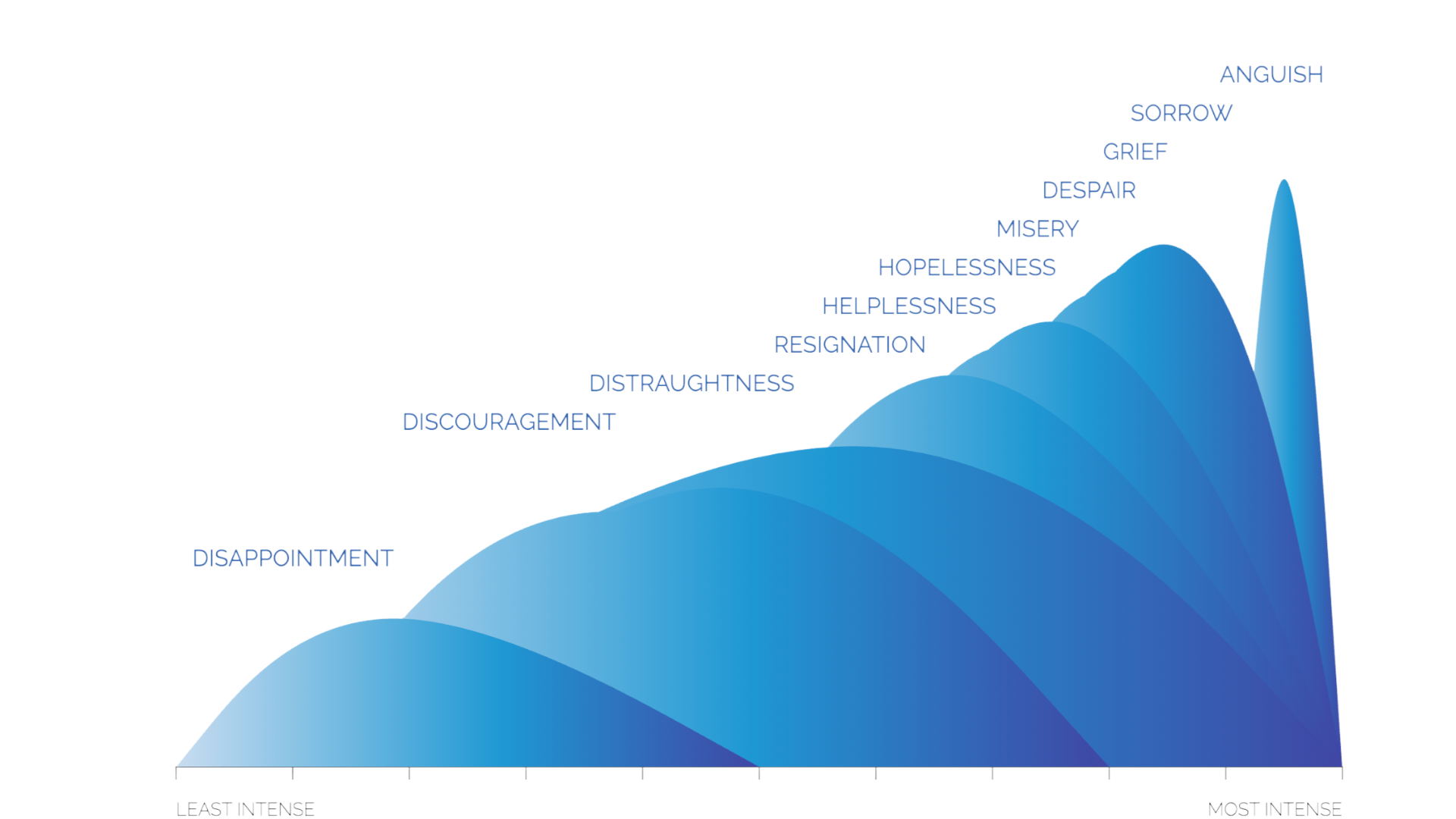
We get _____ when something blocks us or when we think we're being treated unfairly
Angry
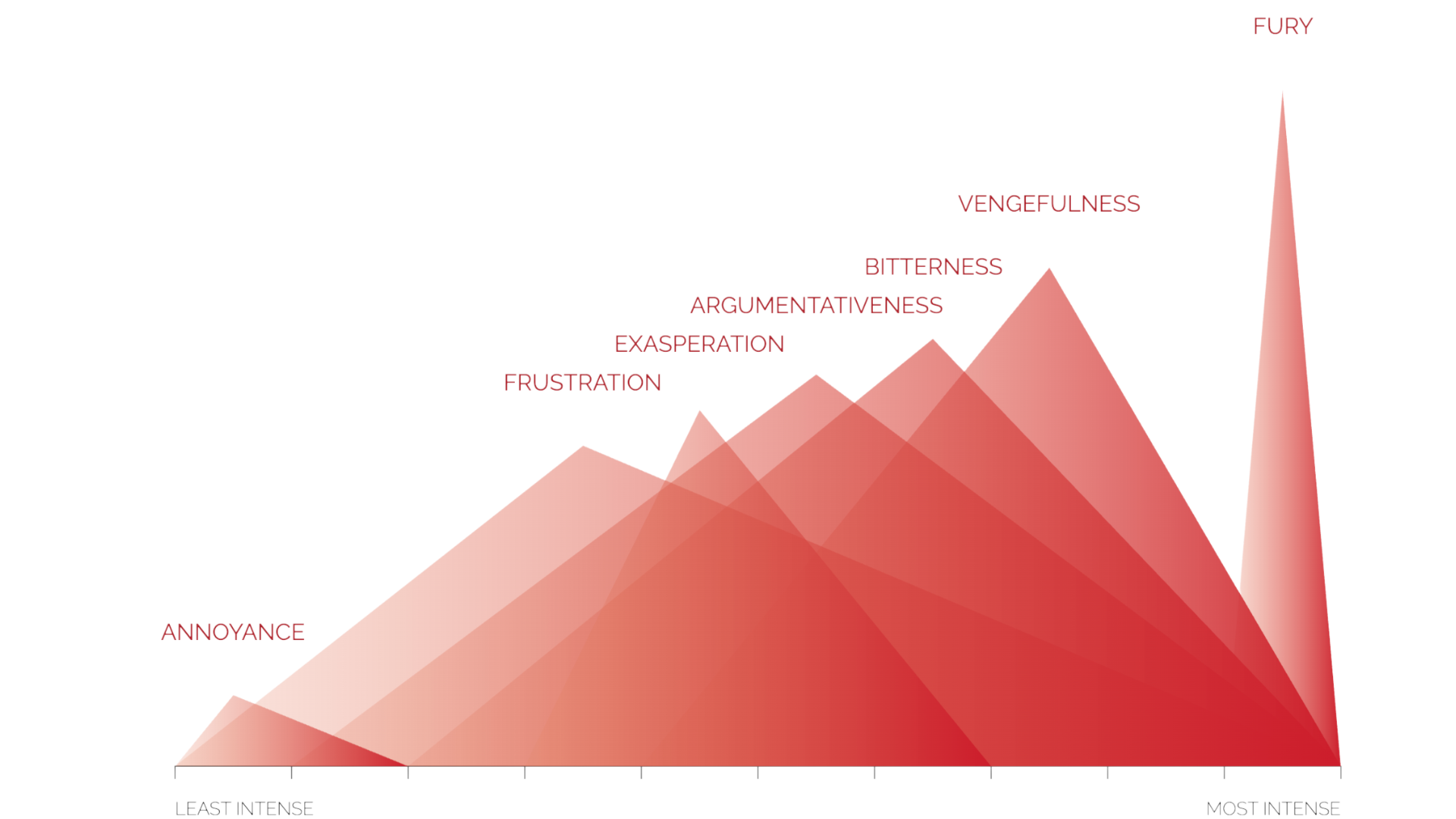
Feeling _______ by what is toxic helps us to avoid being poisoned, physically or socially
Disgust
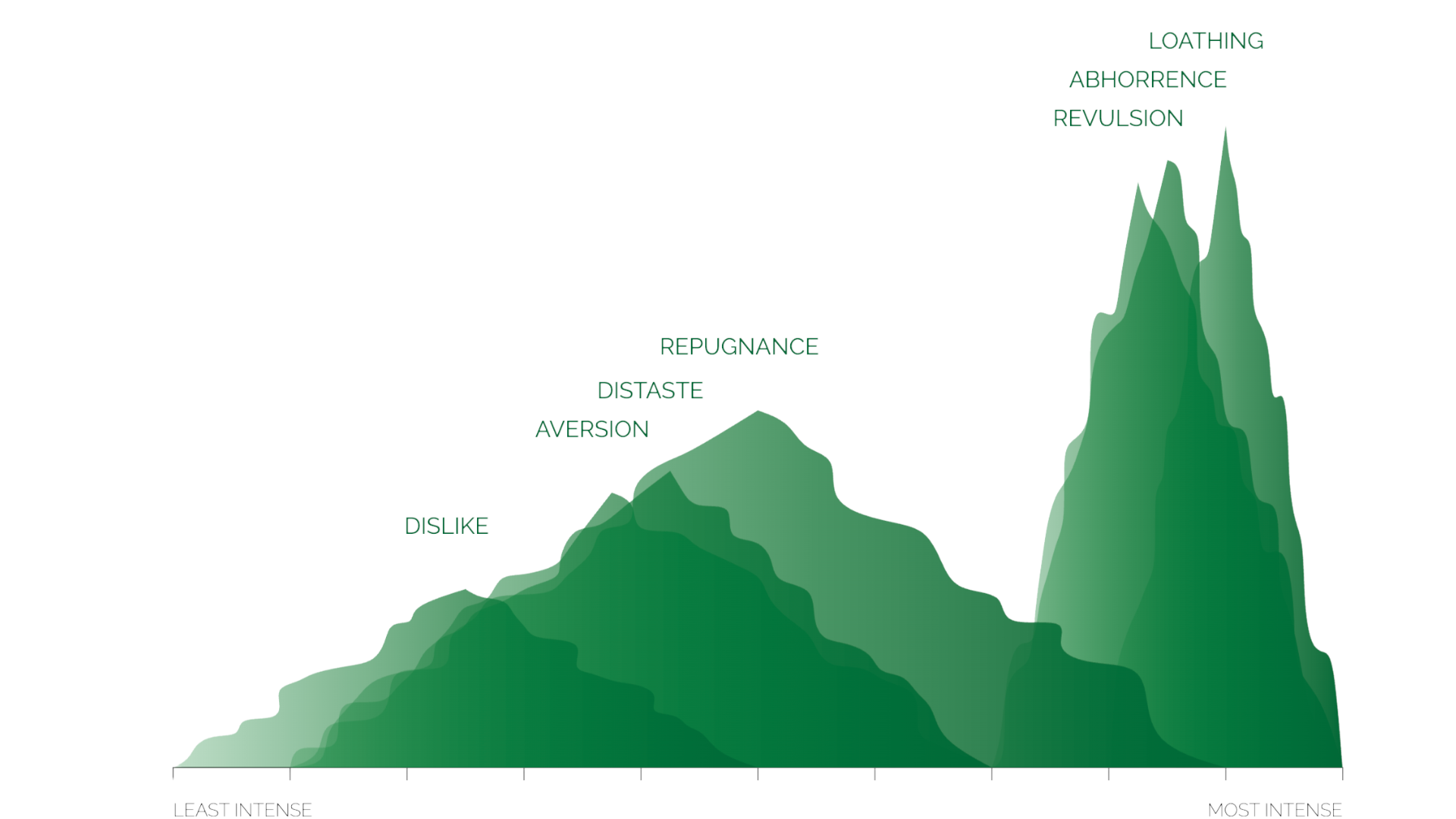
Our ____ of danger lets us anticipate threats to our safety
Fear
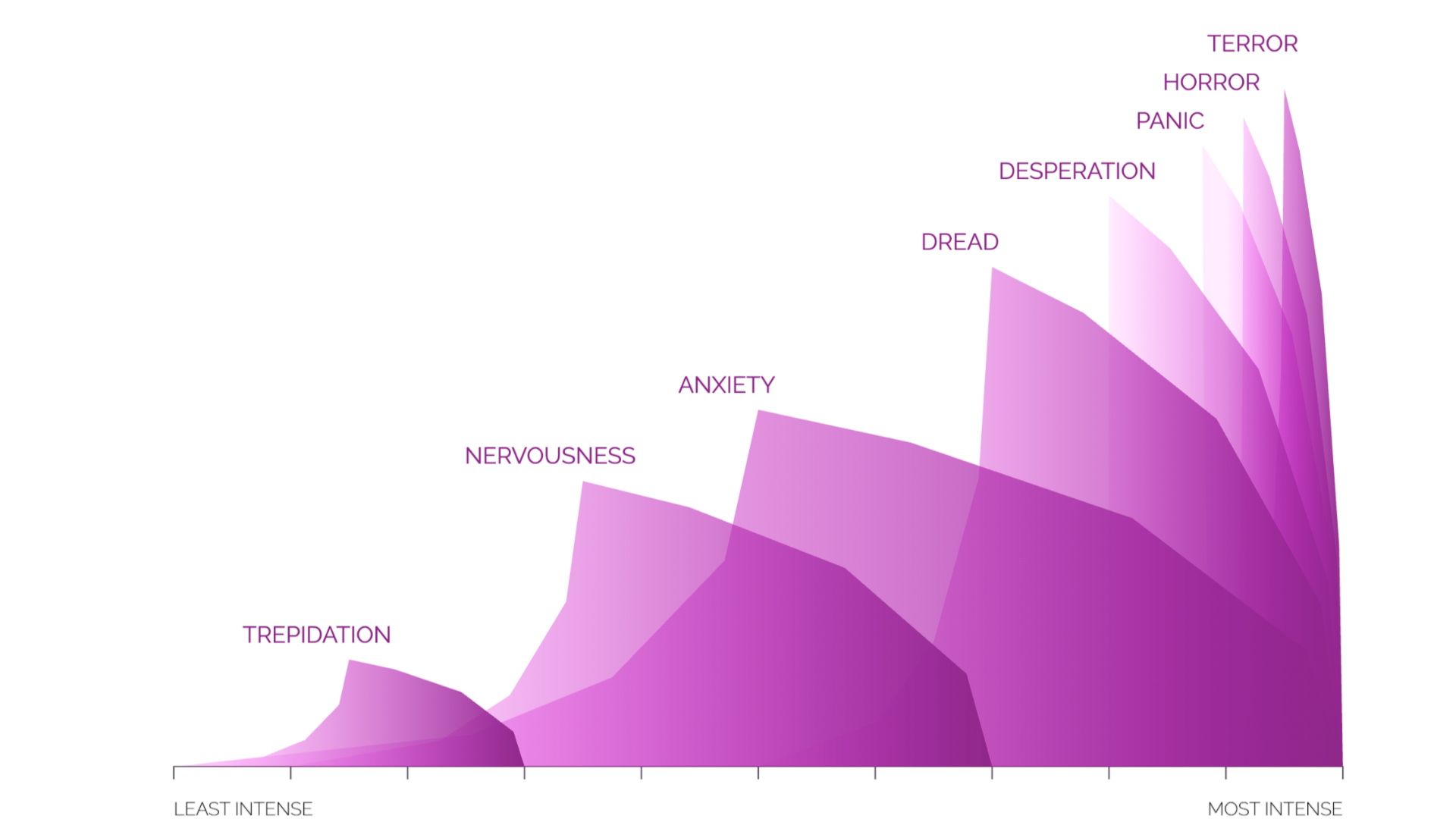
_________ describes the many good feelings that arise from experiences both novel and familiar
Enjoyment
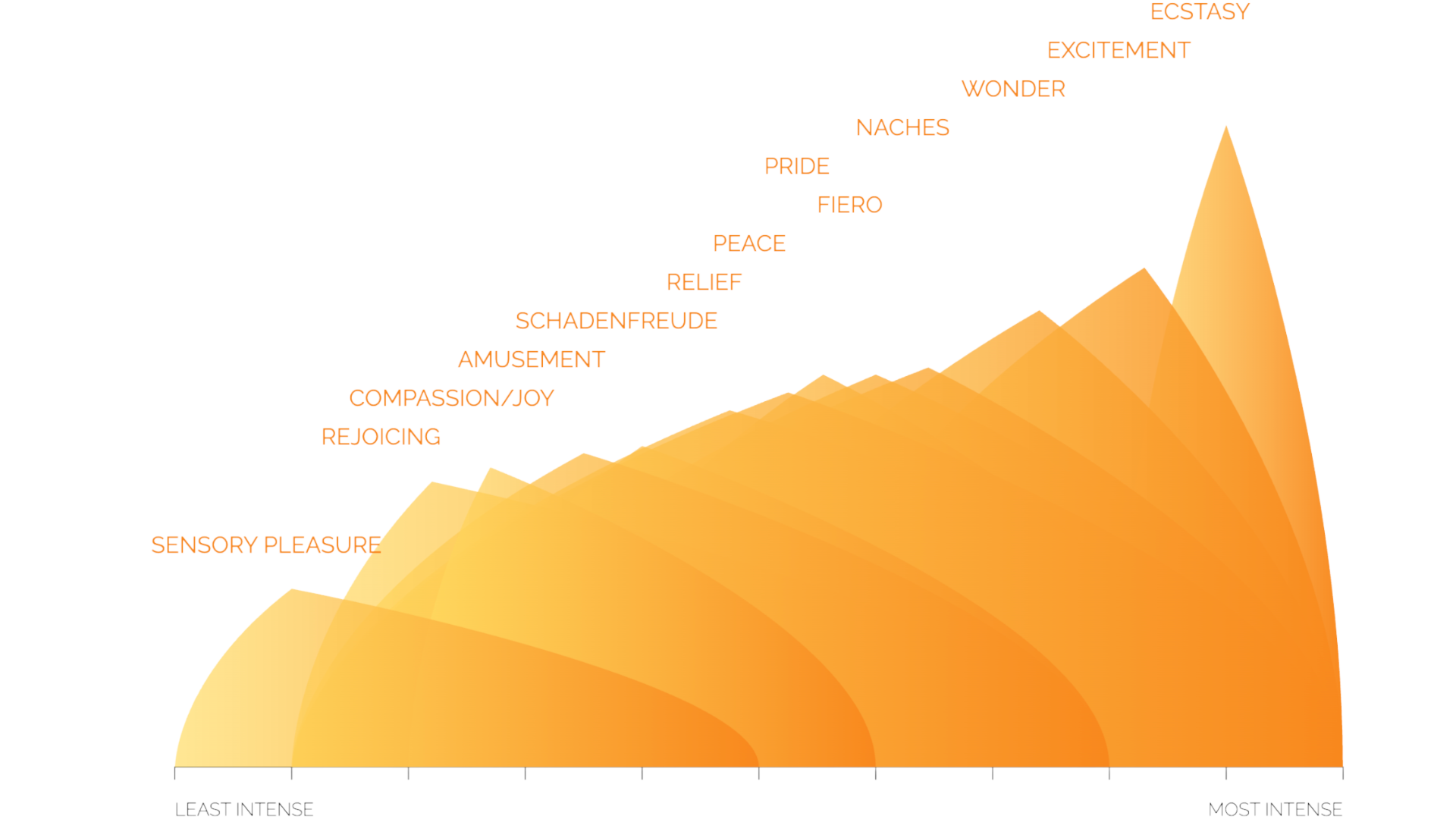
We feel _______ when we lose something valuable
Sadness
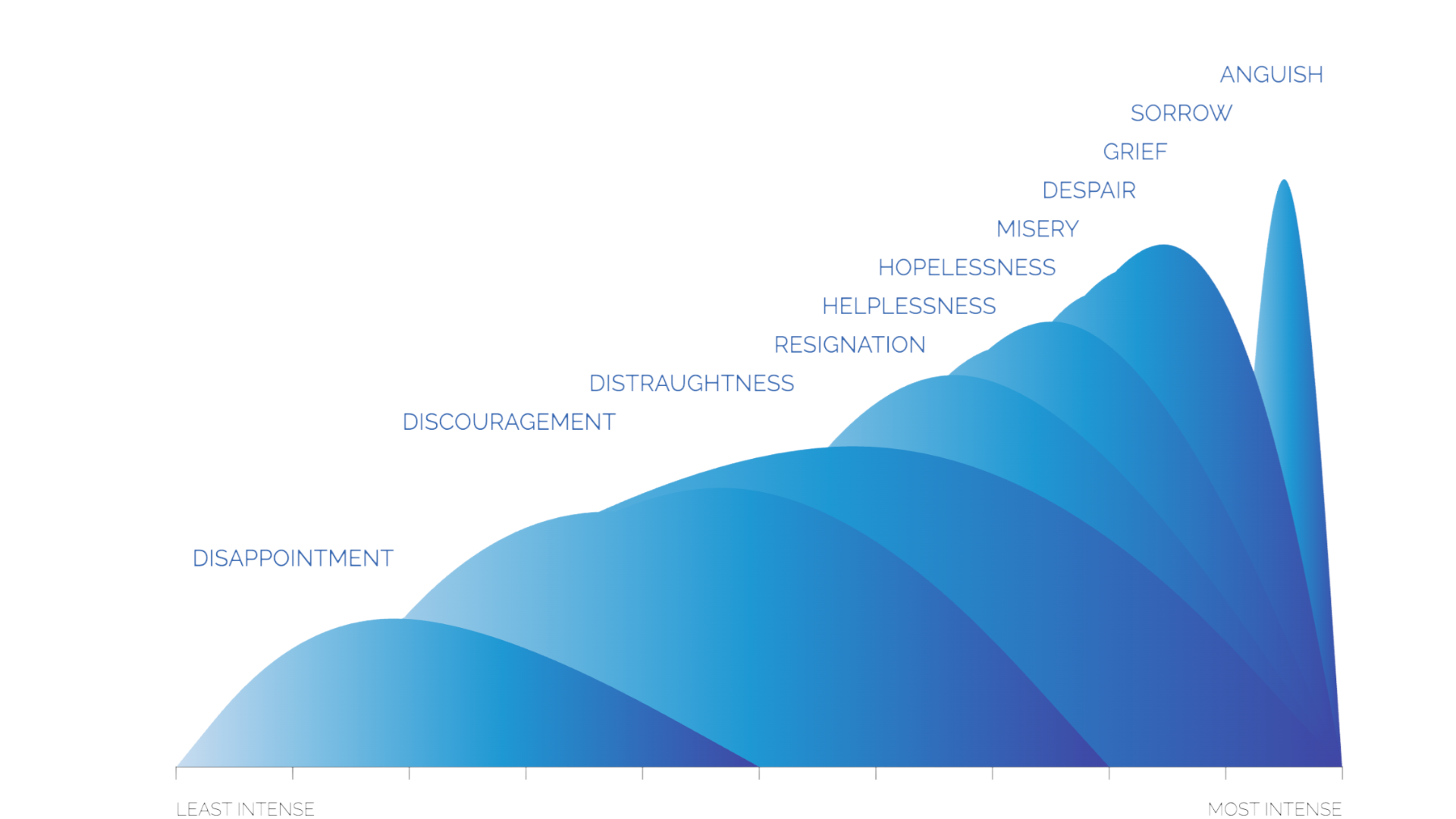
We get ______ when something blocks us or when we think we're being treated unfairly
Anger
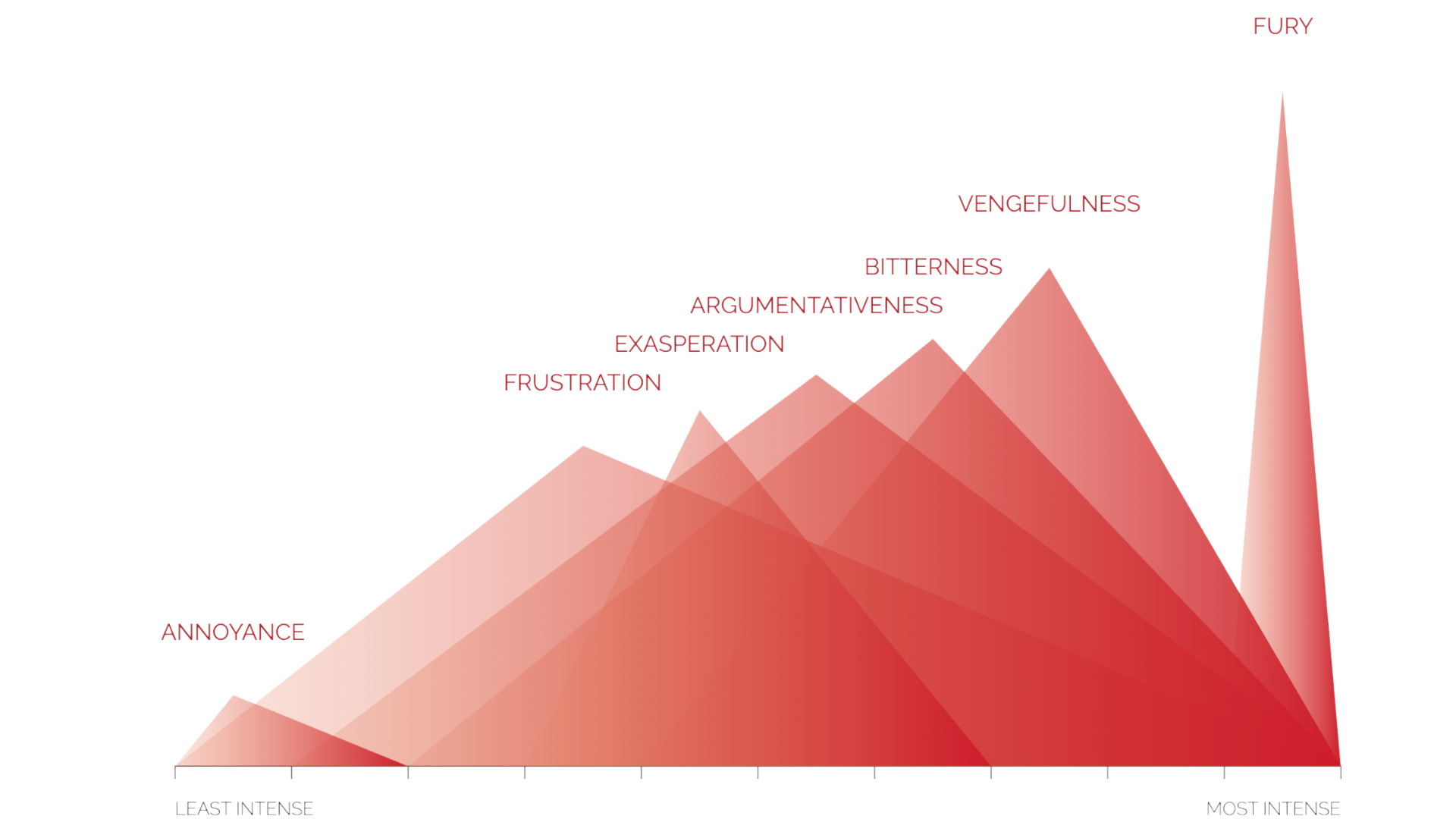
We feel _______ when faced with something toxic or unpleasant
Disgust
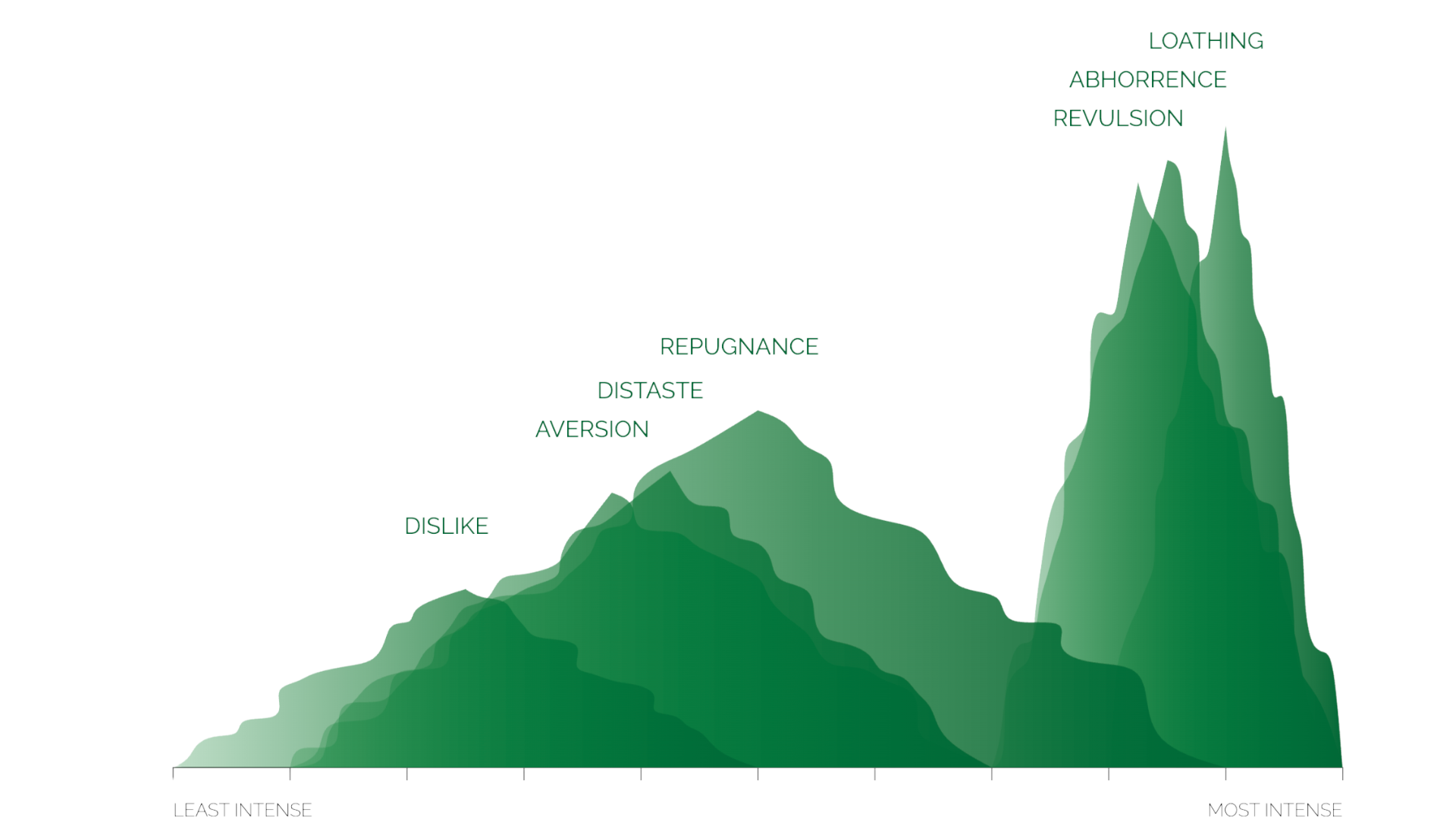
We feel ____ when we are in a situation that we perceive as dangerous
Fear
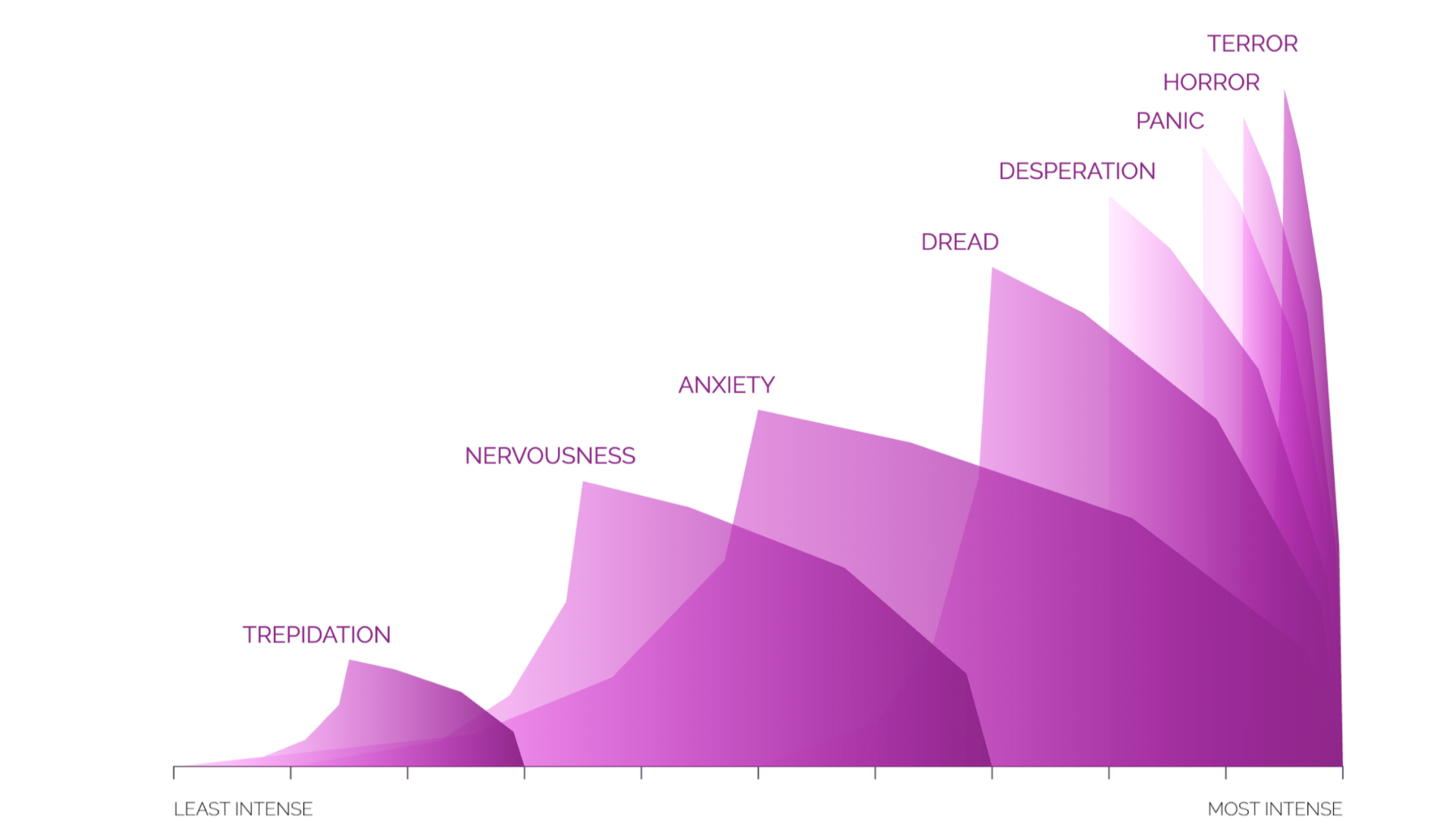
We feel _________ when we experience novelty or comfort
Enjoyment
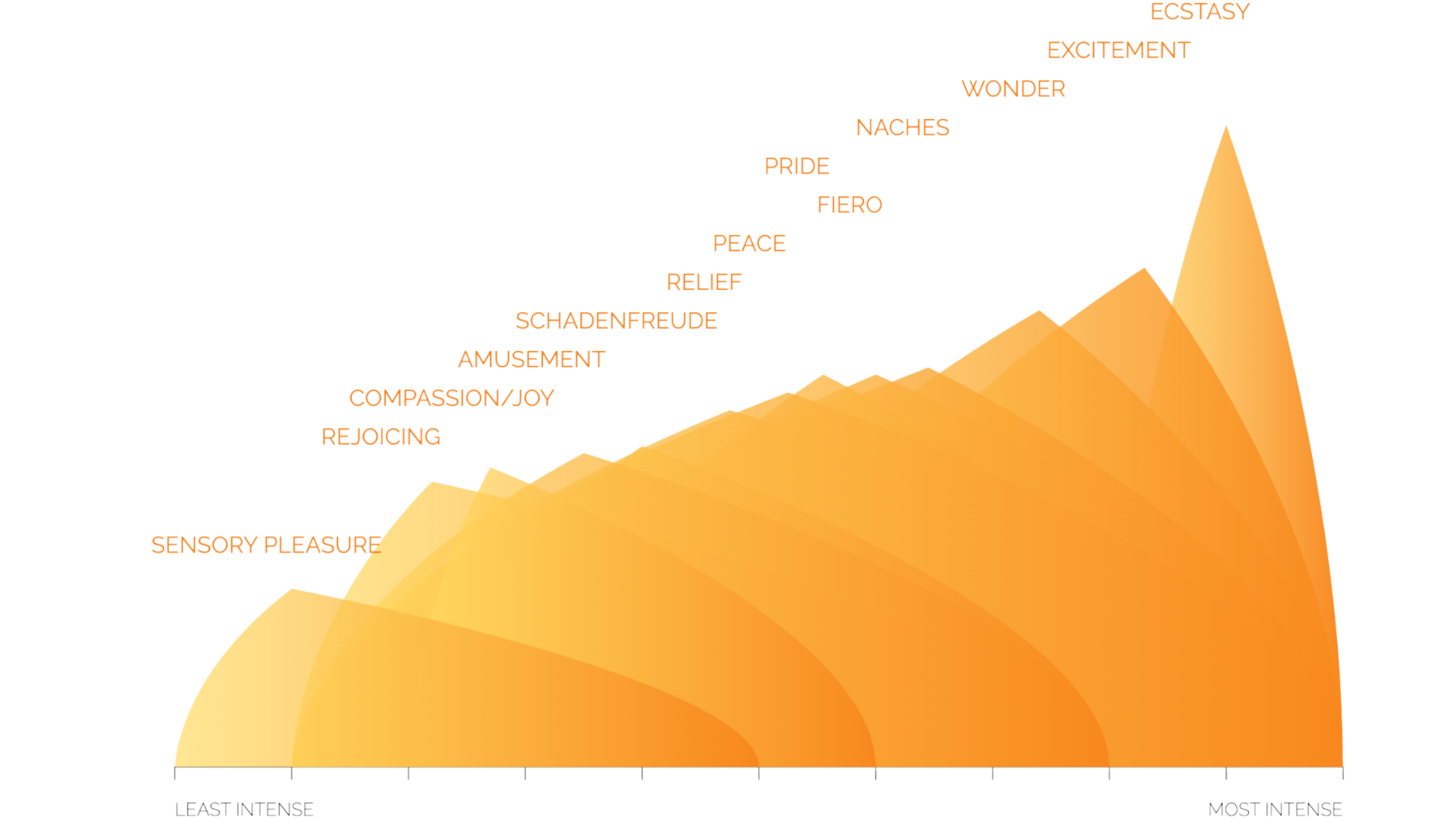
Our response to sadness
FEEL ASHAMED: Feel embarrassed by one's feelings about the loss.
MOURN: Express grief for one's loss through actions, dress and speech.
PROTEST: Object to the loss.
RUMINATE: Obsessively think about the emotional experience.
SEEK COMFORT: Seek help or support from others.
WITHDRAW: Either physically stay away from what is triggering the sadness or keep oneself from thinking about it.
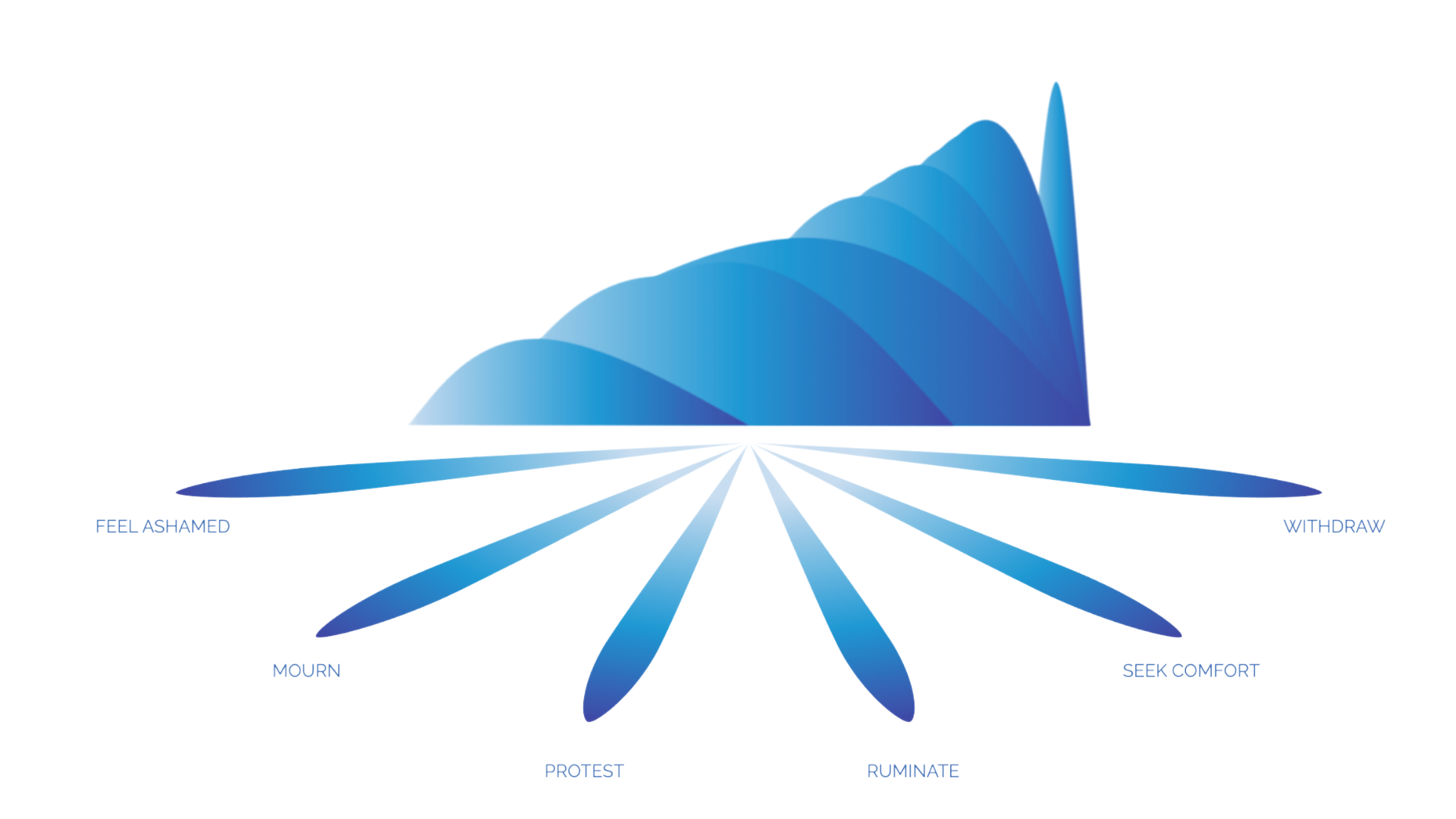
Our response to anger
DISPUTE: Disagree in a manner that may escalate the conflict.
BE PASSIVE-AGGRESSIVE: Take indirect actions that have an angry undercurrent.
INSULT: Disparage the other person in an offensive or hurtful way that is likely to escalate the conflict rather than resolve it.
QUARREL: Verbally oppose in a manner intended to escalate the disagreement.
SCREAM/YELL: Lose control of one's speech; speak loudly and possibly at a higher pitch.
SIMMER/BROOD: Express anger by sulking.
SUPPRESS: Try to avoid feeling or acting upon the emotion that is being experienced.
USE PHYSICAL FORCE: Harm or trap someone.
UNDERMINE: Take action to make someone or something weaker or less effective, usually in a secret or gradual way.
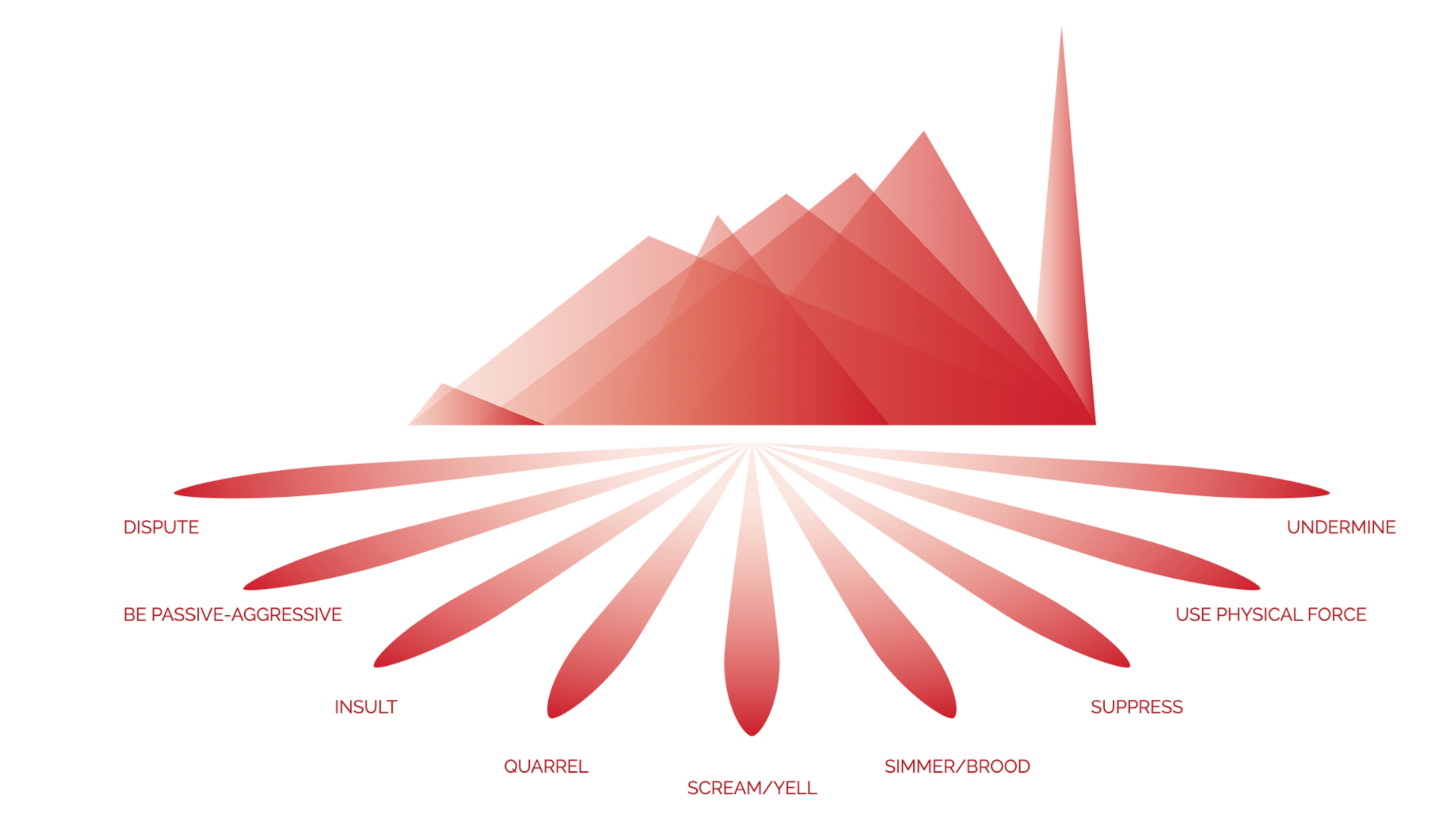
Our response to fear
AVOID: Either physically stay away from whatever is triggering the disgust or keep oneself from thinking about it.
DEHUMANIZE: Treat someone as though he or she is not a human being; deprive someone of human qualities, personality or spirit.
VOMIT: Respond to feelings of disgust by throwing up.
WITHDRAW: Physically or mentally leave the scene of what is triggering the disgust.
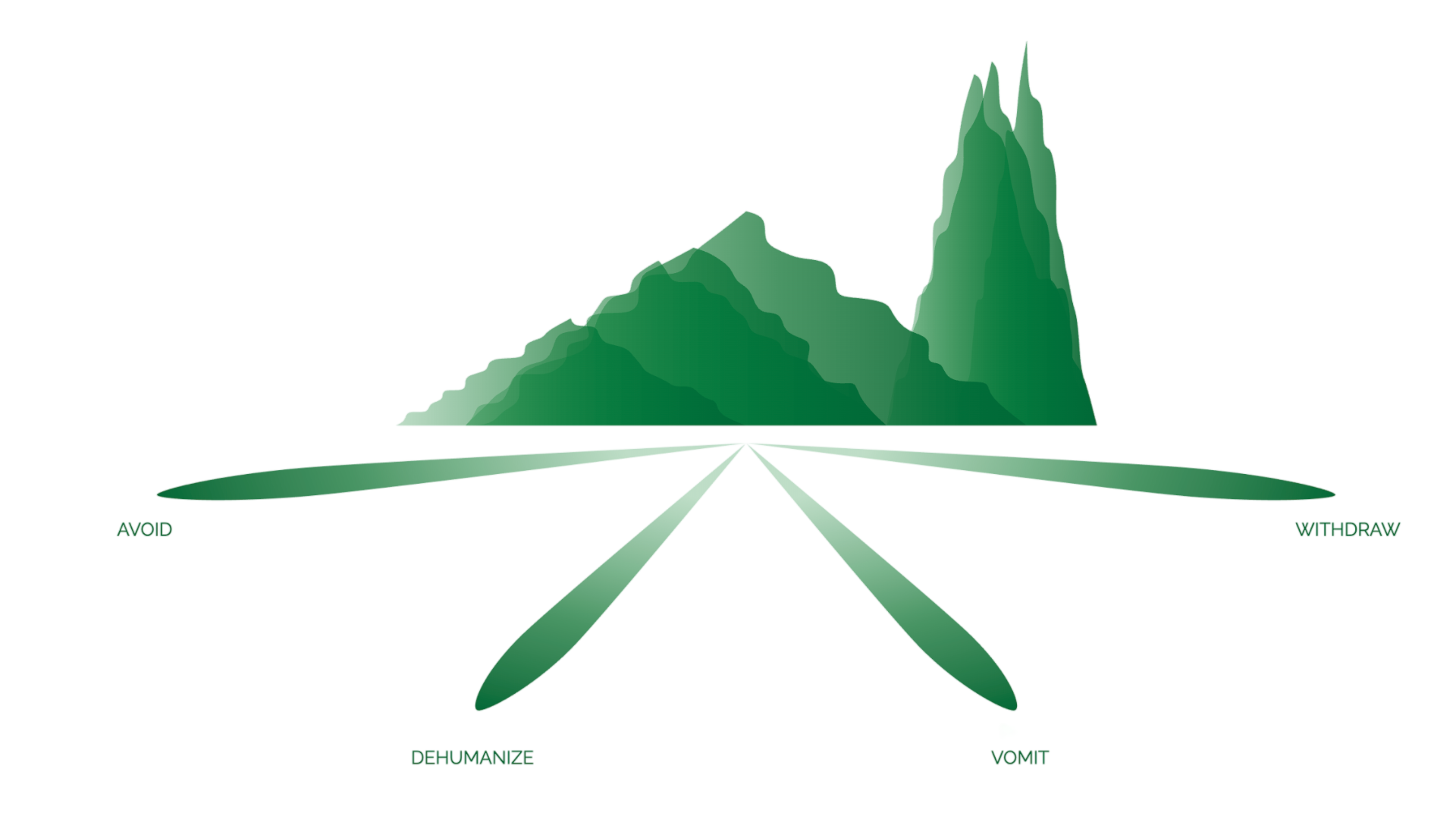
Our response to disgust
AVOID: Either physically stay away from the threat or keep oneself from thinking about it.
FREEZE: Become incapable of acting or speaking.
HESITATE: Hold back in doubt or indecision, often momentarily.
RUMINATE: Obsessively think about a past emotional experience.
SCREAM/YELL
WITHDRAW: Physically or mentally leave the scene of the threat.
WORRY: Anticipate the possibility of harm.
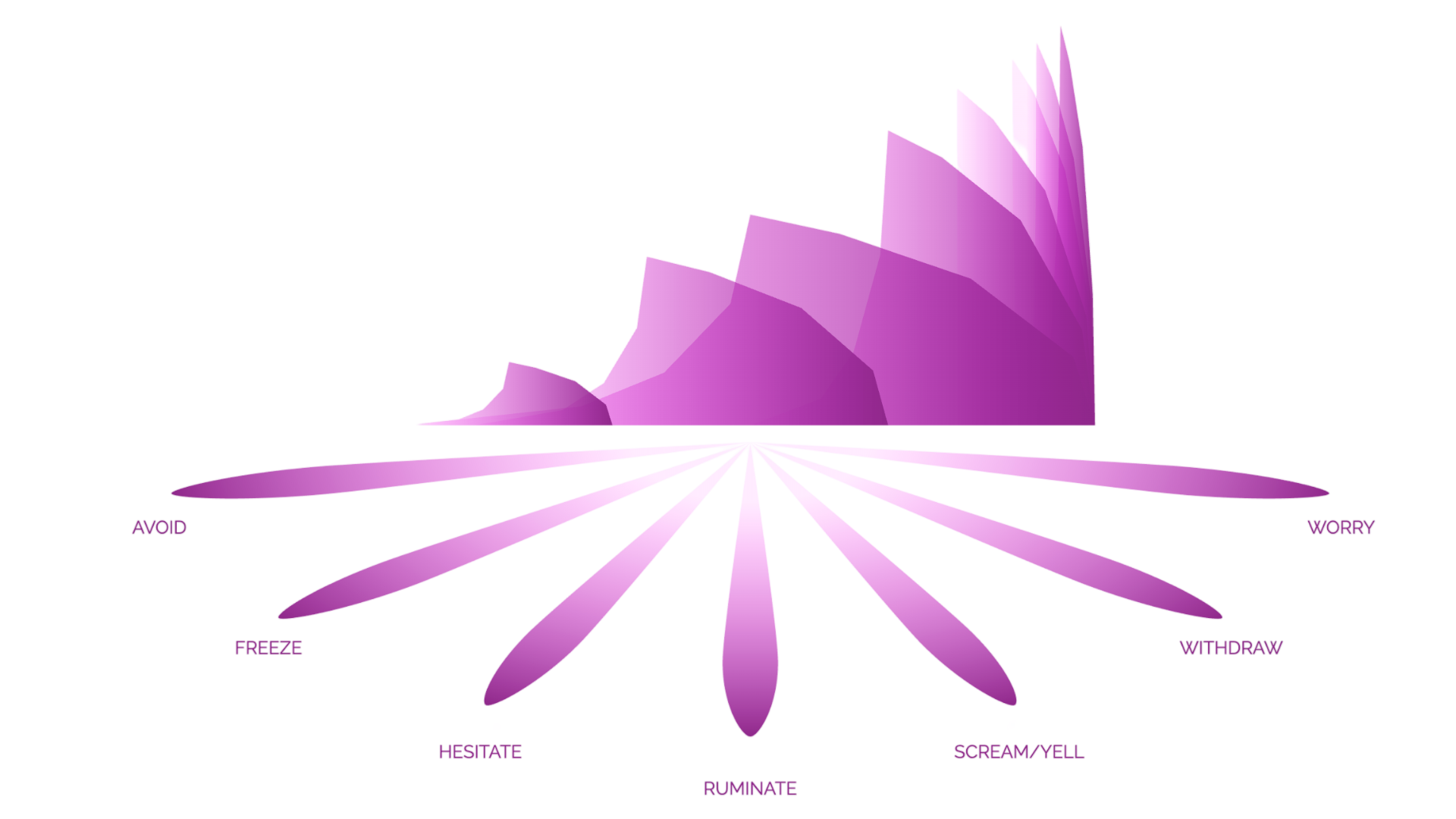
Our response to enjoyment
EXCLAIM: Vocally express enjoyment to others.
ENGAGE/CONNECT: Share one's feelings of enjoyment with others without a desire to cause jealousy.
GLOAT: Enjoy others’ envy of your state of enjoyment.
INDULGE: Allow oneself to fully experience the pleasure of good feelings.
MAINTAIN: Continue to do what is necessary to continue the enjoyable feelings.
SAVOR: Appreciate the good feelings around an experience completely, especially by dwelling on them.
SEEK MORE: Attempt to increase the enjoyable feelings.
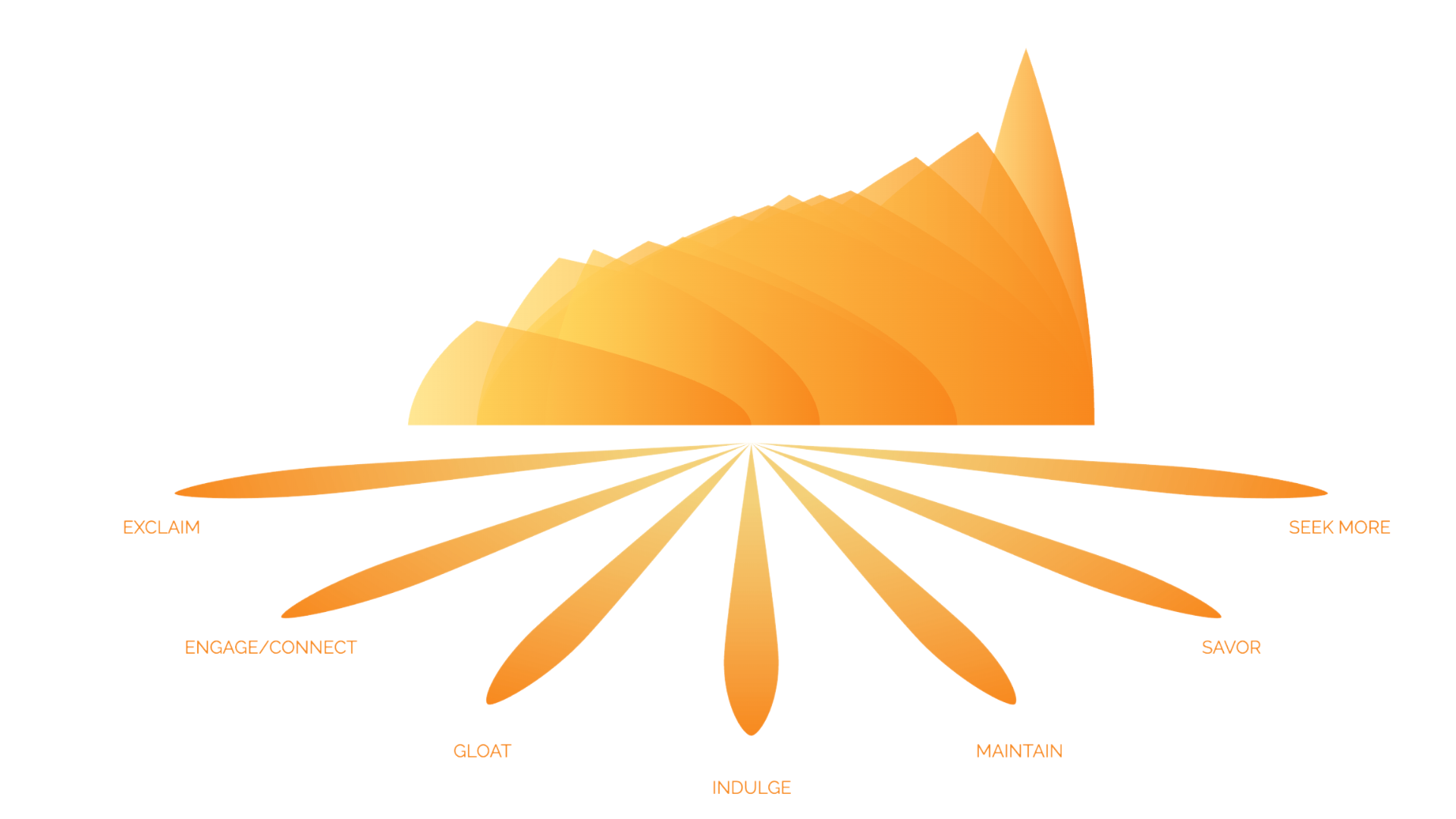
_______ would say: “comfort me.”
Sadness
It encourages, or intends to encourage, empathy from others.
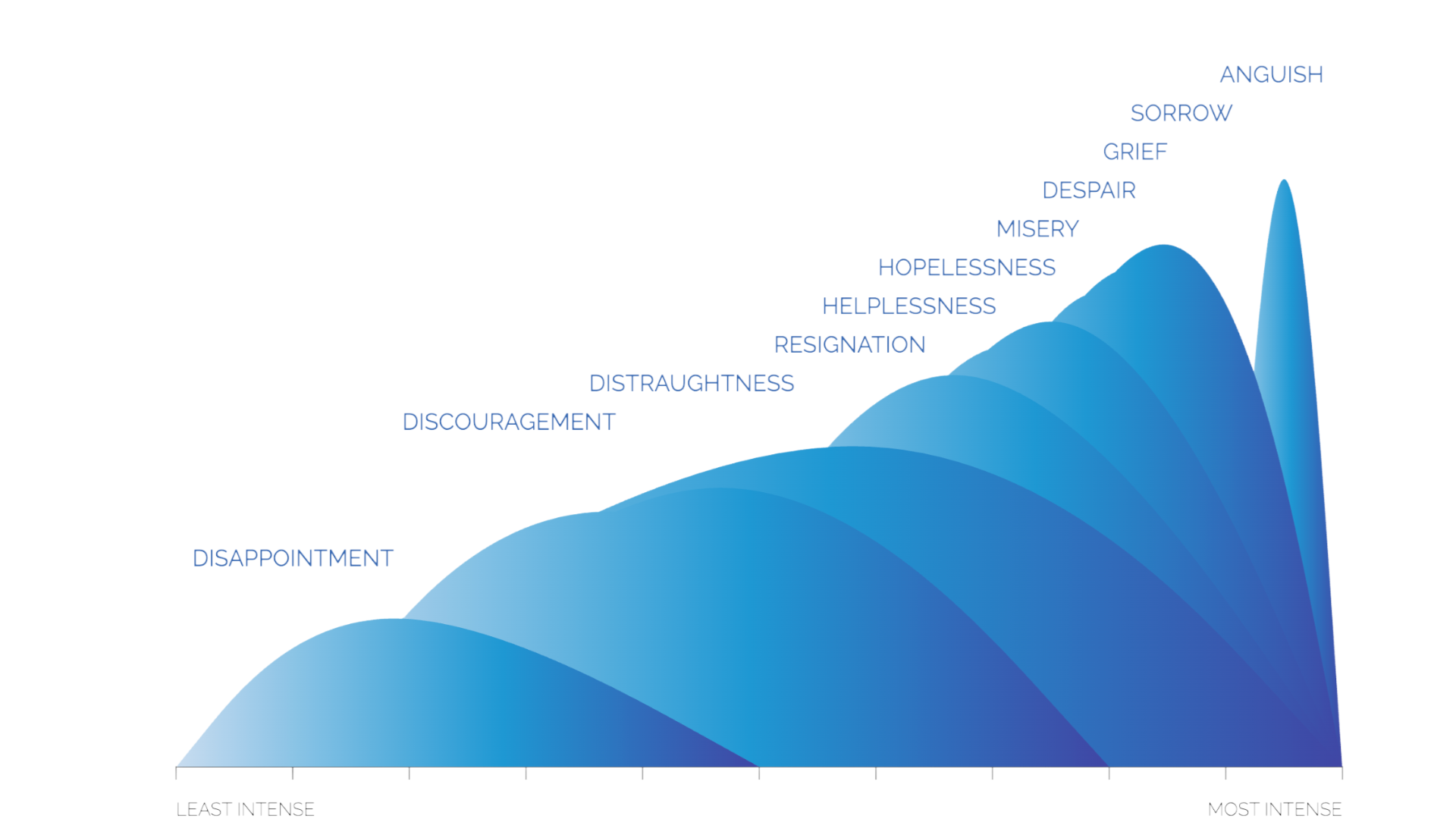
_____ would say: “get out of my way.”
Anger
It can carry a message ranging from dissatisfaction to threat.
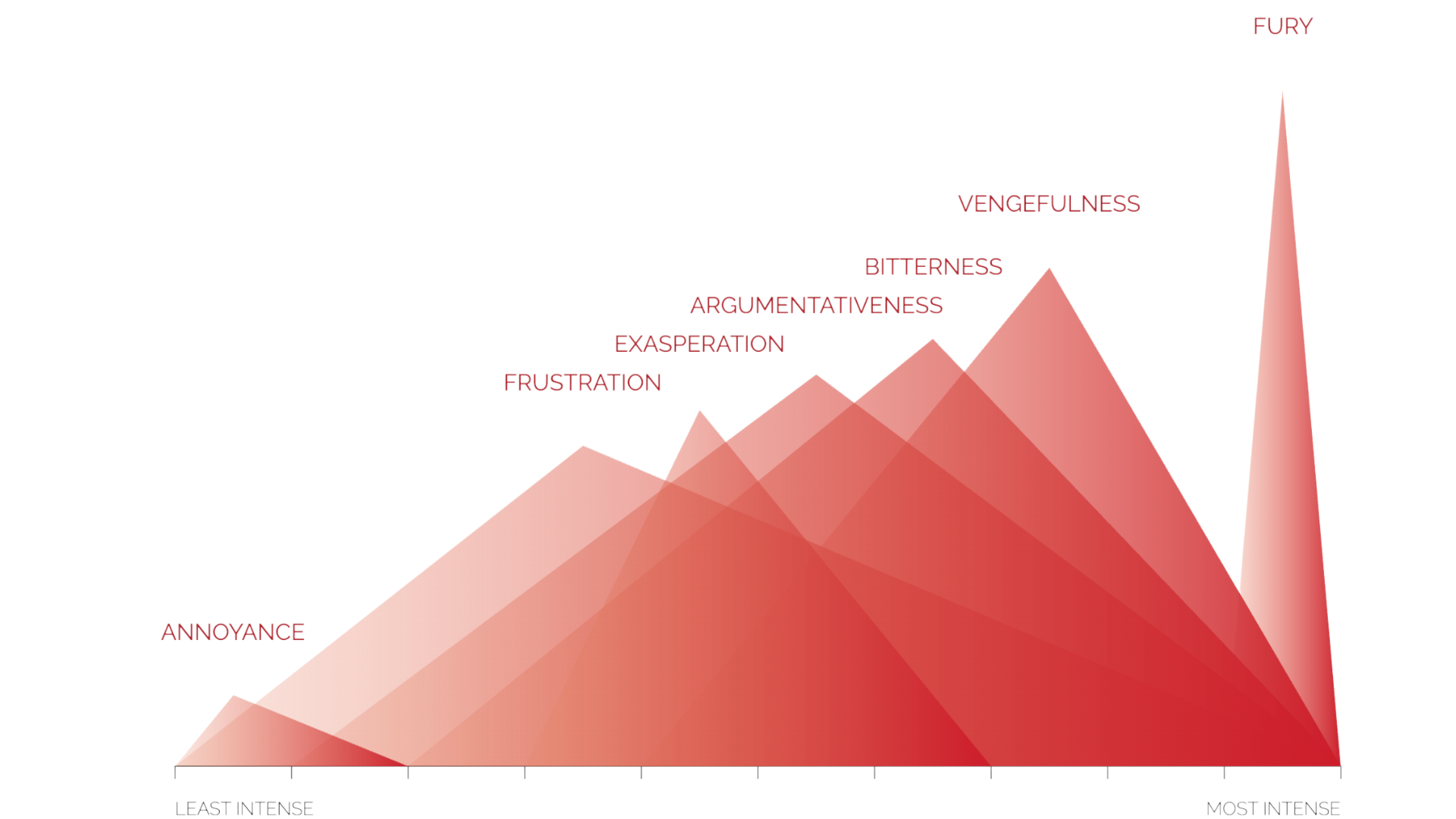
_______ would say: “get away from this.”
Disgust
It can show others that the target is unclean/dirty or socially/morally reprehensible.
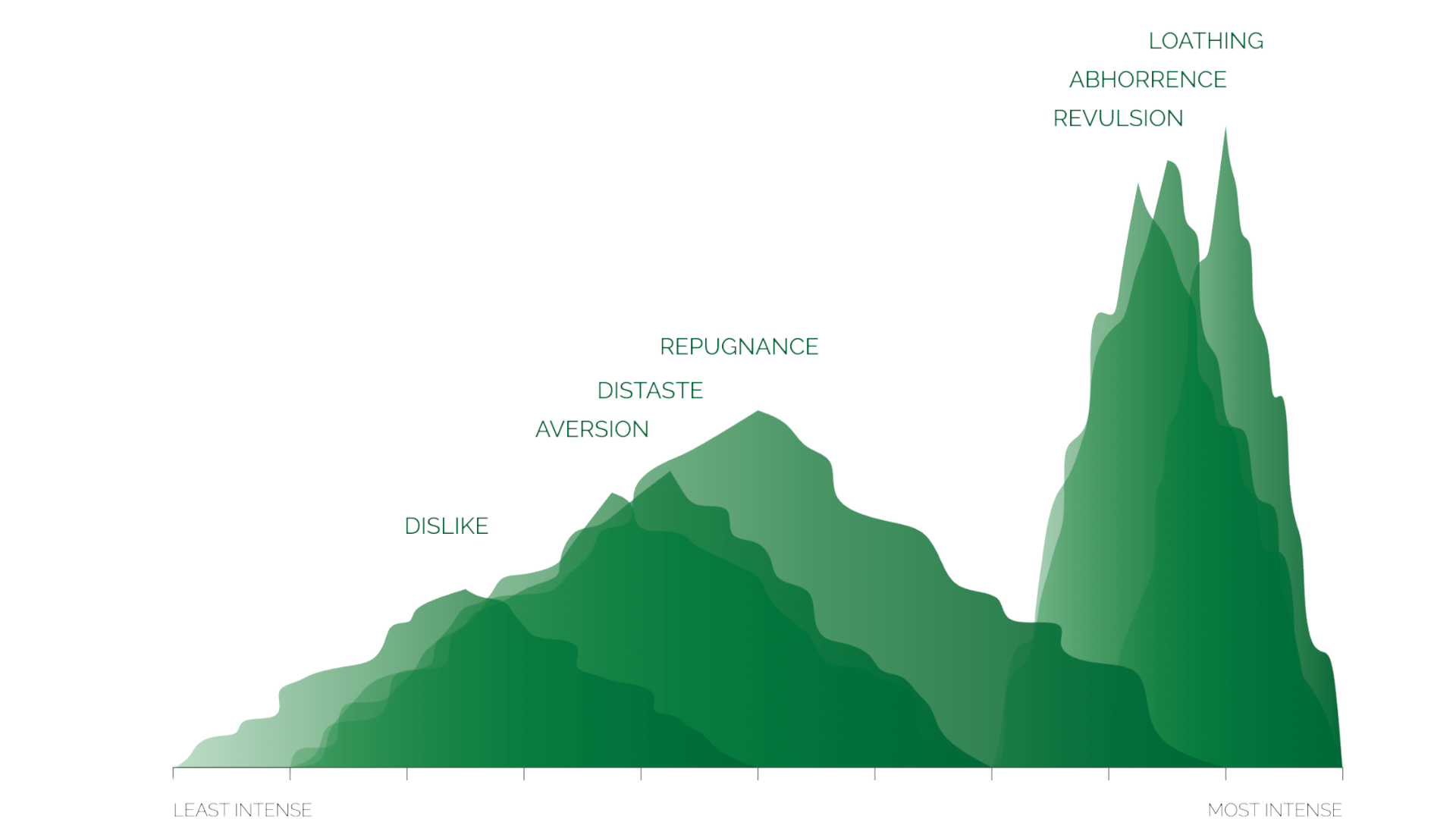
____ would say: “help me.”
Fear
It can range from showing low-level concern to conveying panic.
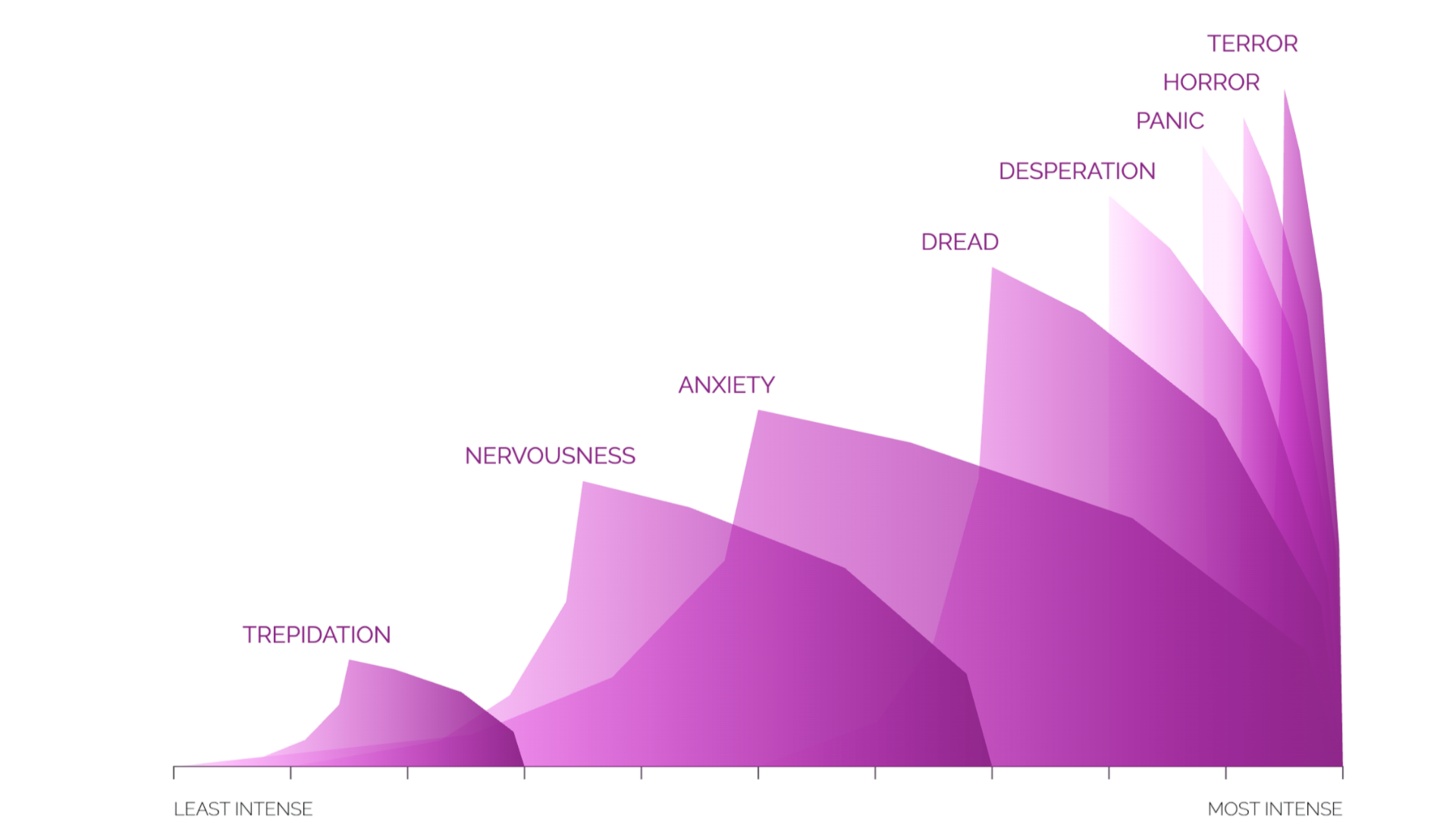
_________ would say: “this feels good.”
Enjoyment
It encourages engaging in social interaction.
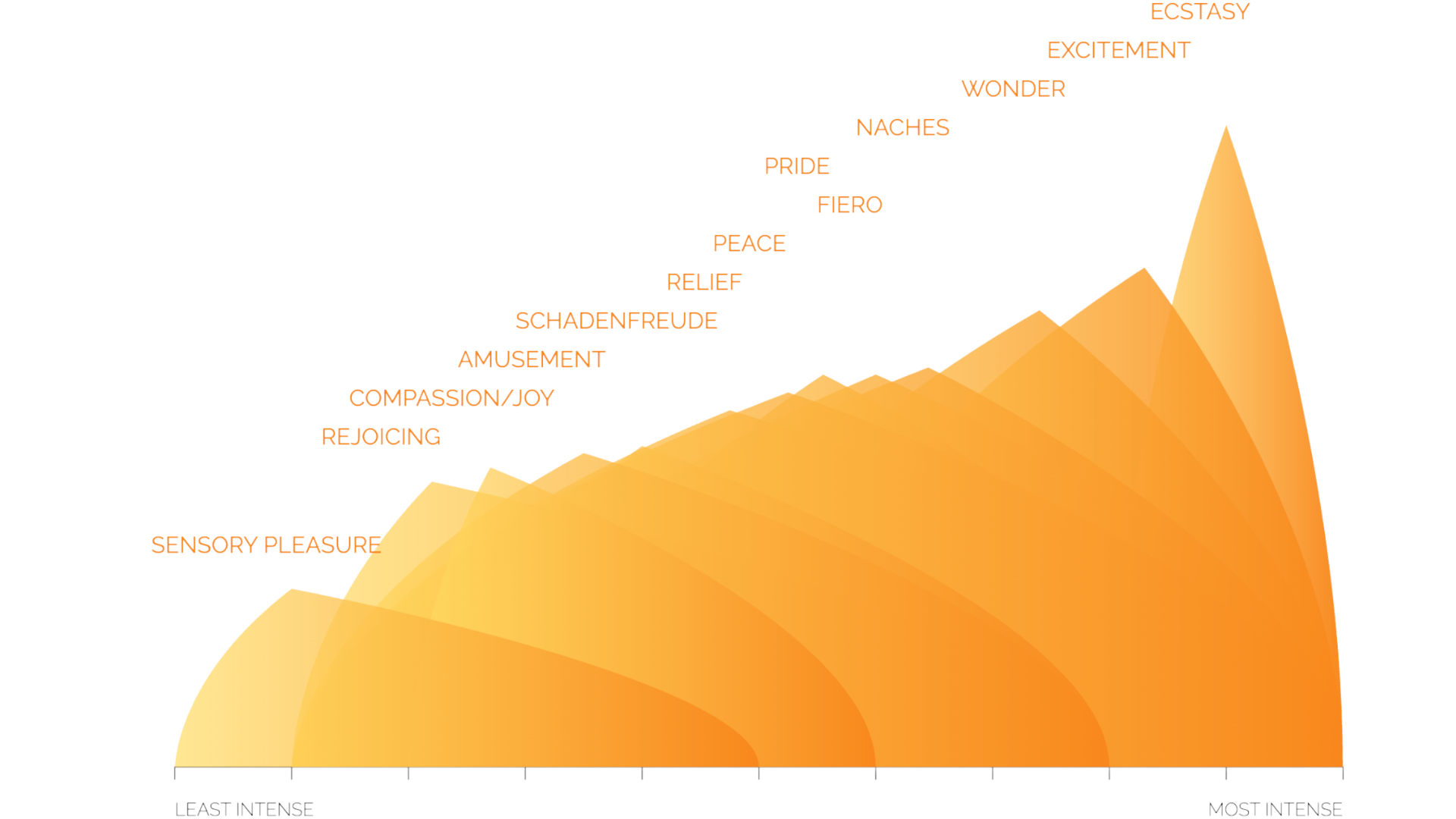
_______ is triggered by a feeling of loss?
Sadness
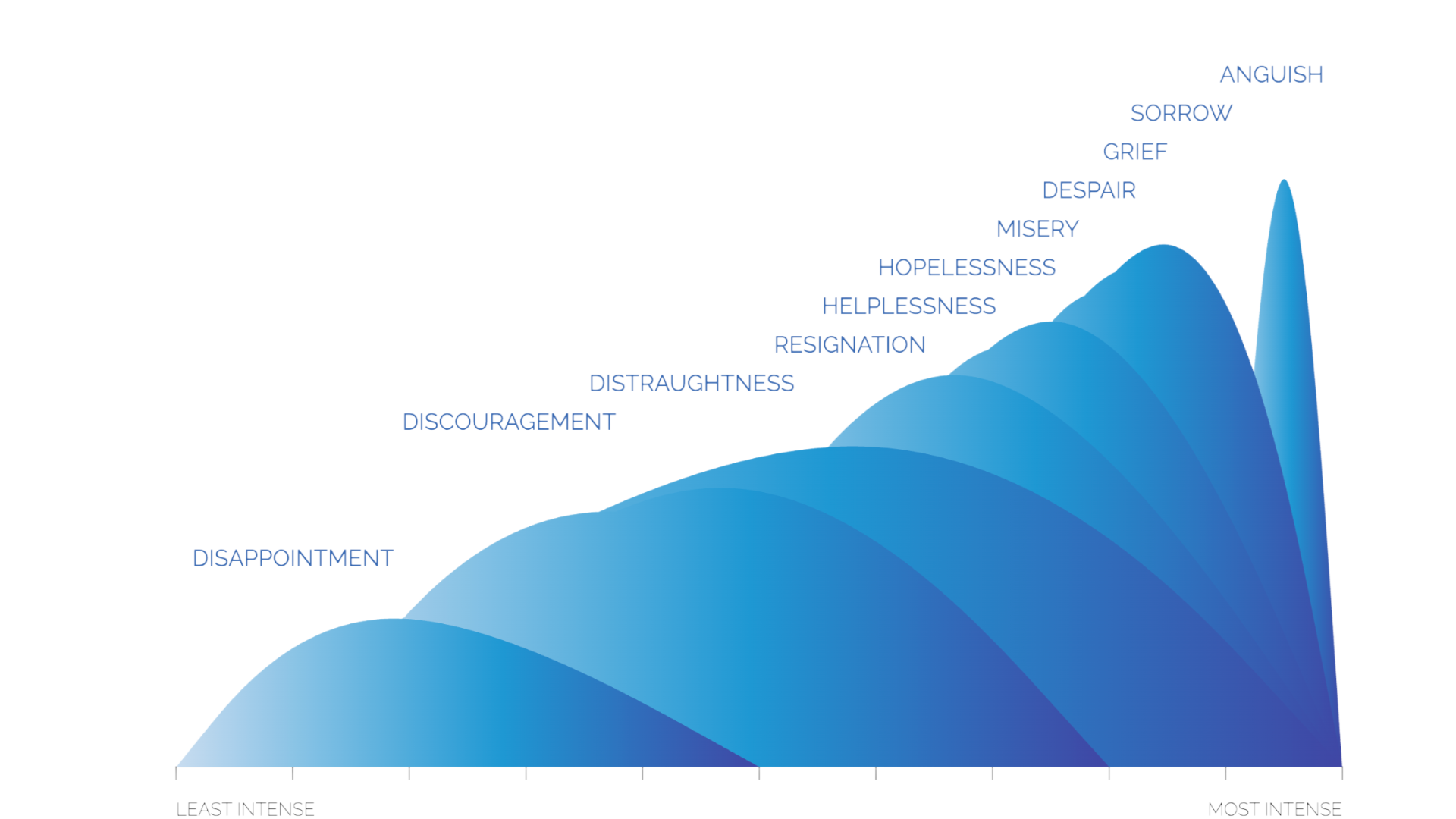
_____ is triggered by a feeling of being blocked in our progress?
Anger
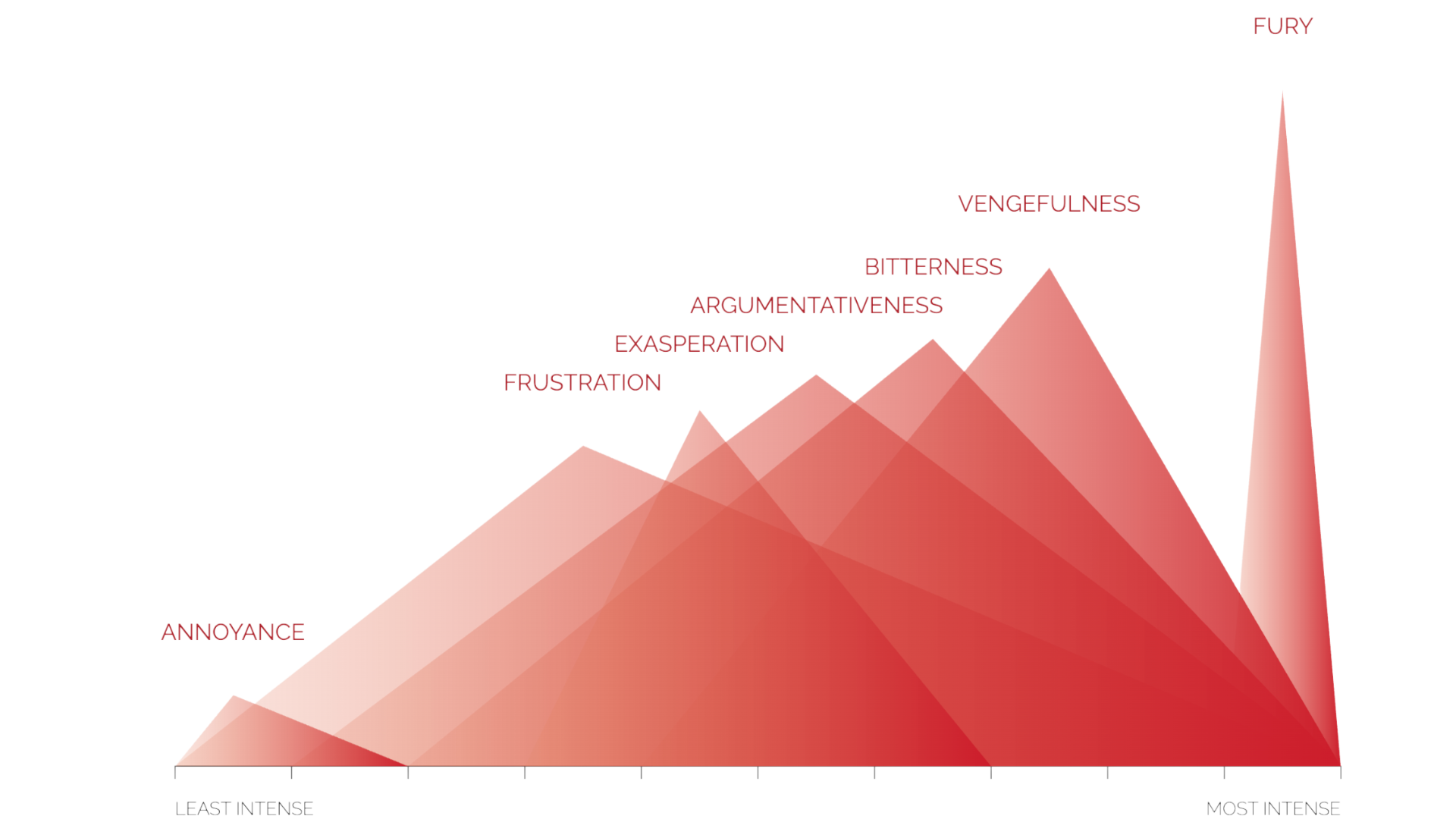
_______ is triggered by the feeling that something is toxic?
Disgust
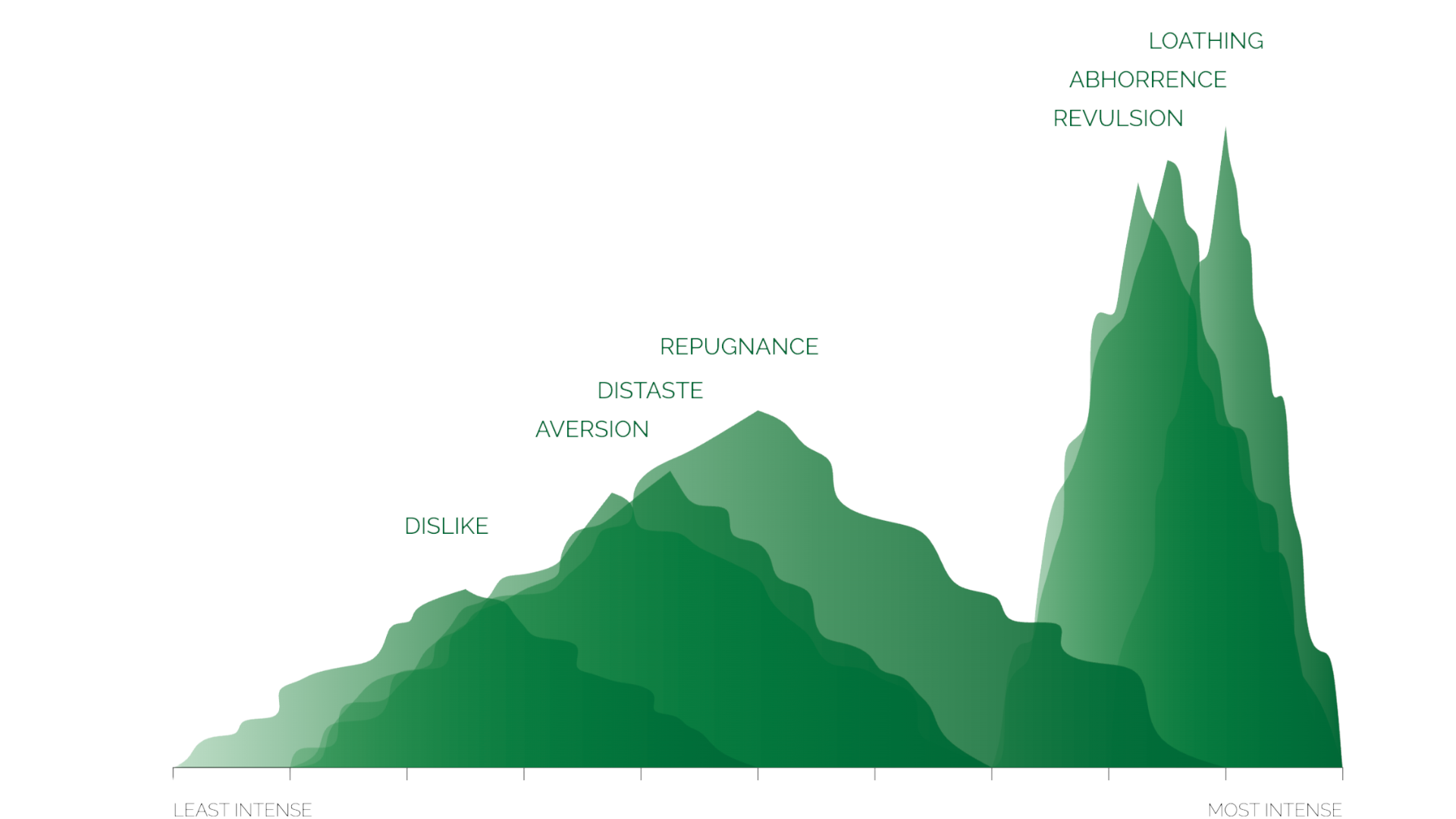
____ is triggered by feeling a threat of harm?
Fear
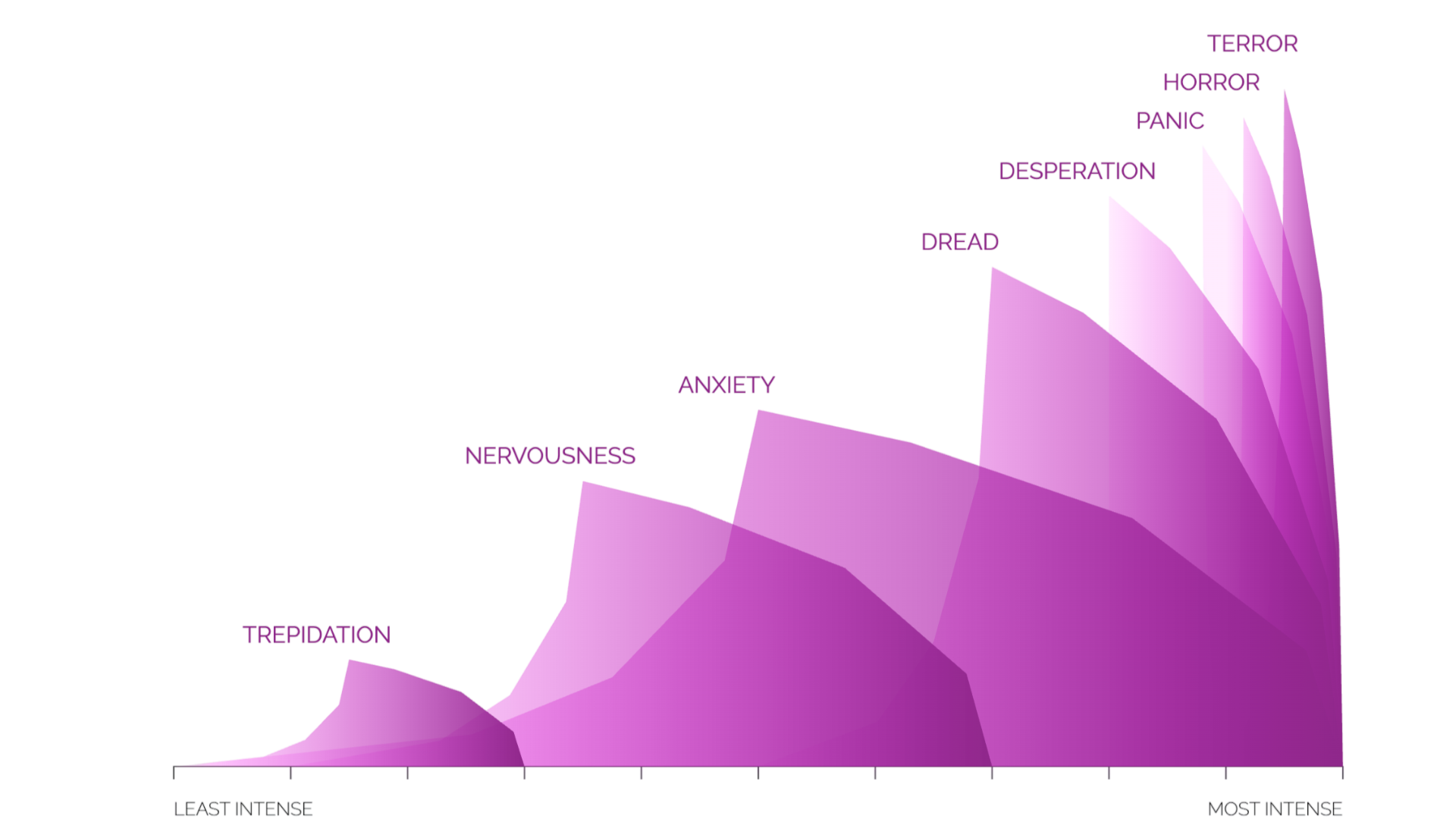
_________ is triggered by feeling connection and/or sensory pleasure?
Enjoyment
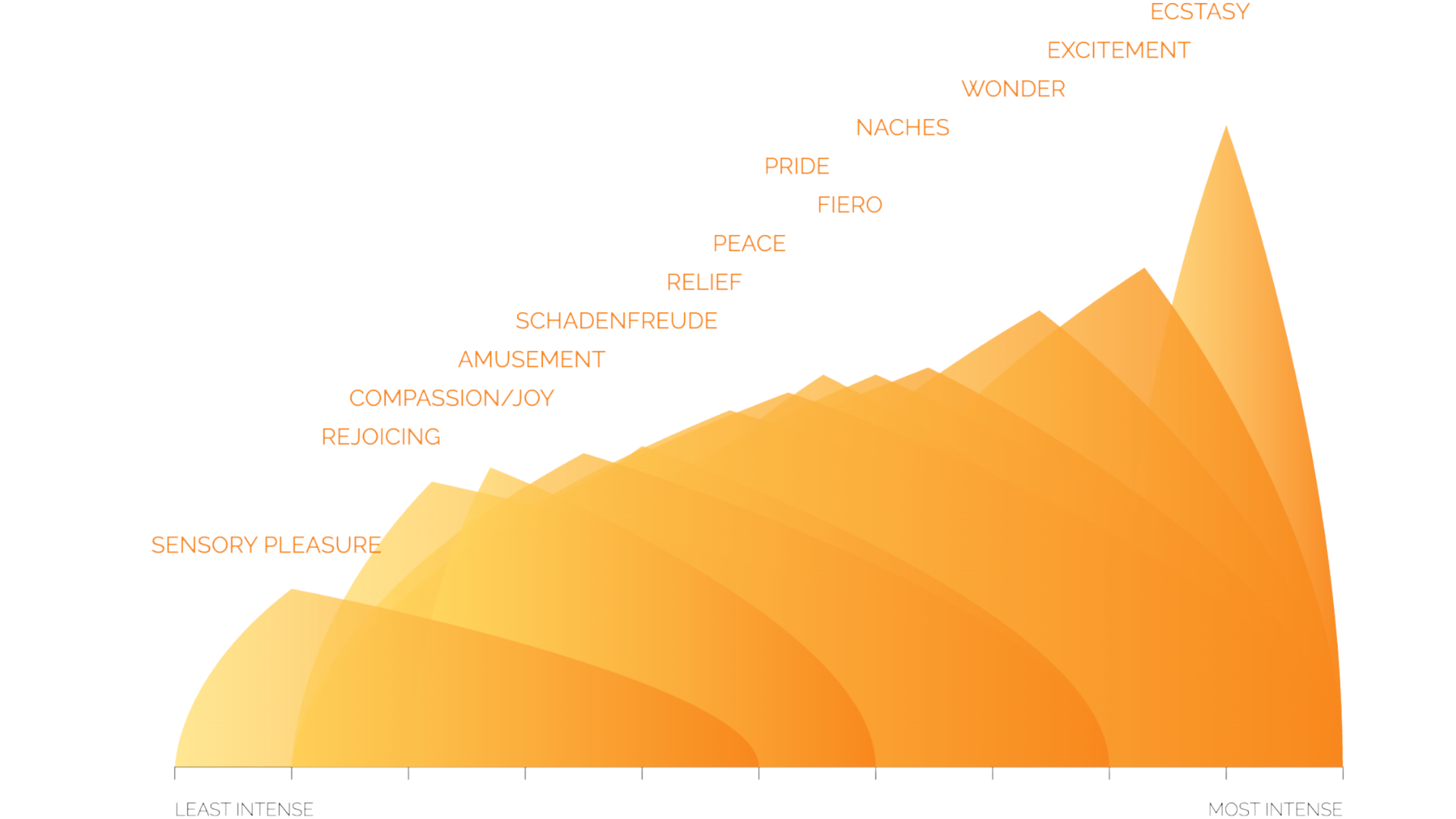
These are the actions of what emotion?
Intrinsic - Seek comfort, Withdraw, Mourn, Protest, Feel ashamed
Intentional - Withdraw, Distract
Sadness
Actions can be intrinsic (without conscious intent) or intentional (an active attempt to enact change), or both.
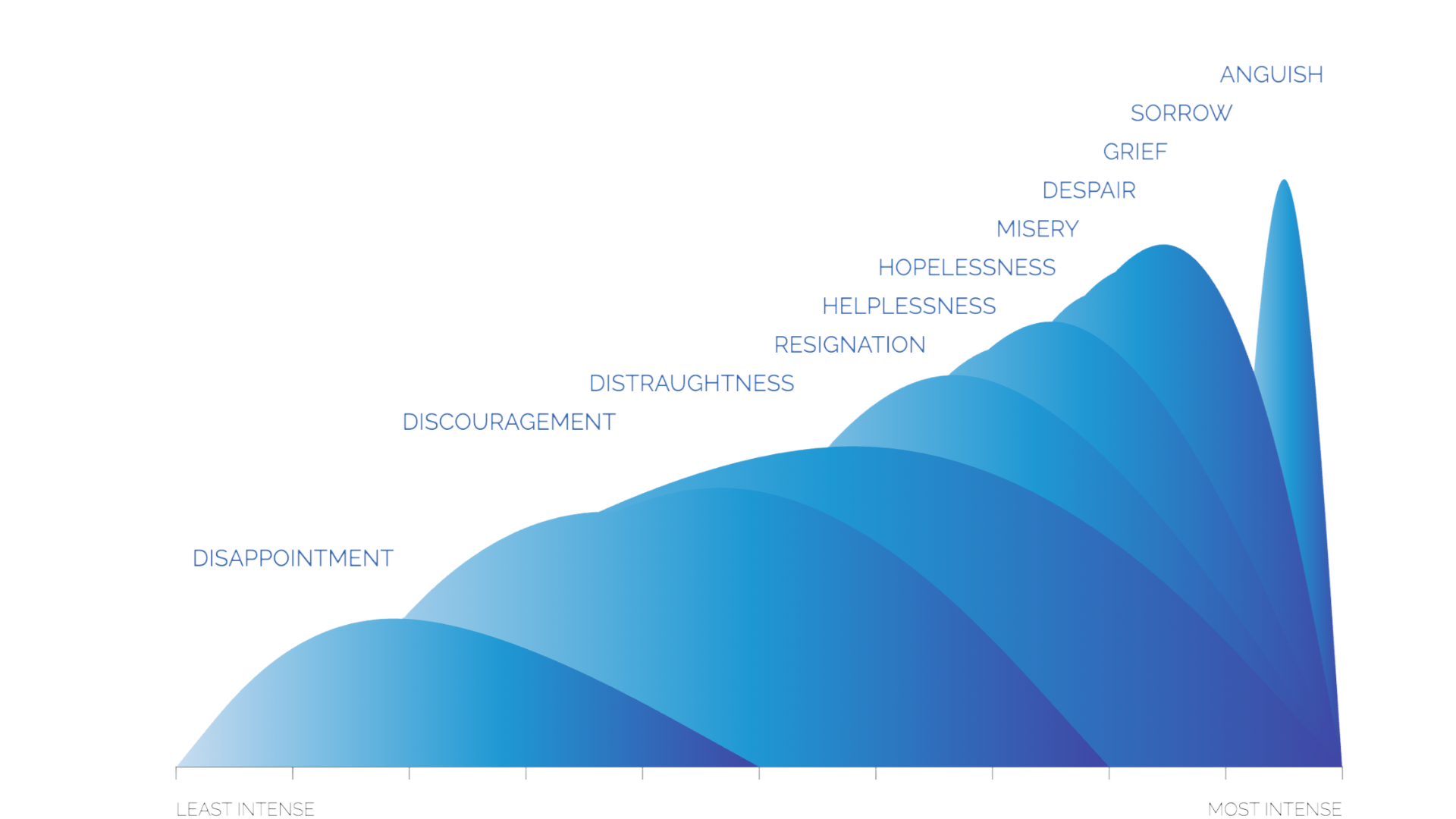
These are the actions of what emotion?
Intrinsic - Quarrel, Insult, Undermine, Dispute, Scream/yell, Use physical force, Simmer/brood, Be passive-aggressive
Intentional - Set limits, Be firm, Withdraw, Take a time out, Breathe, Practice patience, Reframe, Distract, Avoid, Remove the interference
Anger
Actions can be intrinsic (without conscious intent) or intentional (an active attempt to enact change), or both.
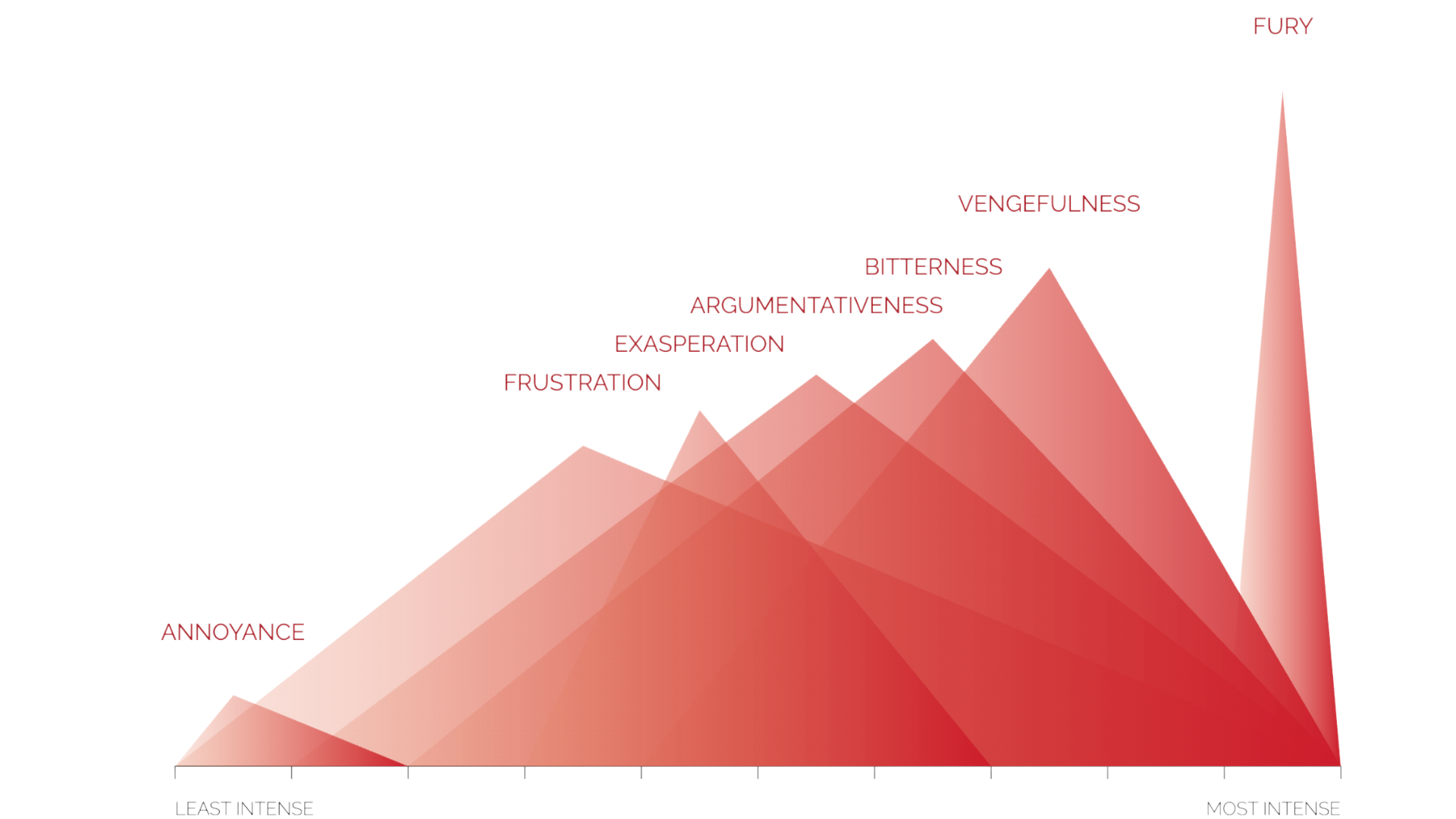
These are the actions of what emotion?
Intrinsic - Withdraw, Avoid, Vomit, Dehumanize
Intentional - Withdraw, Avoid
Disgust
Actions can be intrinsic (without conscious intent) or intentional (an active attempt to enact change), or both.
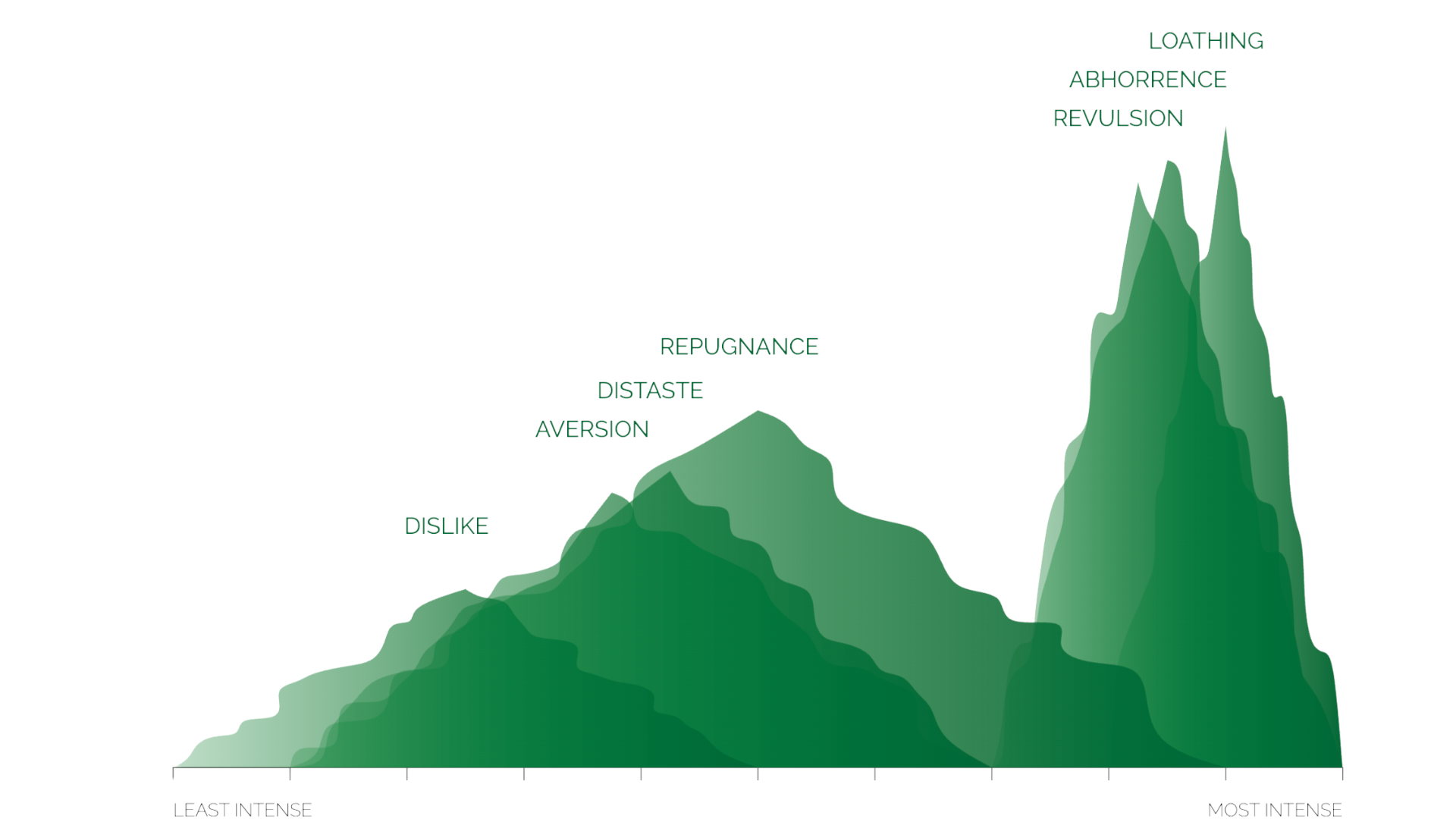
These are the actions of what emotion?
Intrinsic - Withdraw, Avoid, Hesitate, Freeze, Scream/yell, Ruminate, Worry
Intentional - Reframe, Be mindful, Breathe, Distract
Fear
Actions can be intrinsic (without conscious intent) or intentional (an active attempt to enact change), or both.
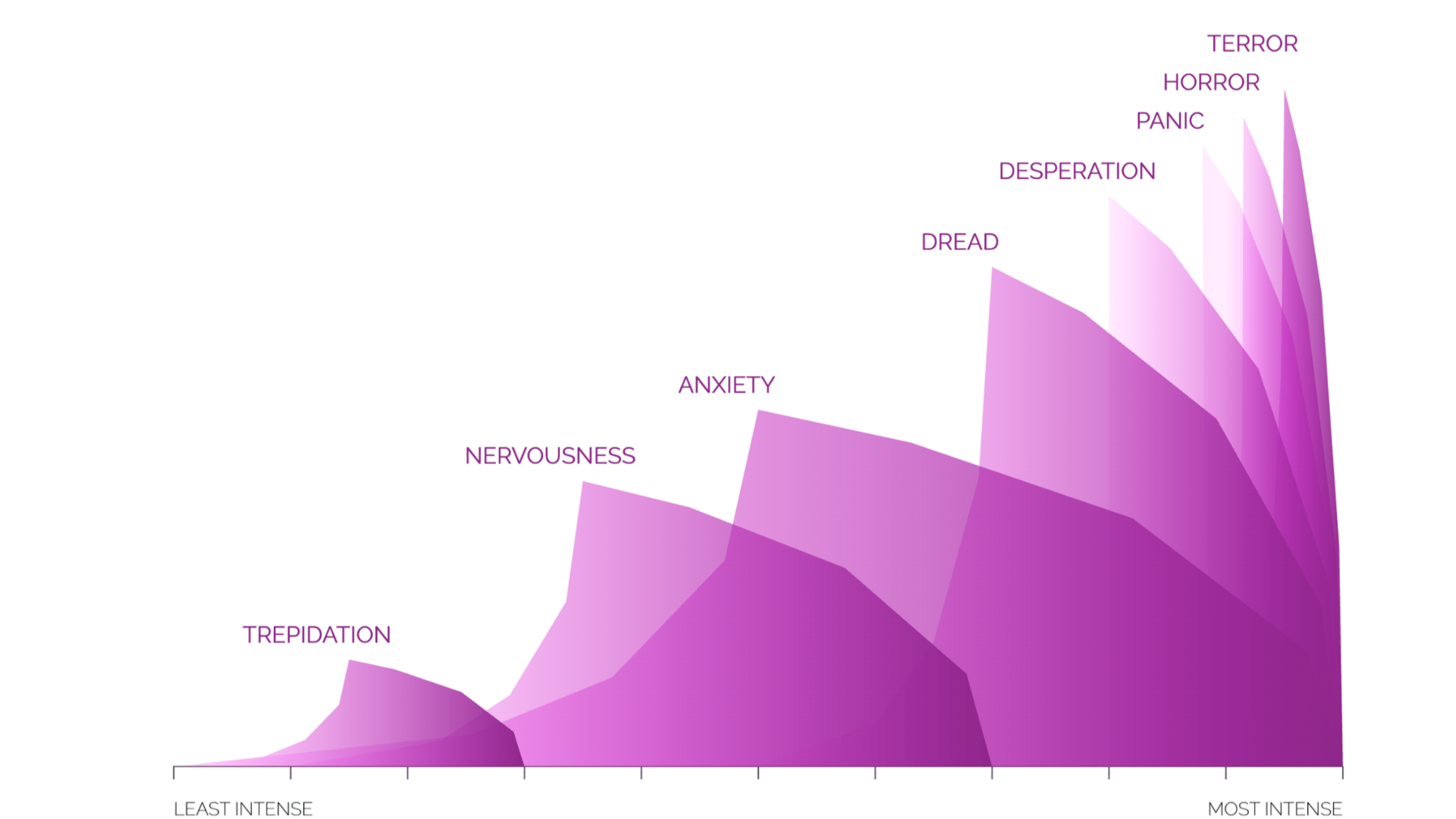
These are the actions of what emotion?
Intrinsic - Seek more, Maintain, Exclaim, Engage/connect, Savor, Indulge
Intentional - None
Enjoyment
Actions can be intrinsic (without conscious intent) or intentional (an active attempt to enact change), or both.
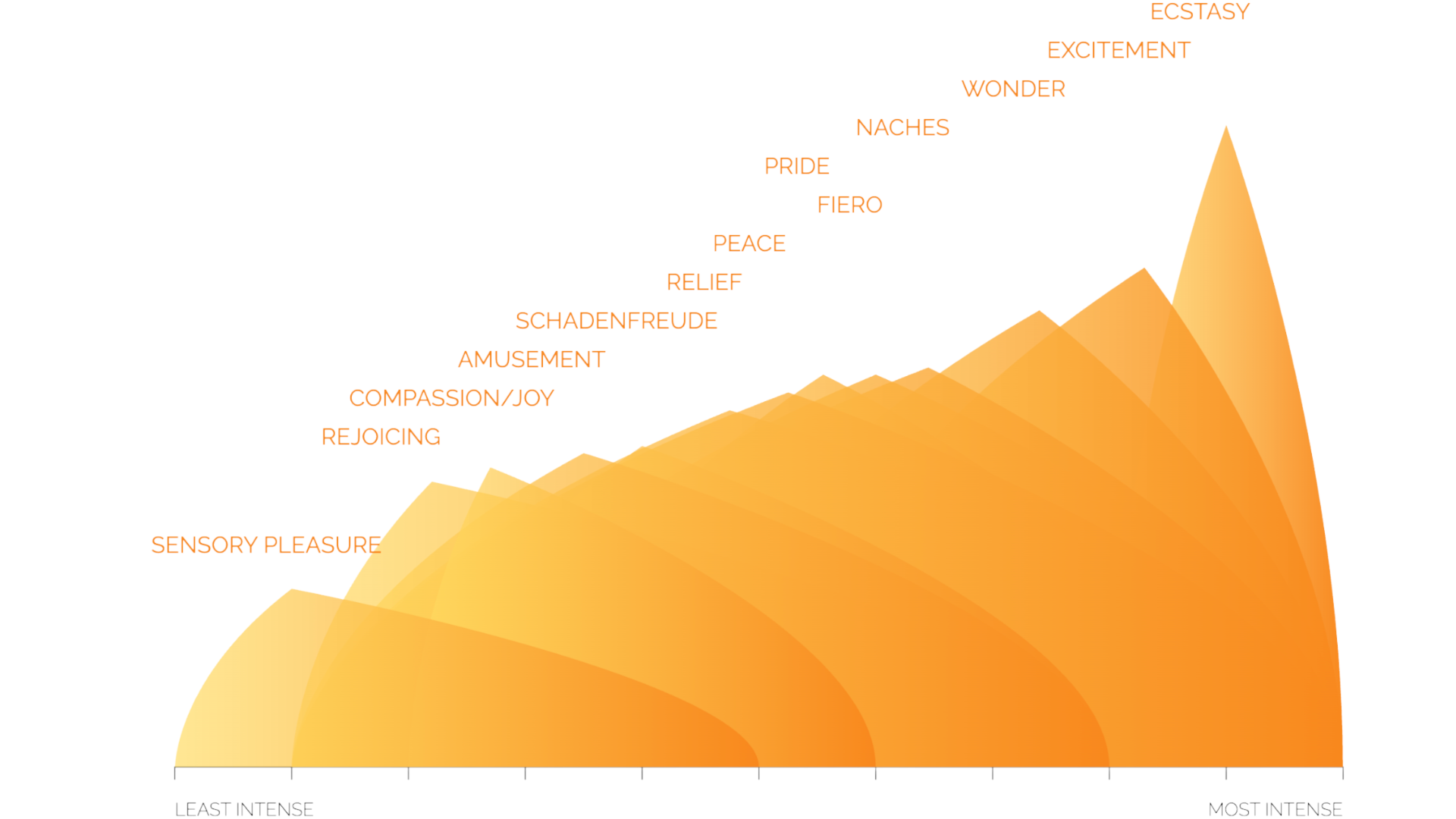
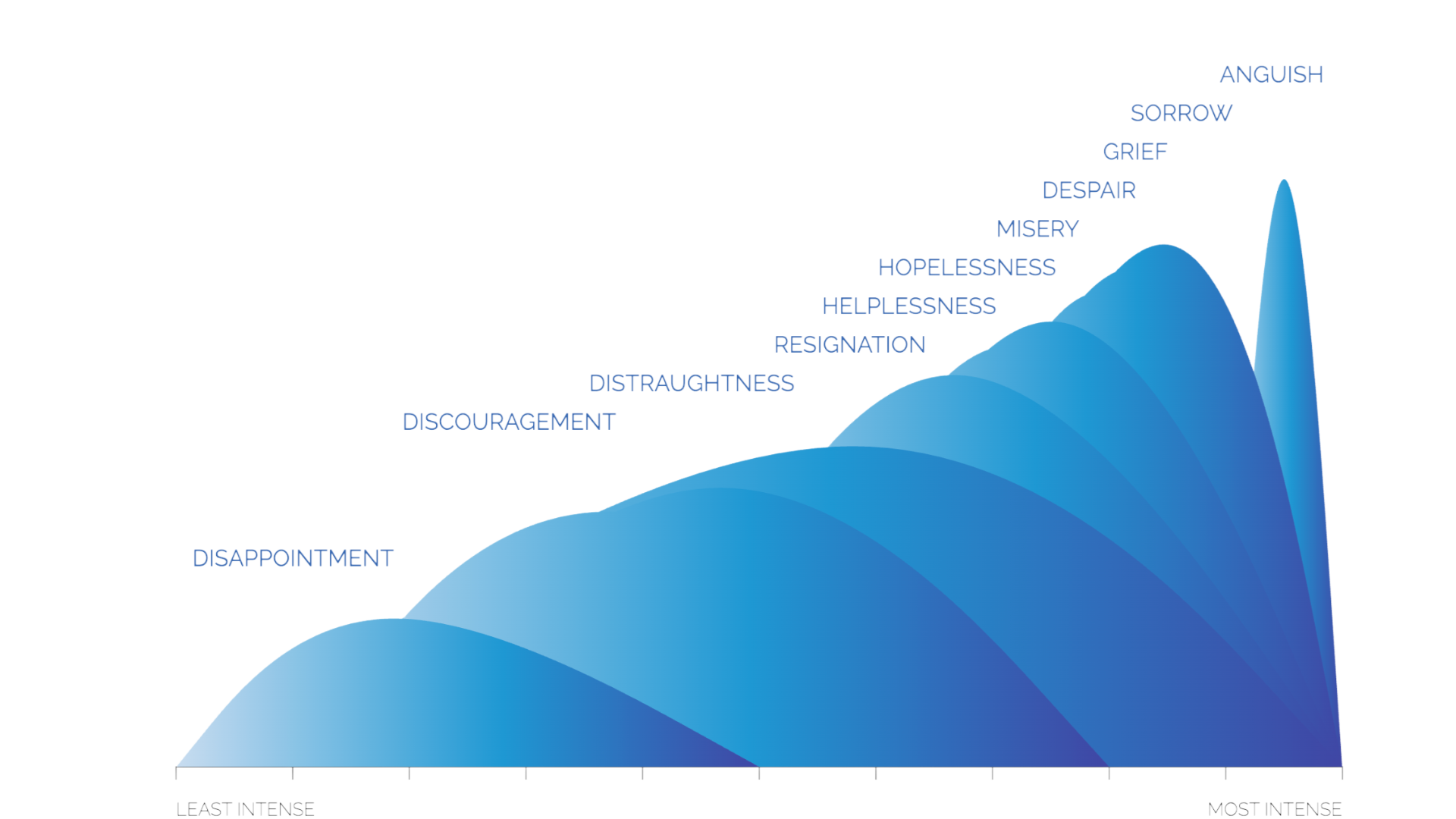
DISAPPOINTMENT (Sadness)
A feeling that expectations are not being met.
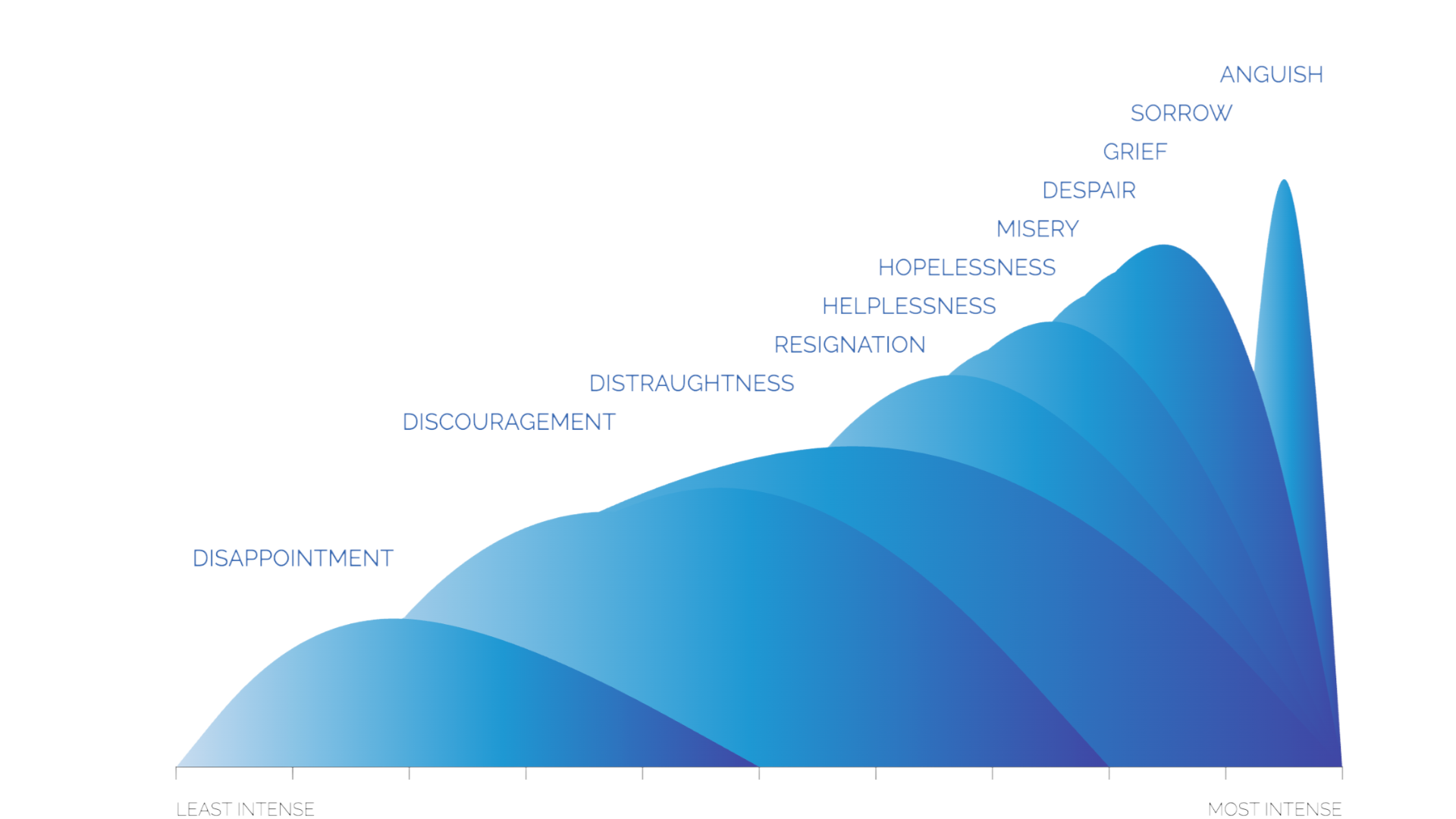
DISCOURAGEMENT (Sadness)
A response to repeated failures to accomplish something: the belief that it can't be done.
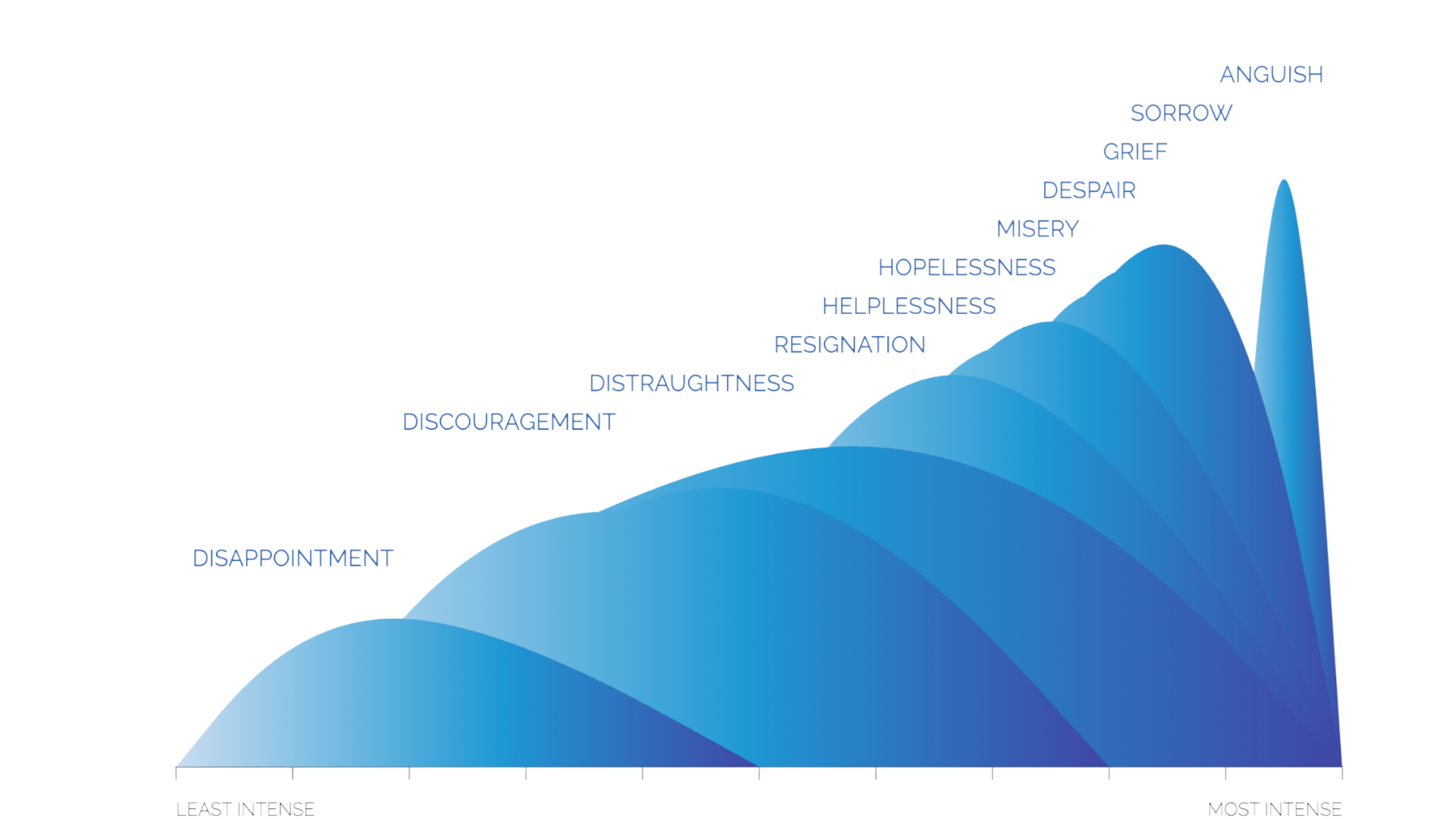
DISTRAUGHTNESS (Sadness)
Sadness that makes it hard to think clearly.
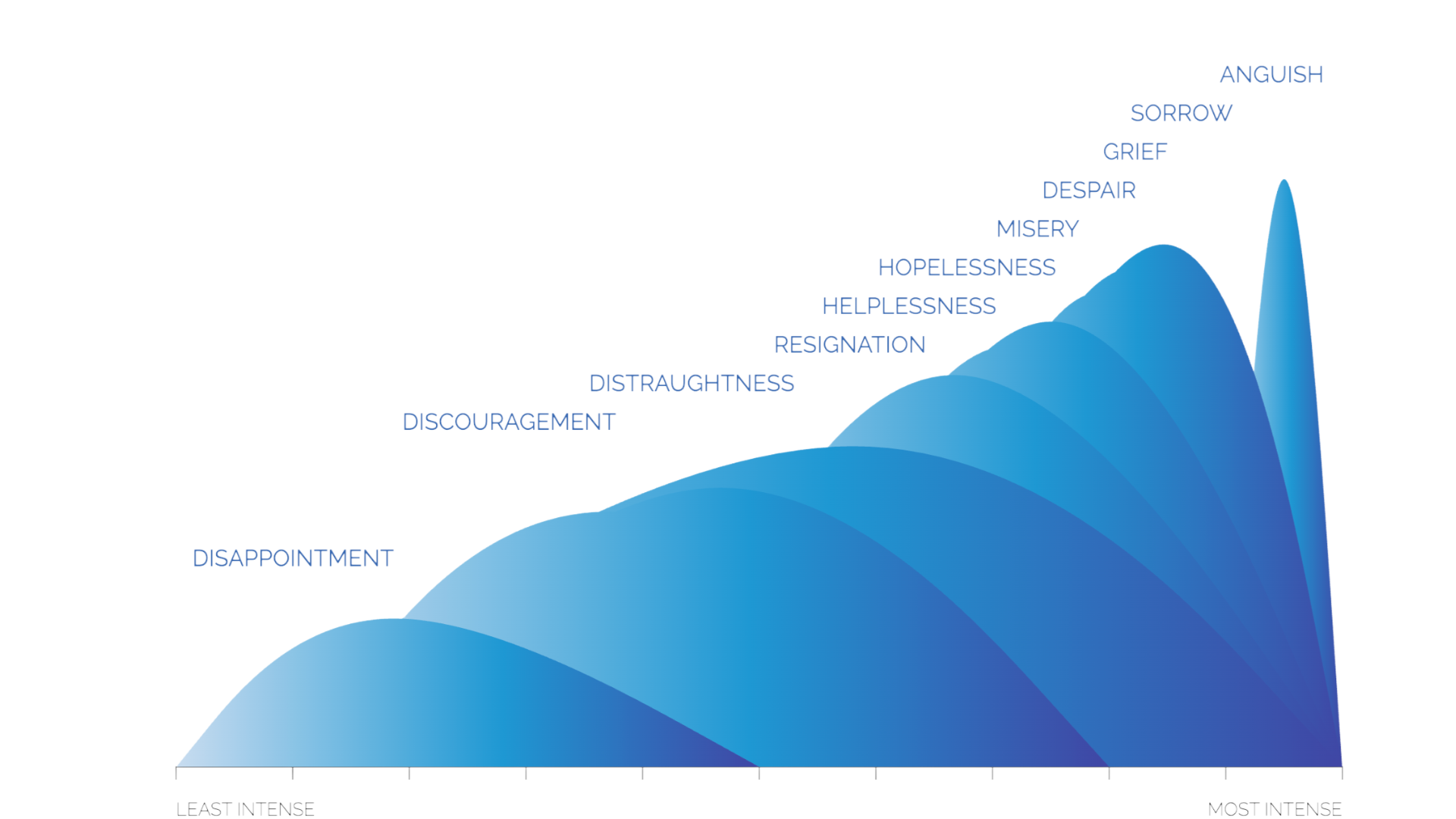
RESIGNATION (Sadness)
The belief that nothing can be done.
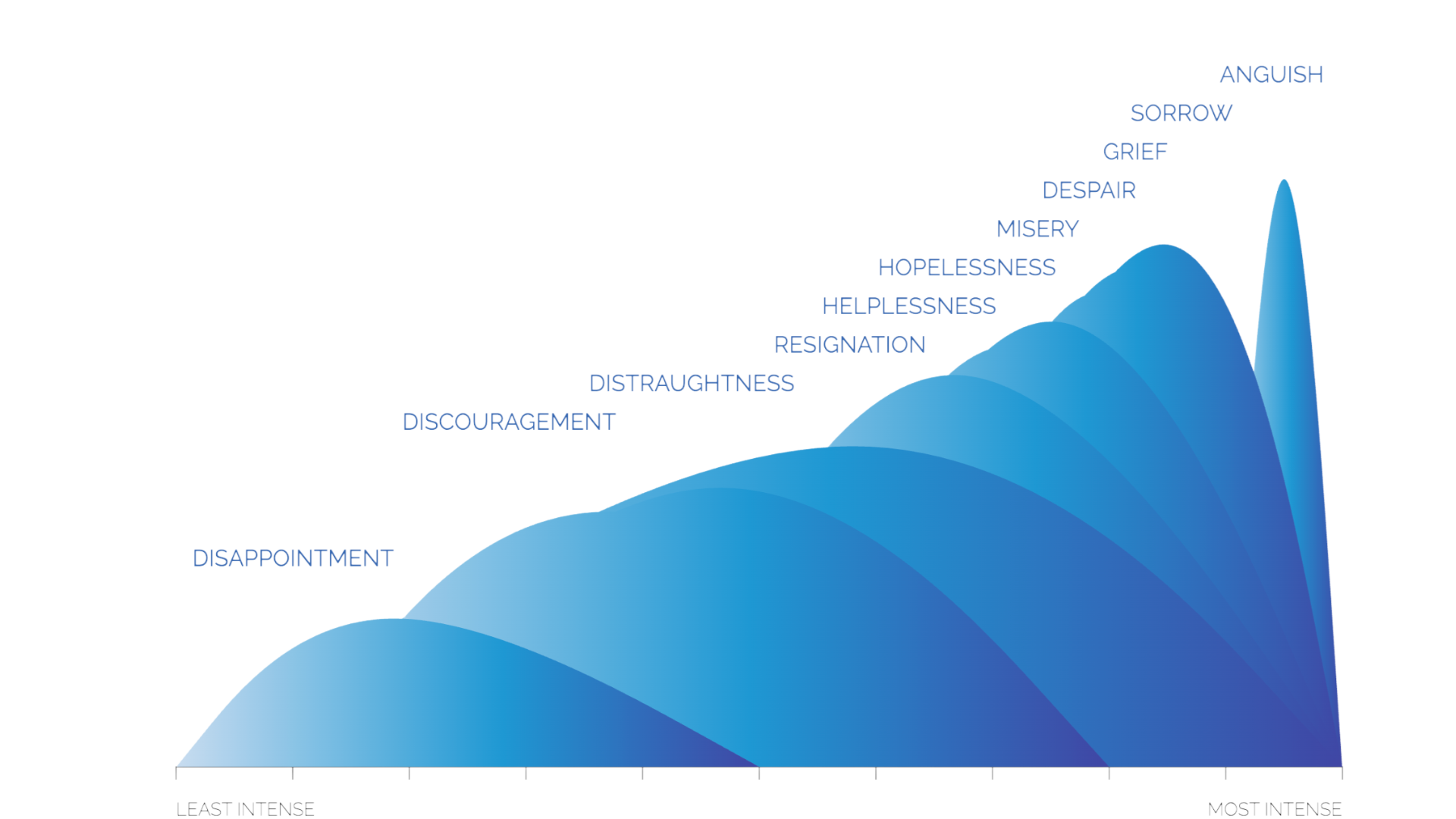
HELPLESSNESS (Sadness)
The realization that one cannot make a situation better or easier.
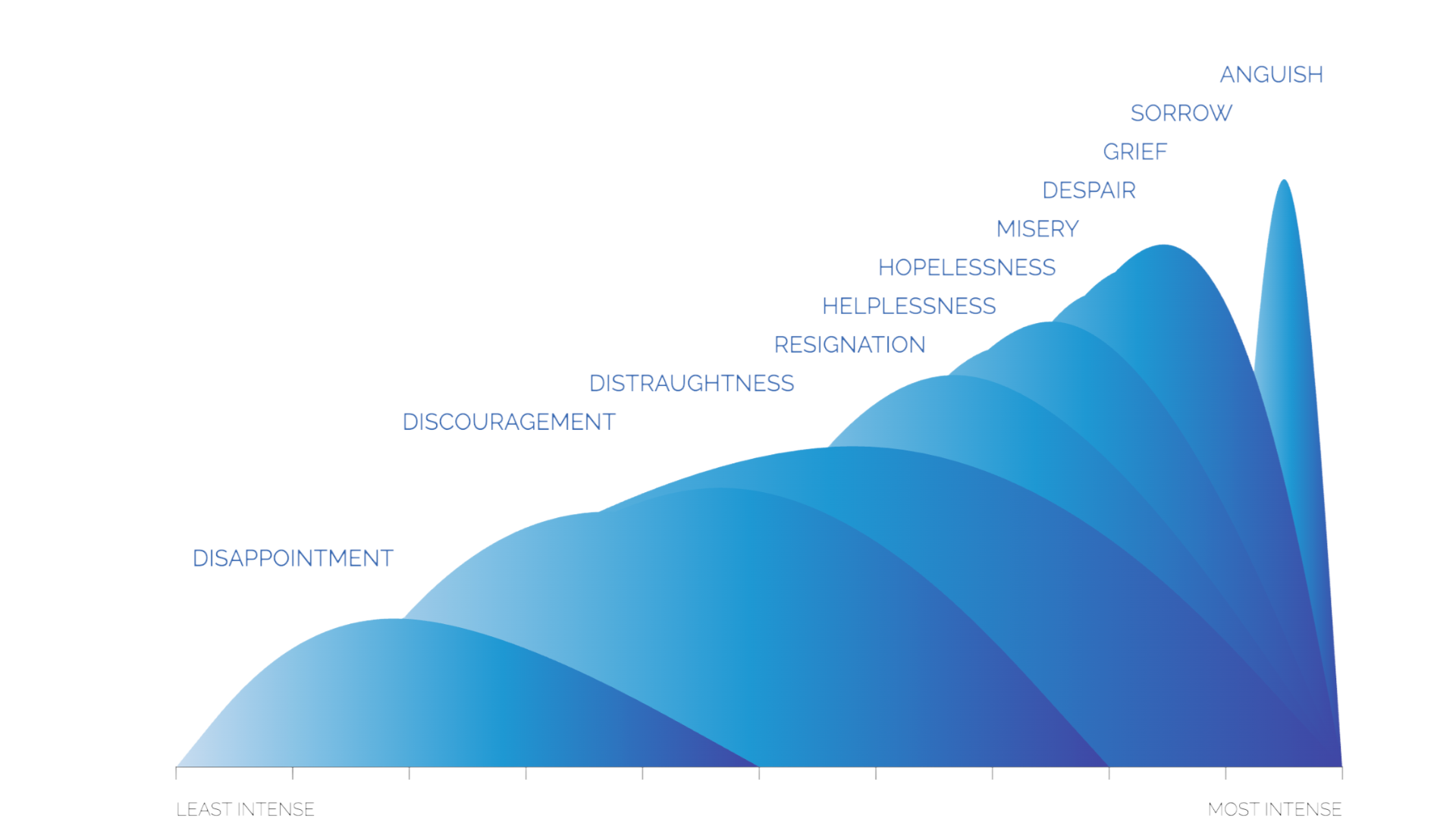
HOPELESSNESS (Sadness)
The belief that nothing good will happen.
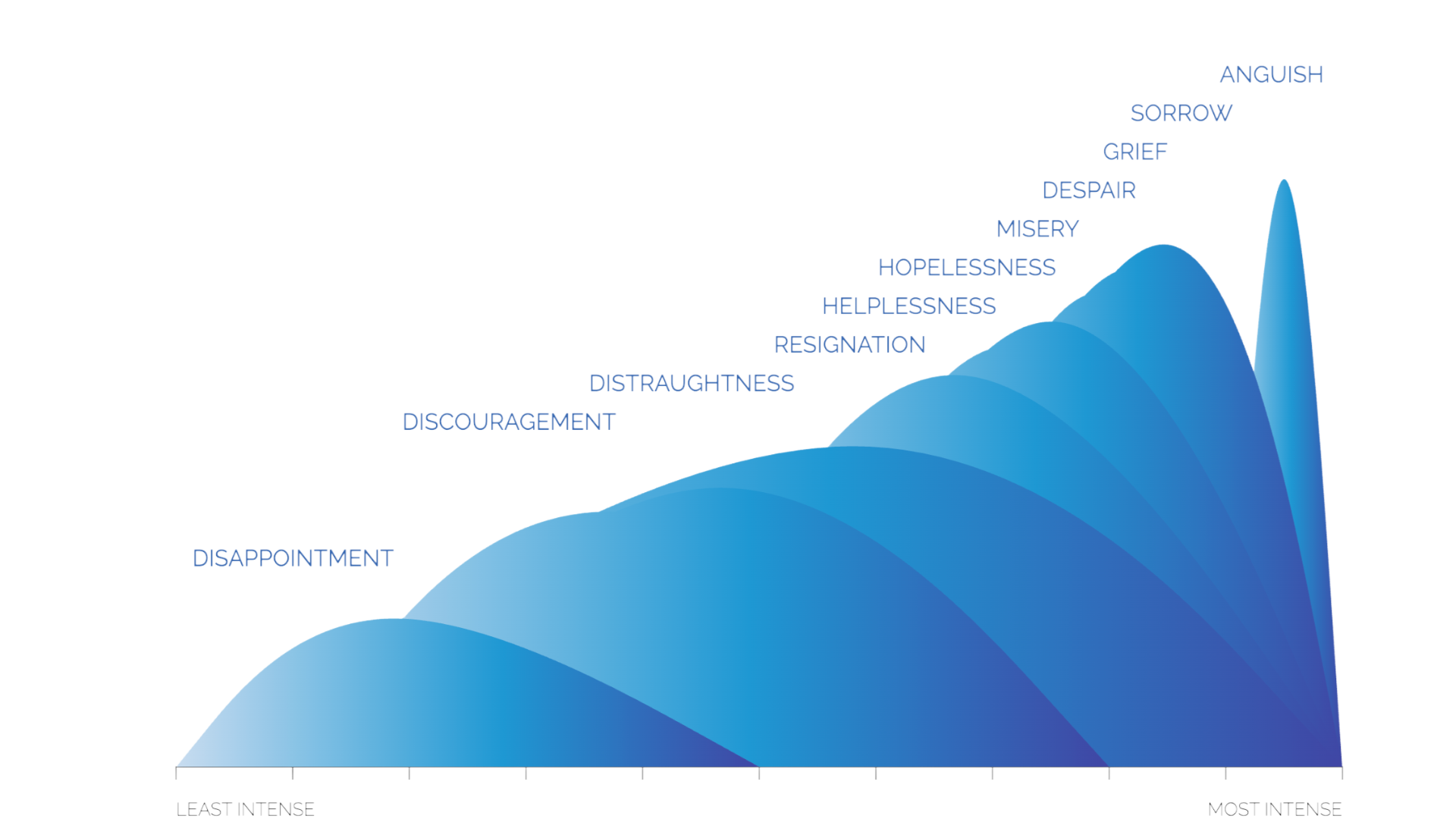
MISERY (Sadness)
Strong suffering or unhappiness.
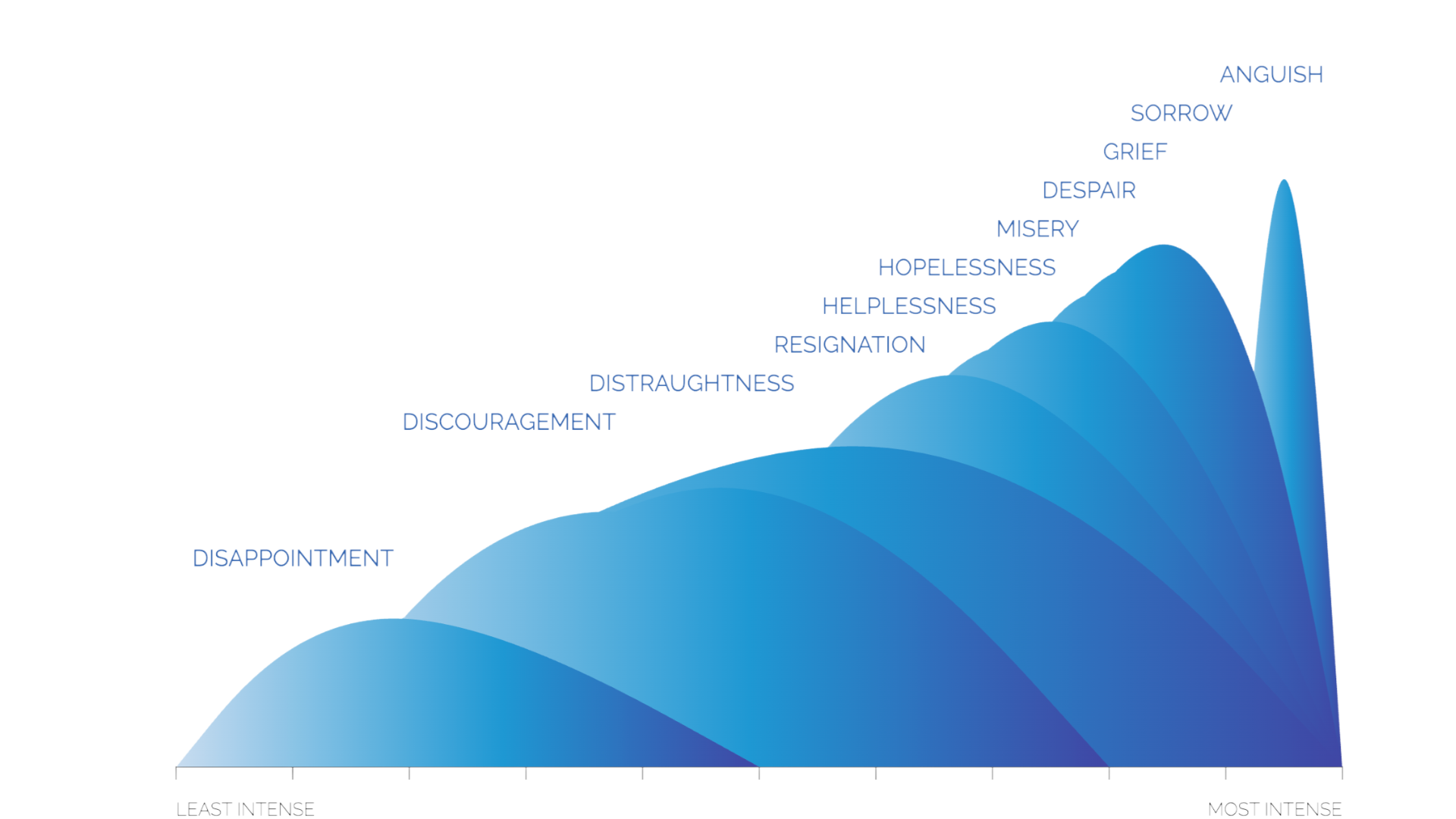
DESPAIR (Sadness)
The loss of hope that a bad situation will improve or change.
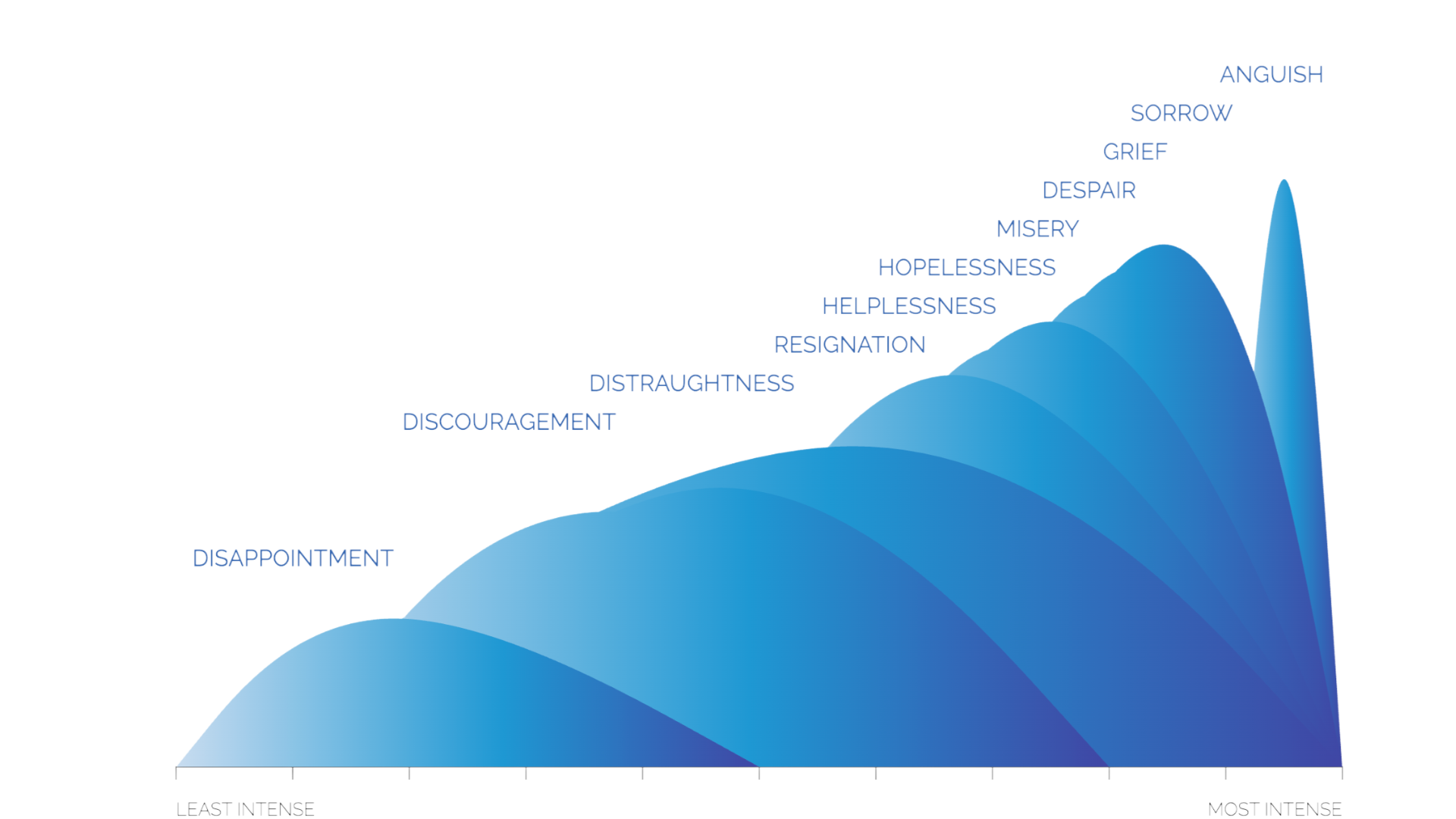
GRIEF (Sadness)
Sadness over a deep loss.
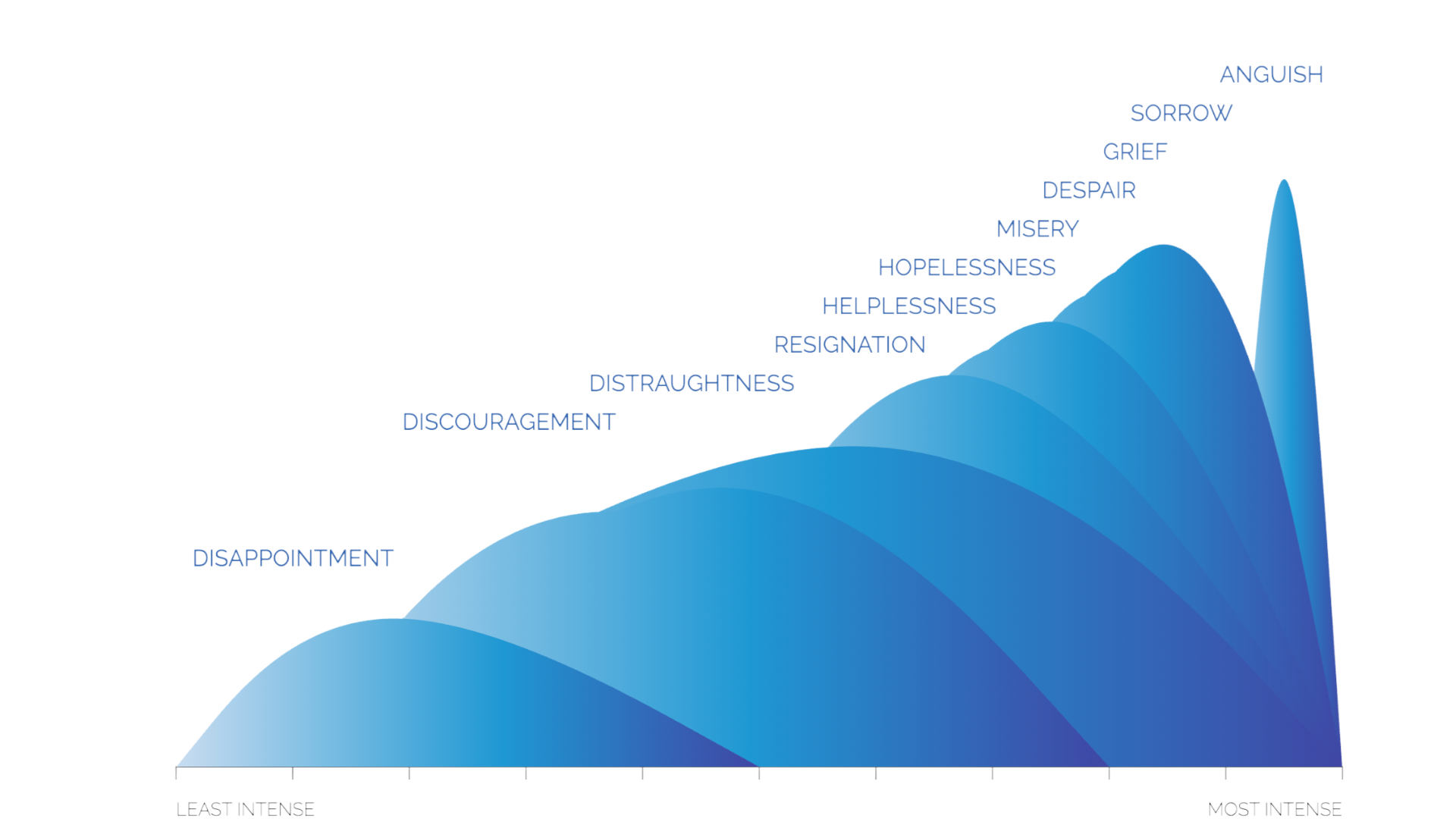
SORROW (Sadness)
A feeling of distress and sadness, often caused by a loss.
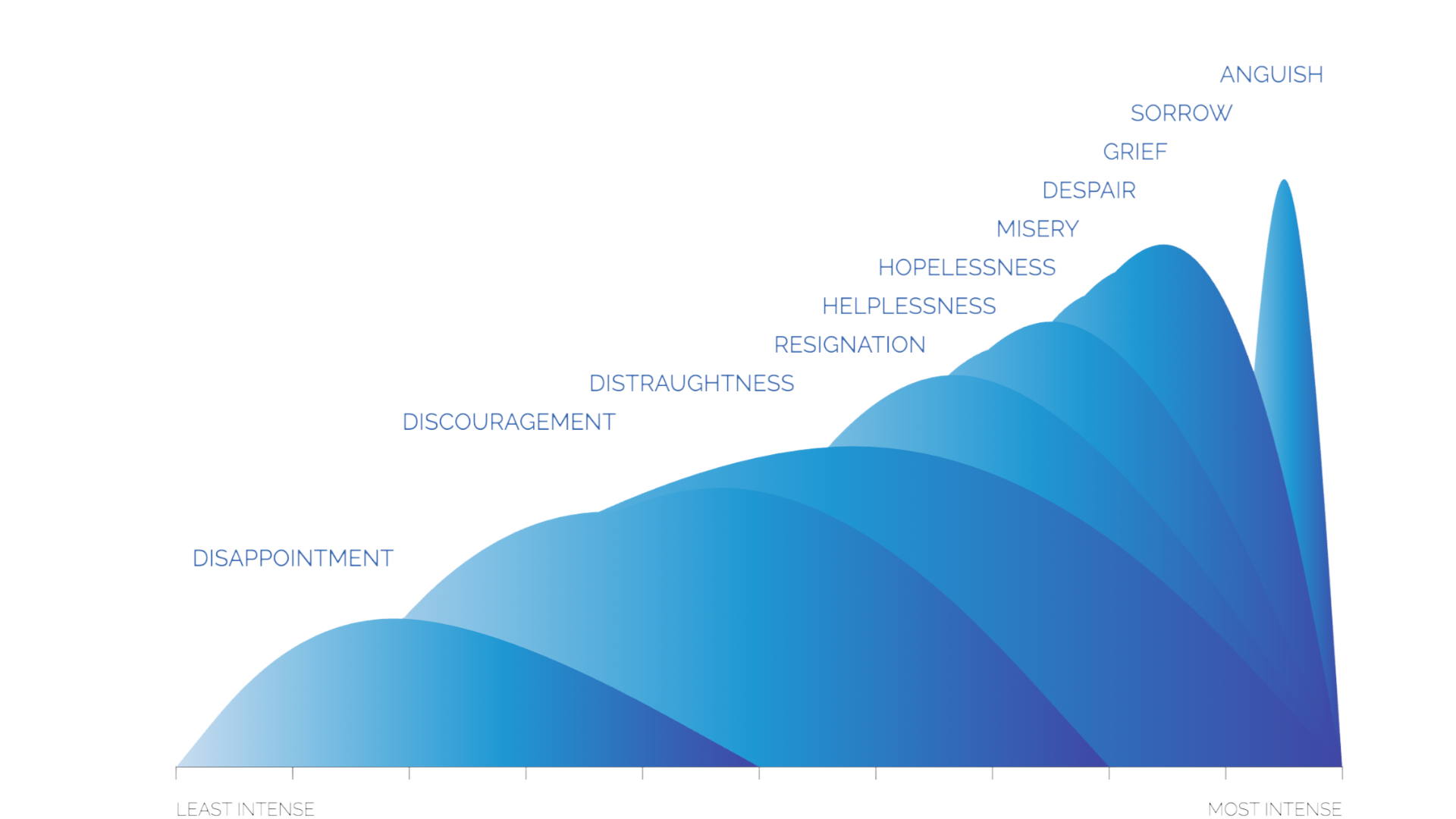
ANGUISH (Sadness)
Intense sadness or suffering.
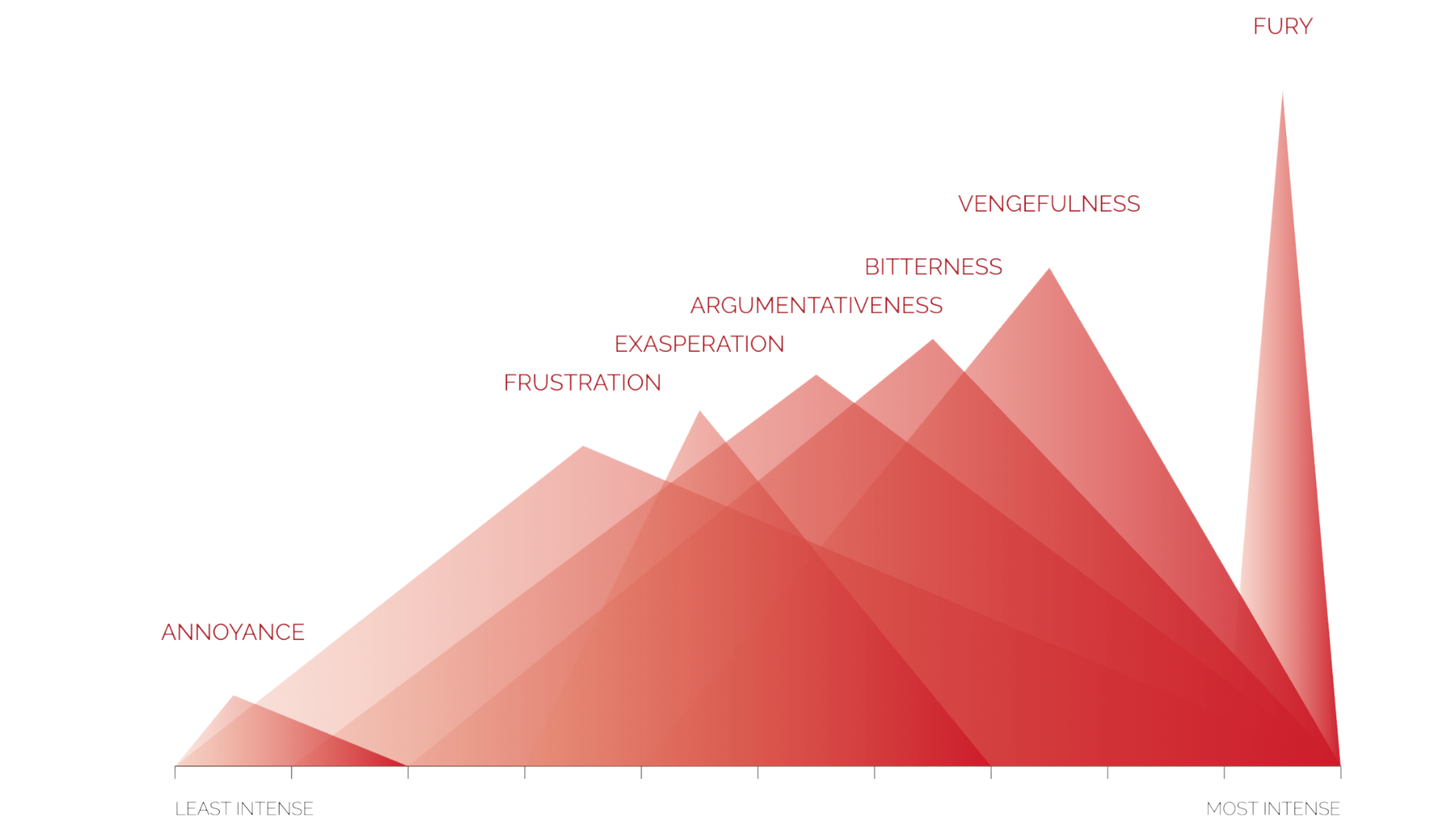
ANNOYANCE (Anger)
Very mild anger caused by a nuisance or inconvenience.
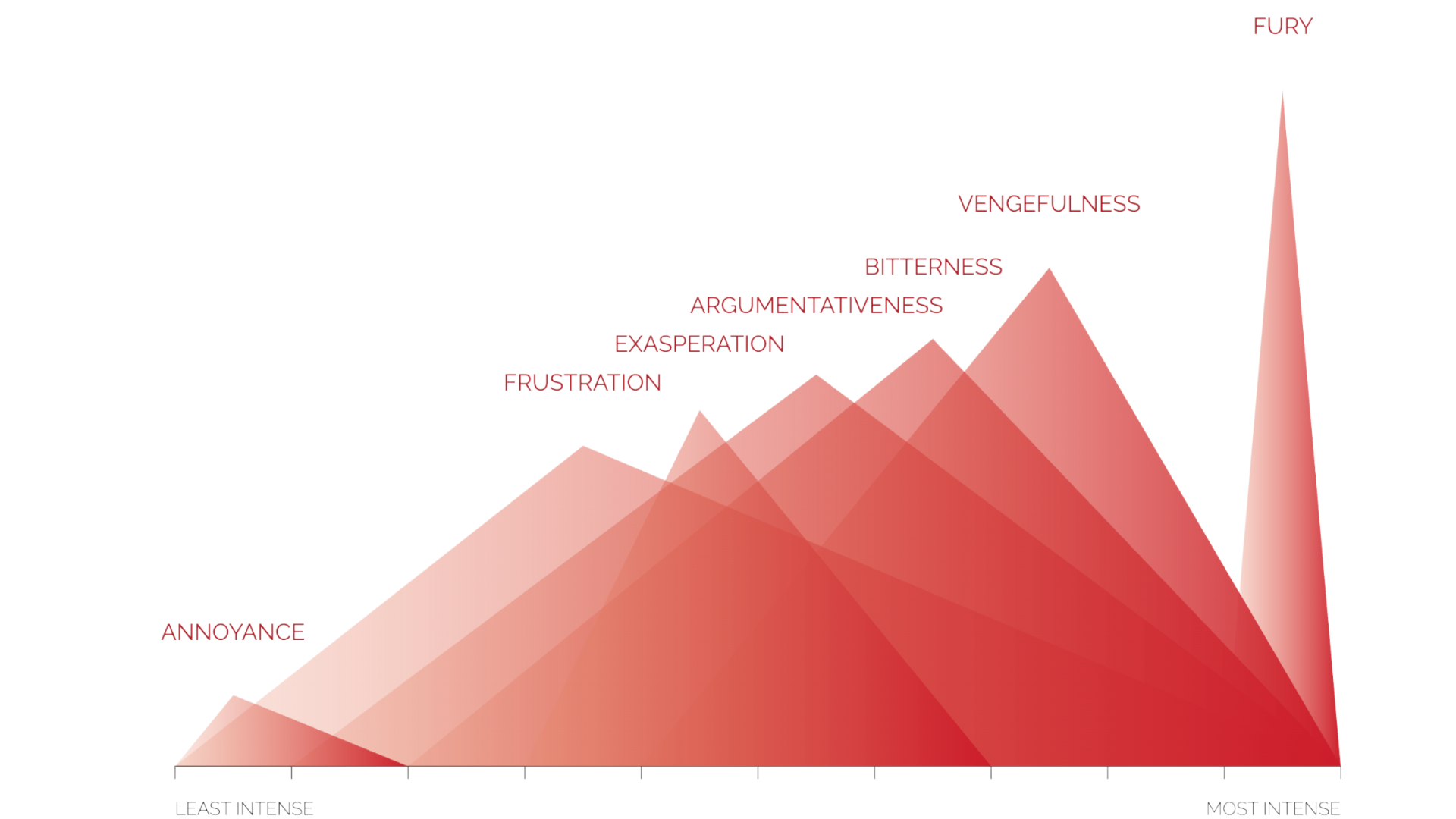
FRUSTRATION (Anger)
A response to repeated failures to overcome an obstacle.
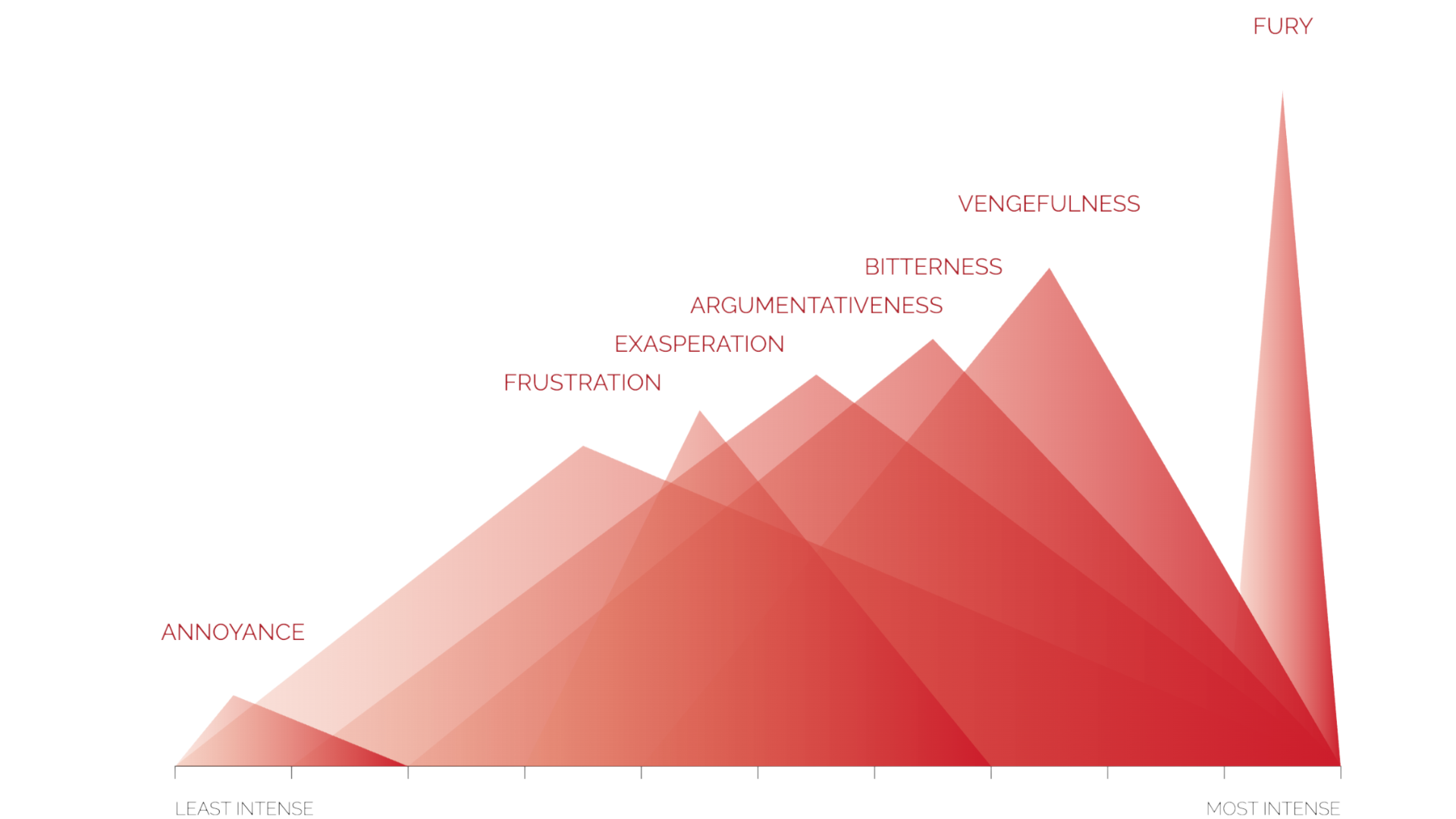
EXASPERATION (Anger)
Anger caused by a repeated or strong nuisance.
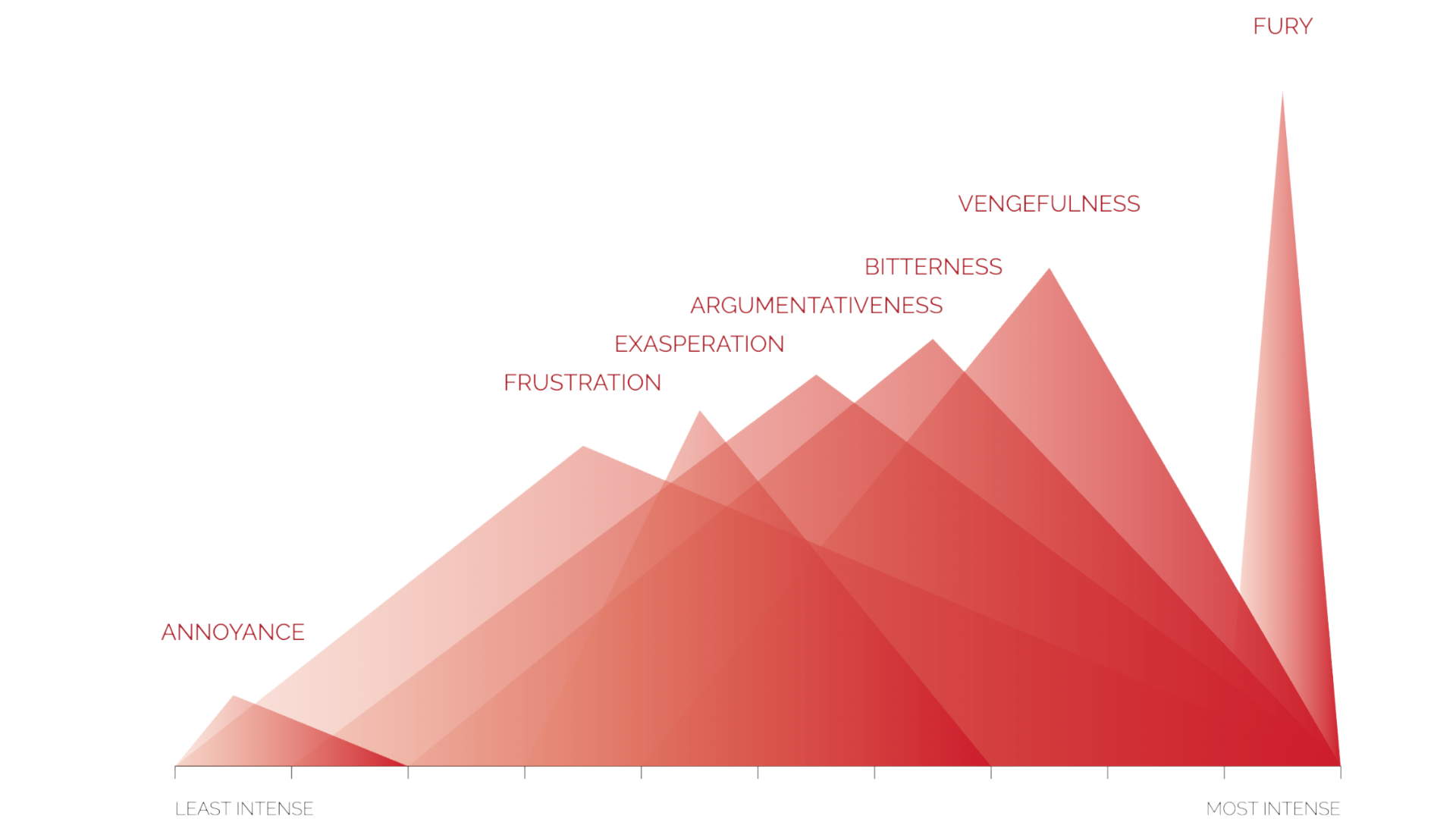
ARGUMENTATIVENESS (Anger)
A tendency to engage in disagreements.
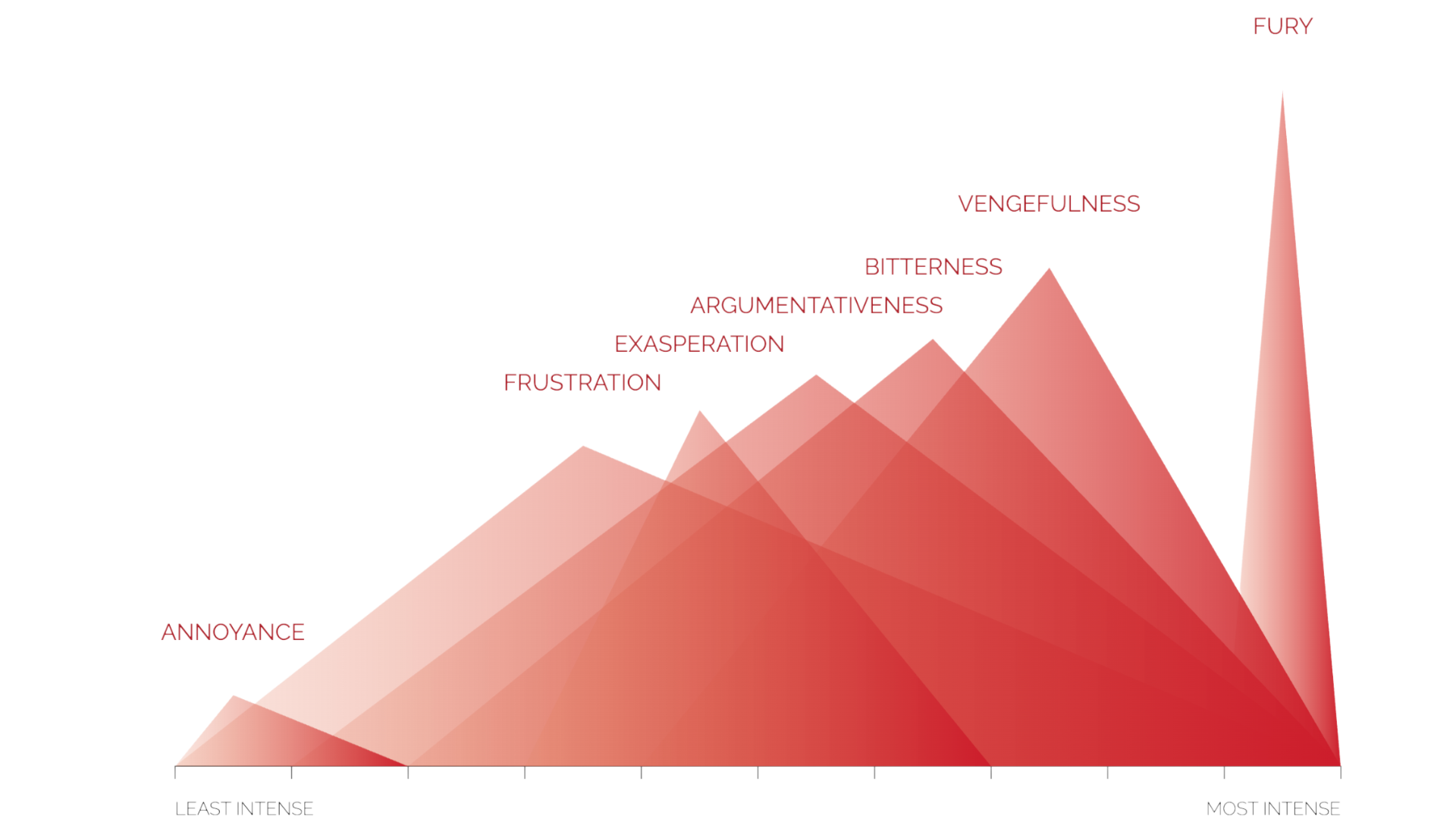
BITTERNESS (Anger)
Anger after unfair treatment.
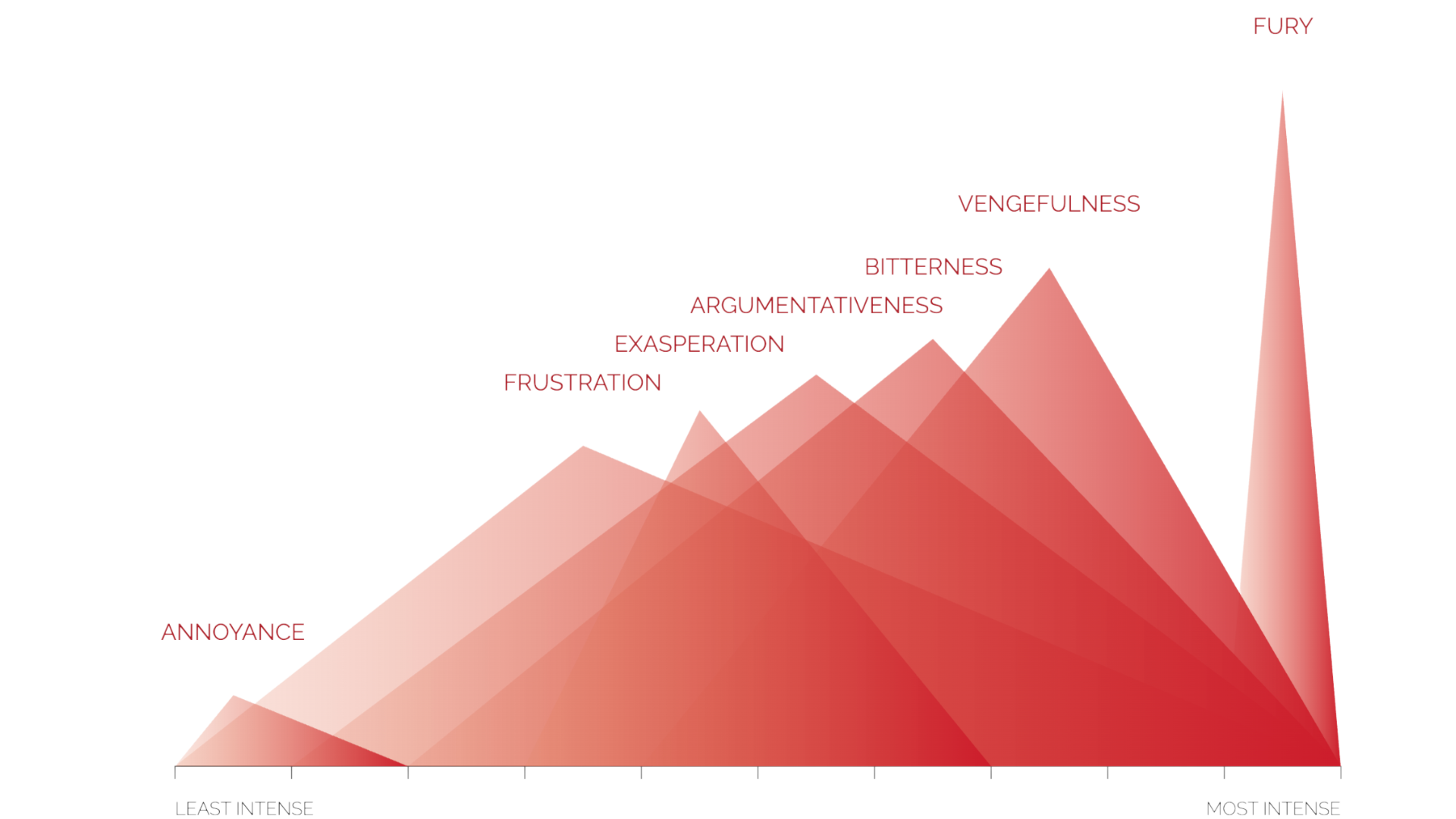
VENGEFULNESS (Anger)
Desire to retaliate after one is hurt.
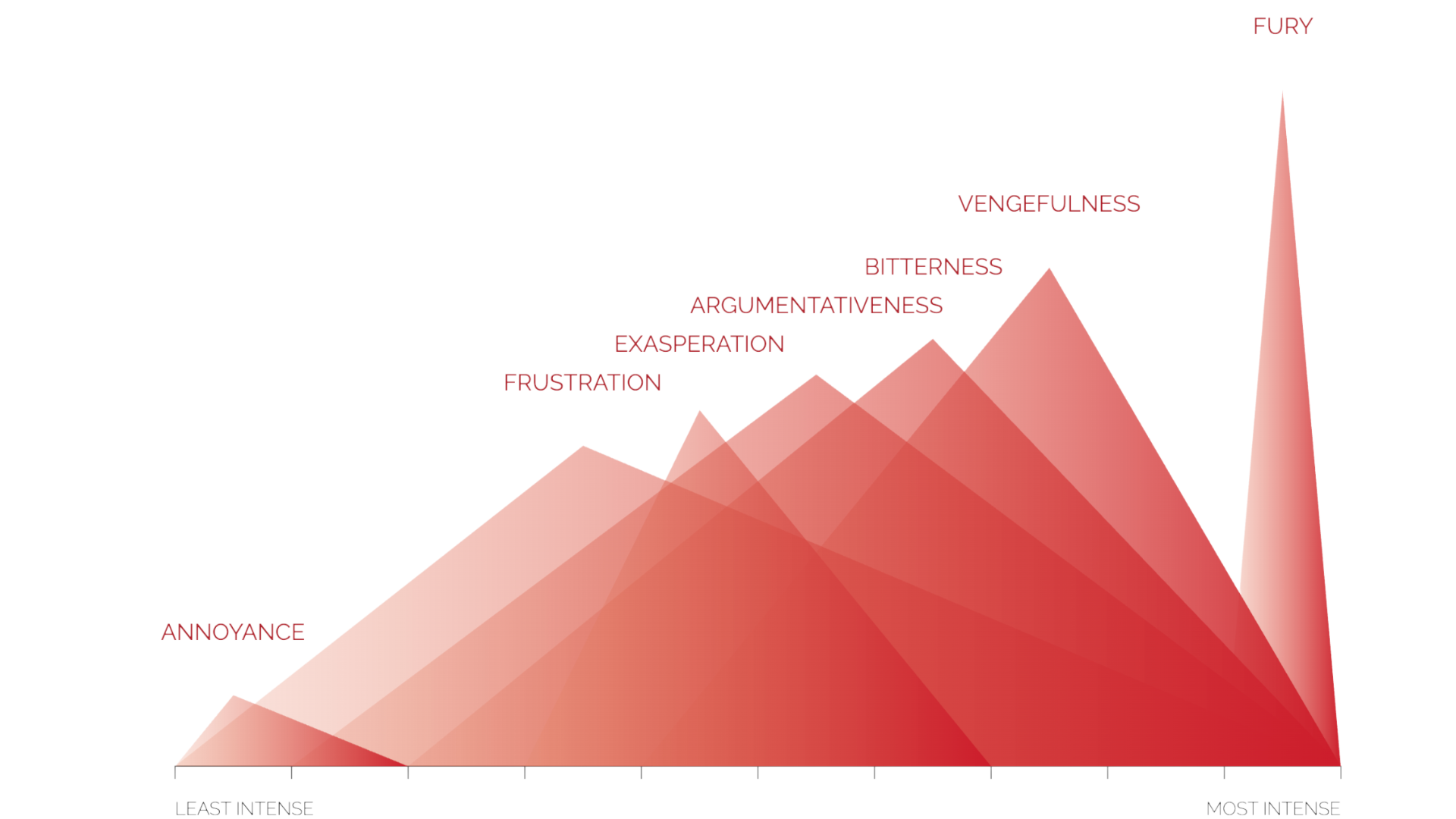
FURY (Anger)
Uncontrolled and often violent anger.
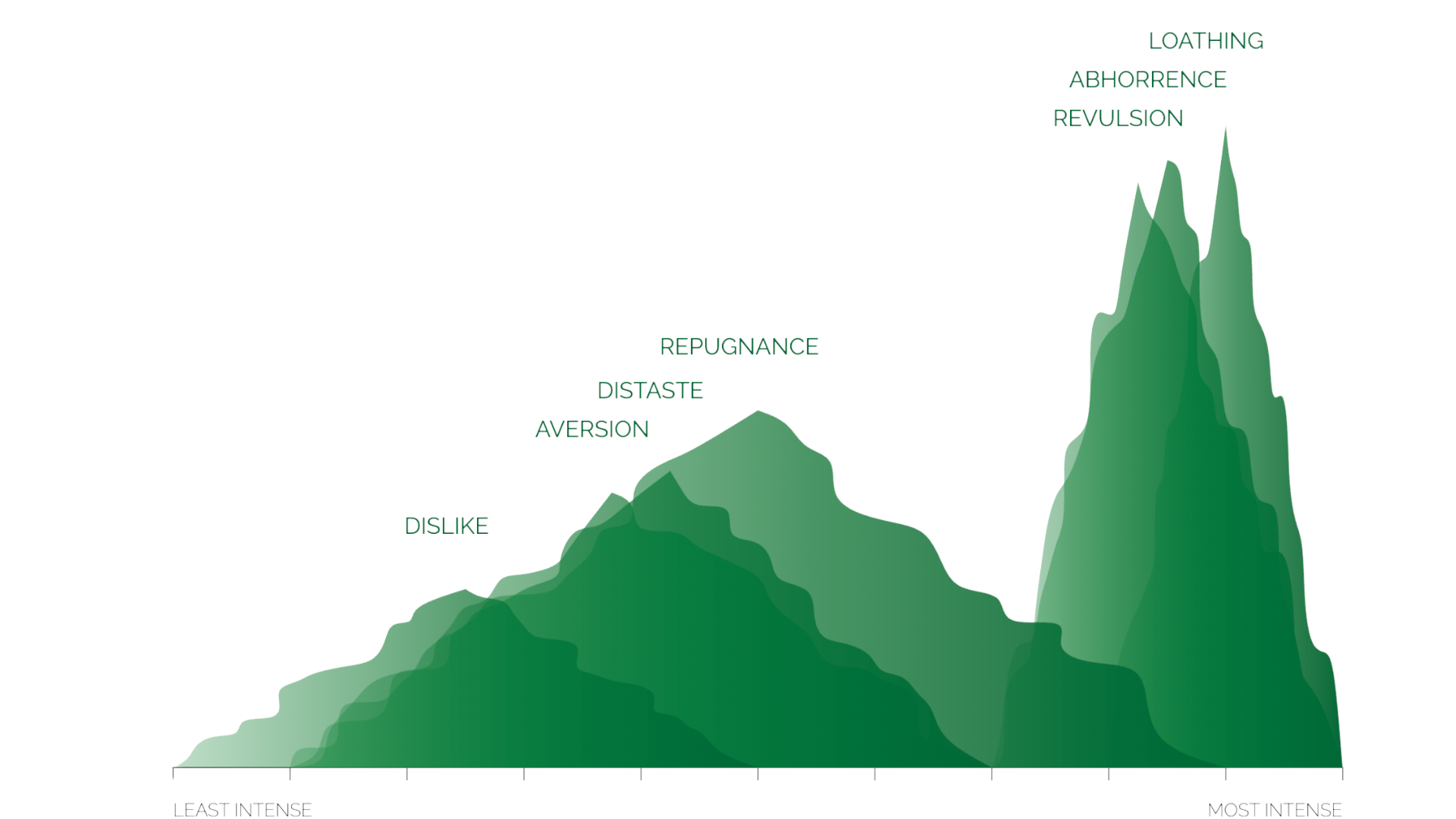
DISLIKE (Disgust)
A preference against something.
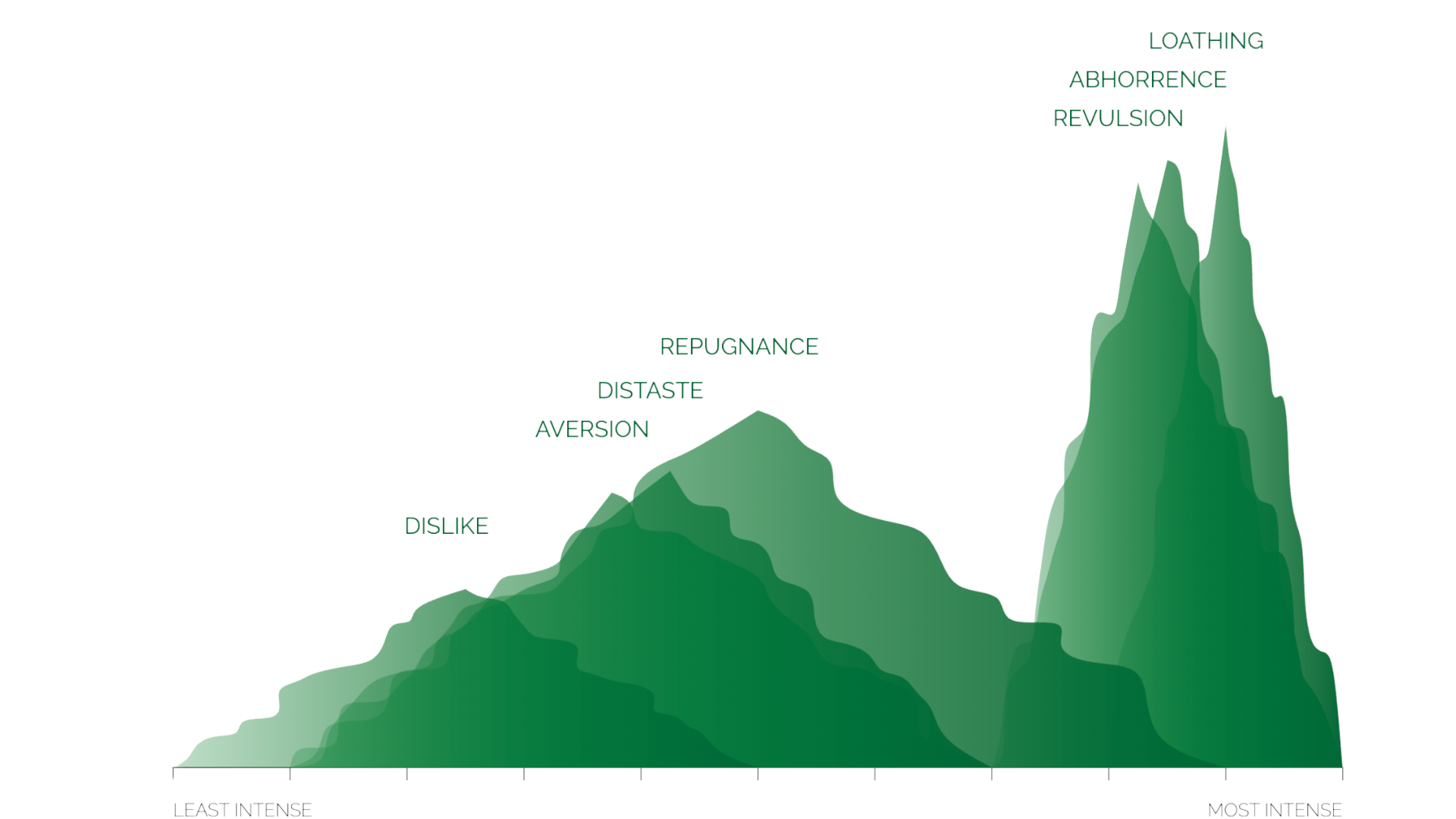
AVERSION (Disgust)
An impulse to avoid something disgusting.
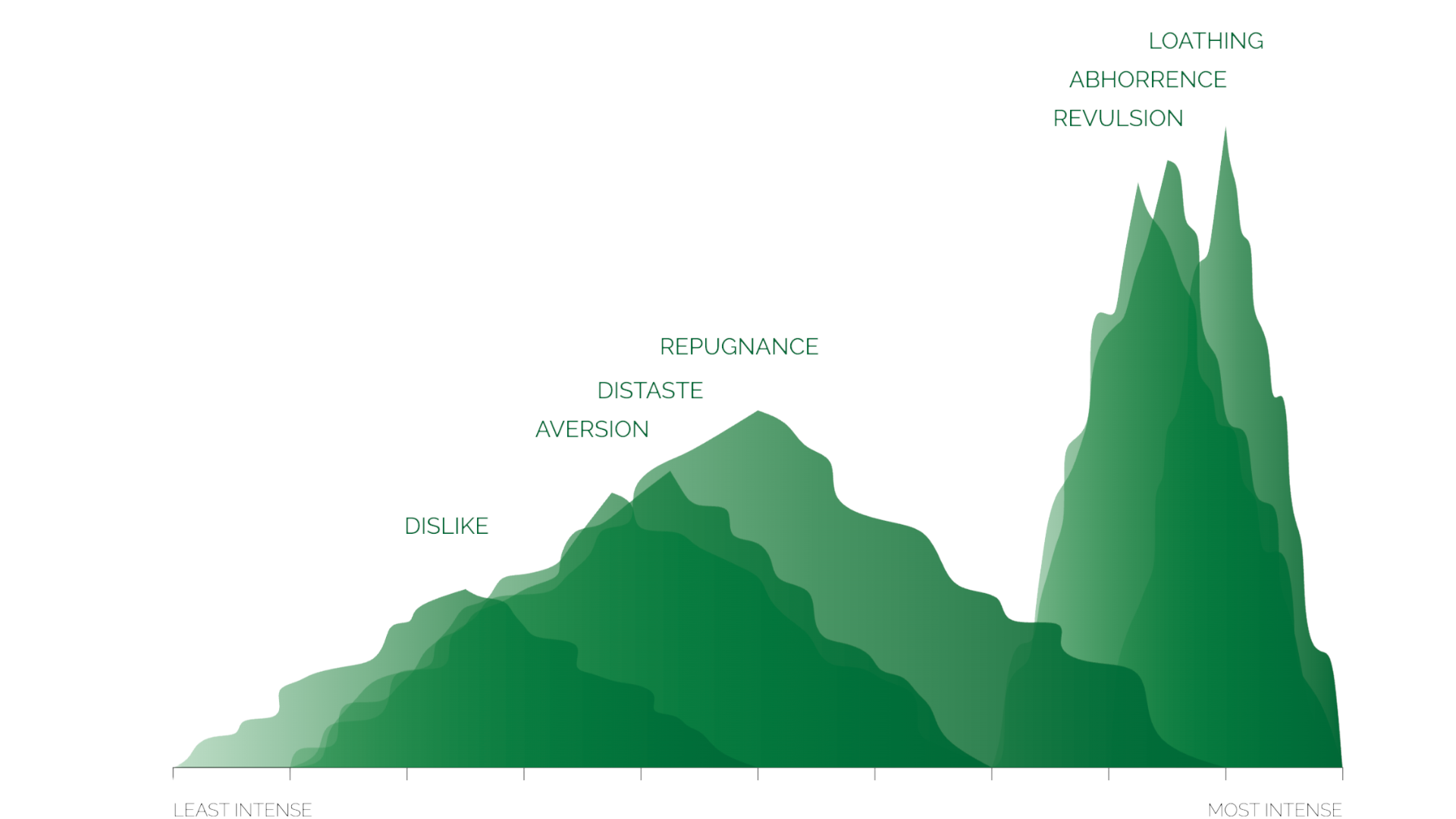
DISTASTE (Disgust)
A reaction to a bad taste, smell, thing or idea. Can be literal or metaphorical.
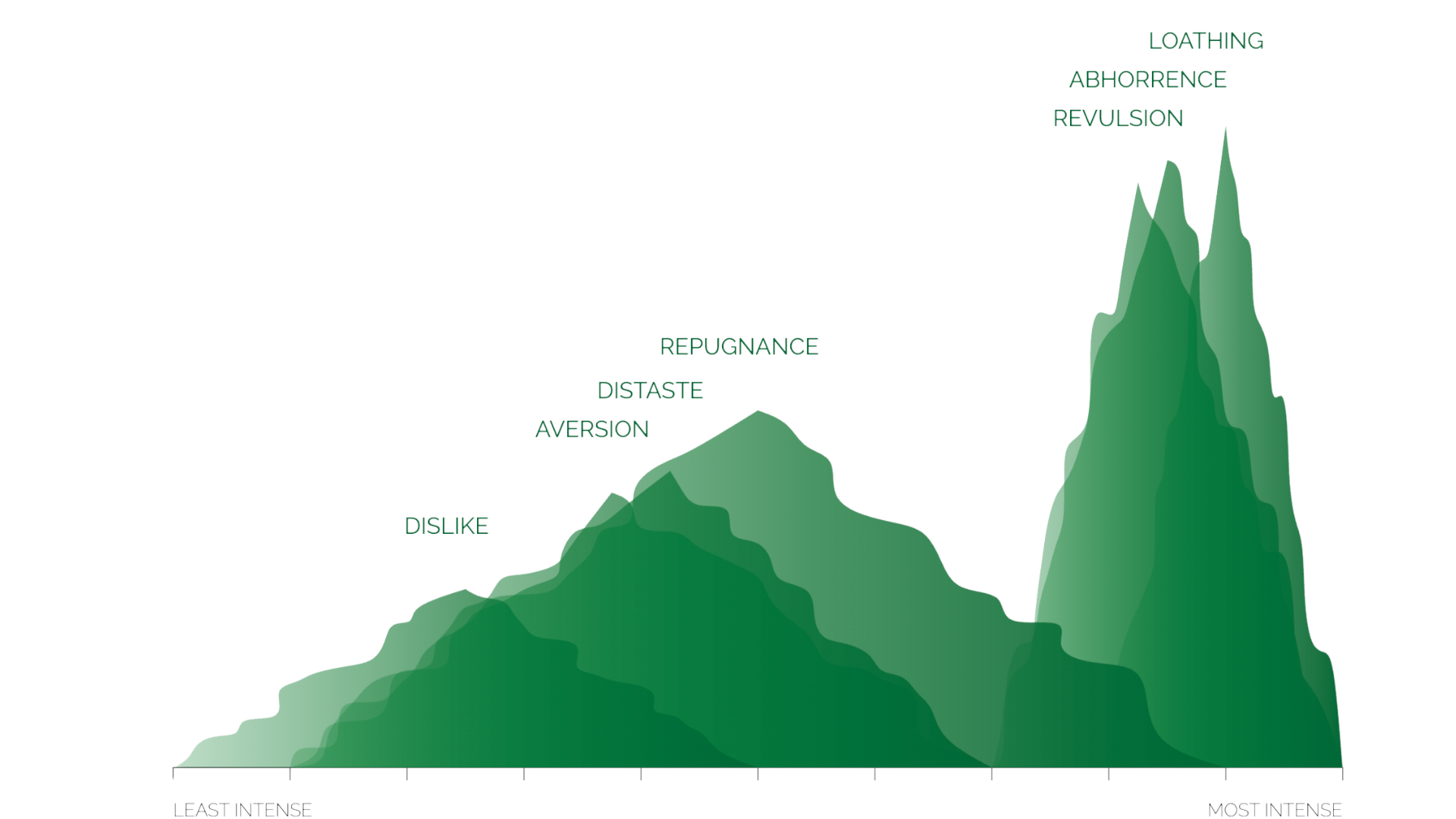
REPUGNANCE (Disgust)
Strong distaste for something, often a concept or idea.
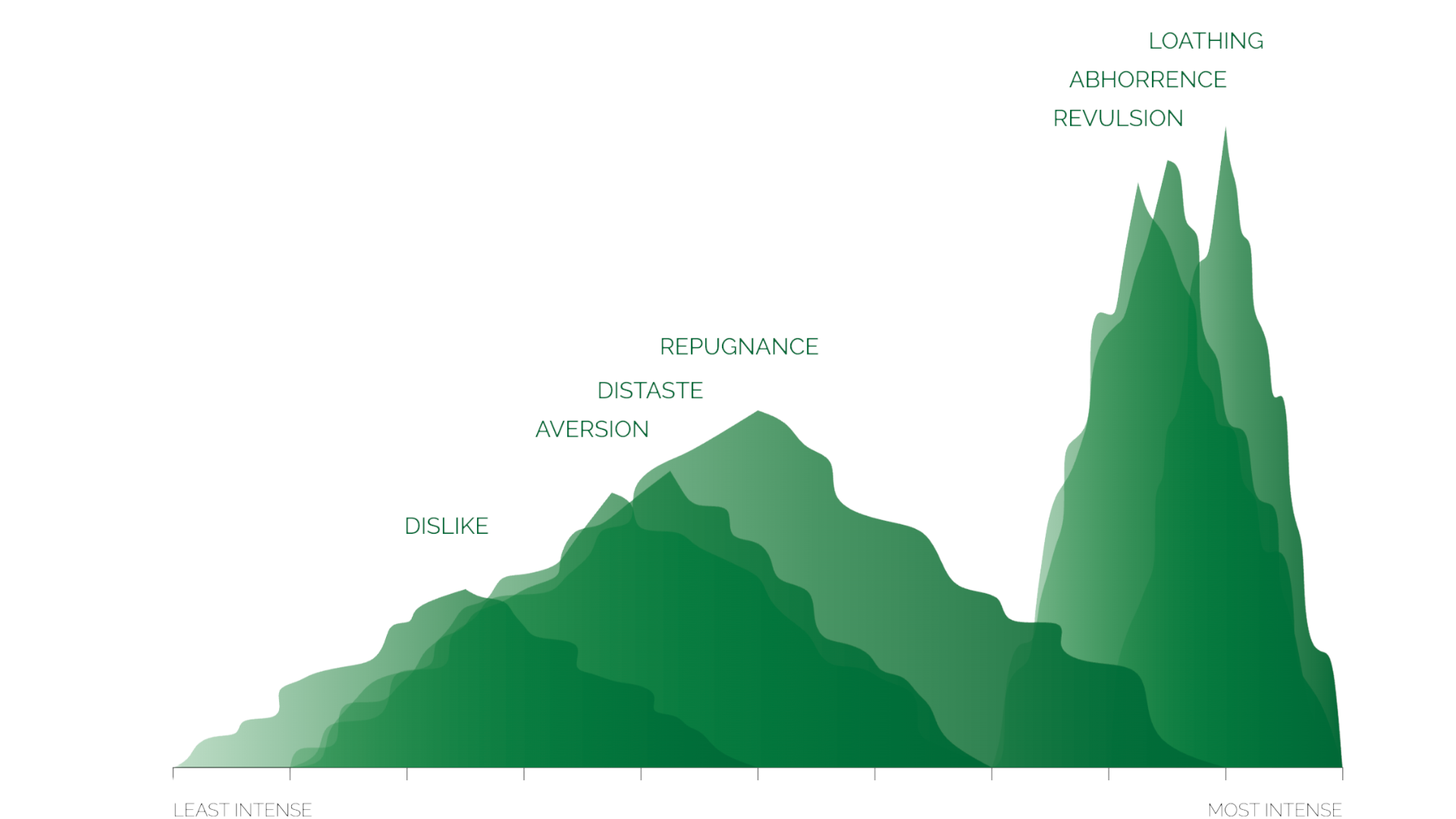
REVULSION (Disgust)
A mixture of disgust and loathing.
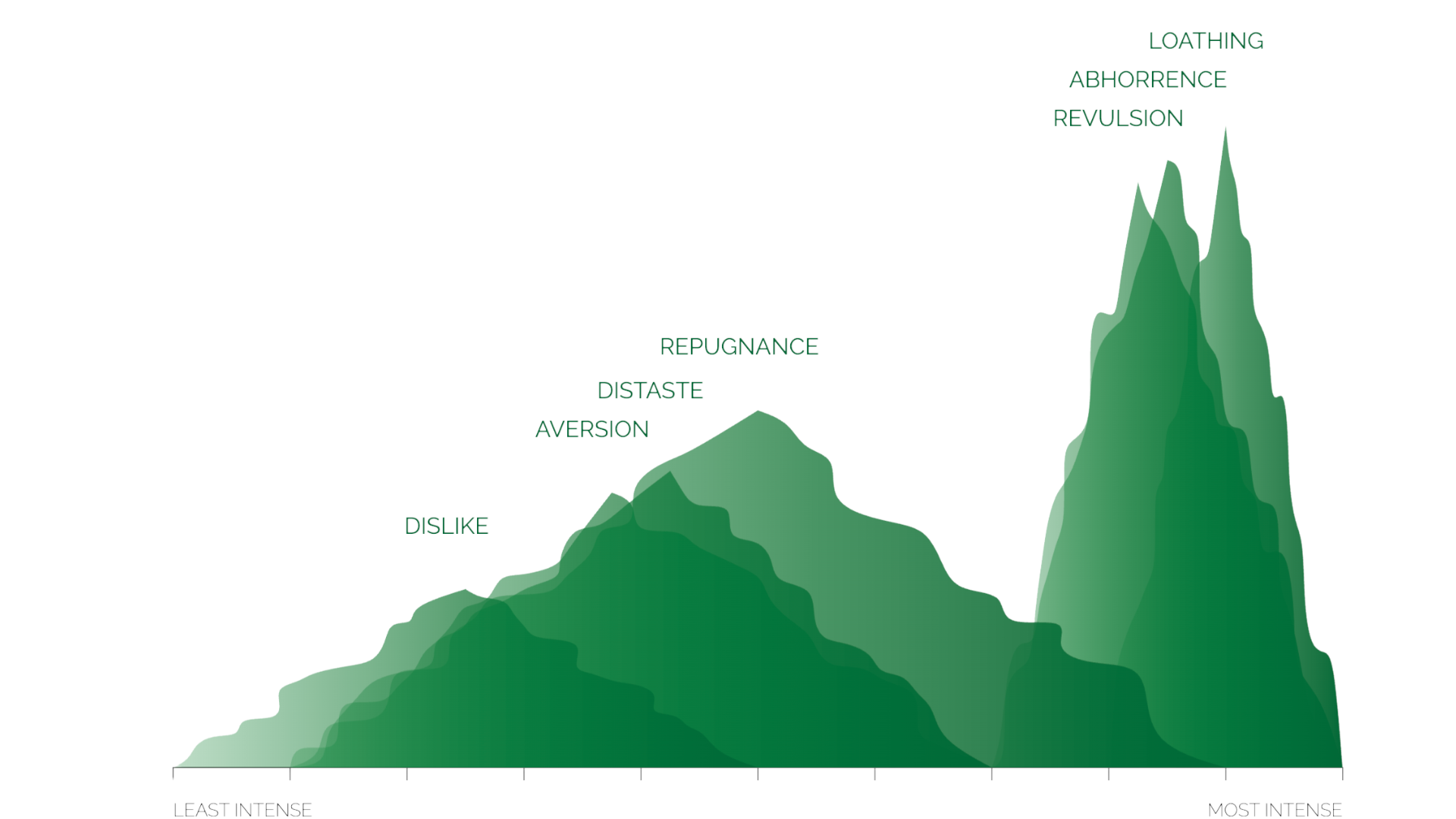
ABHORRENCE (Disgust)
A mixture of intense disgust and hatred.
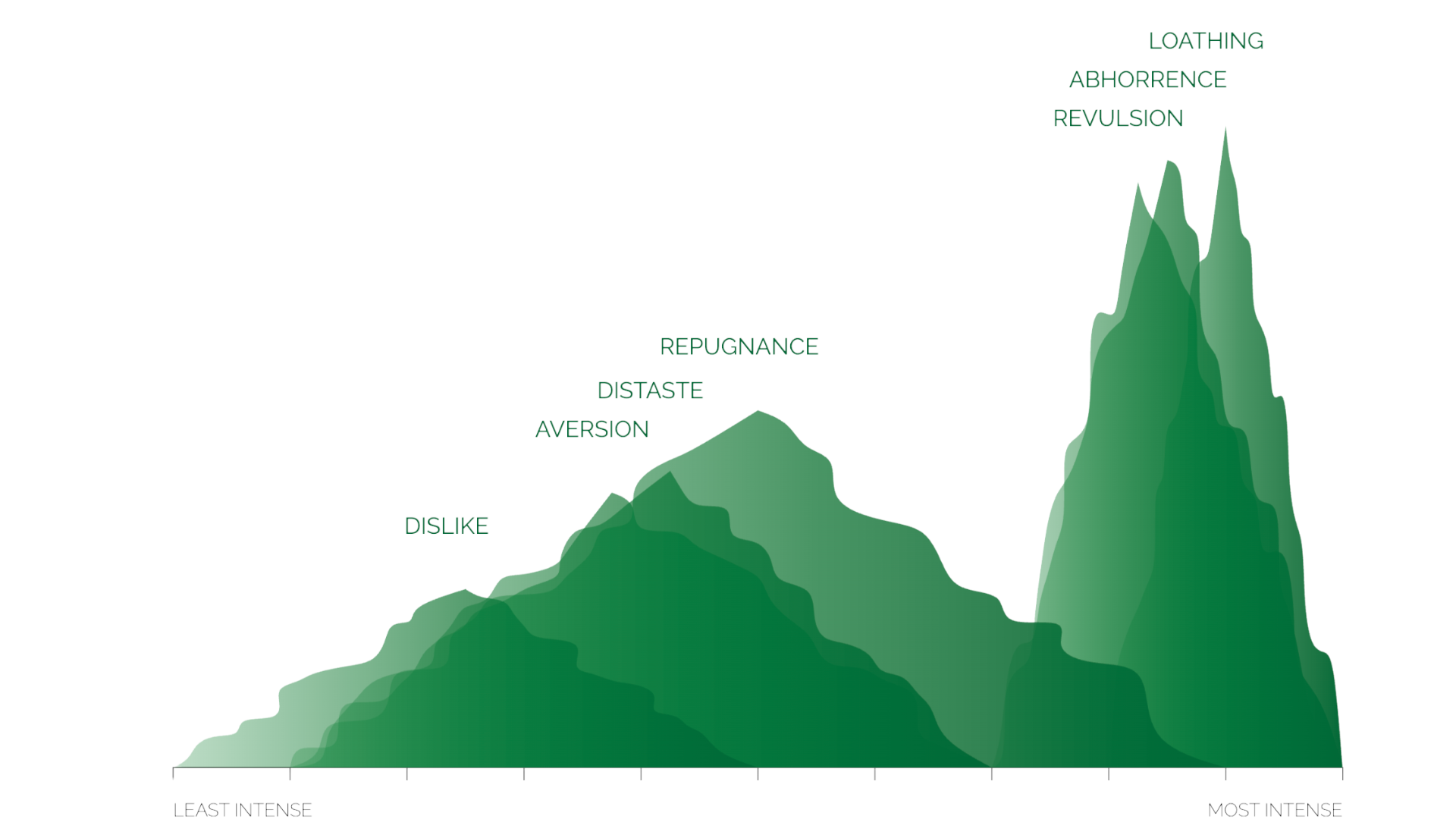
LOATHING (Disgust)
Intense disgust focused on a person. Intense disgust focused on oneself is called self-loathing.
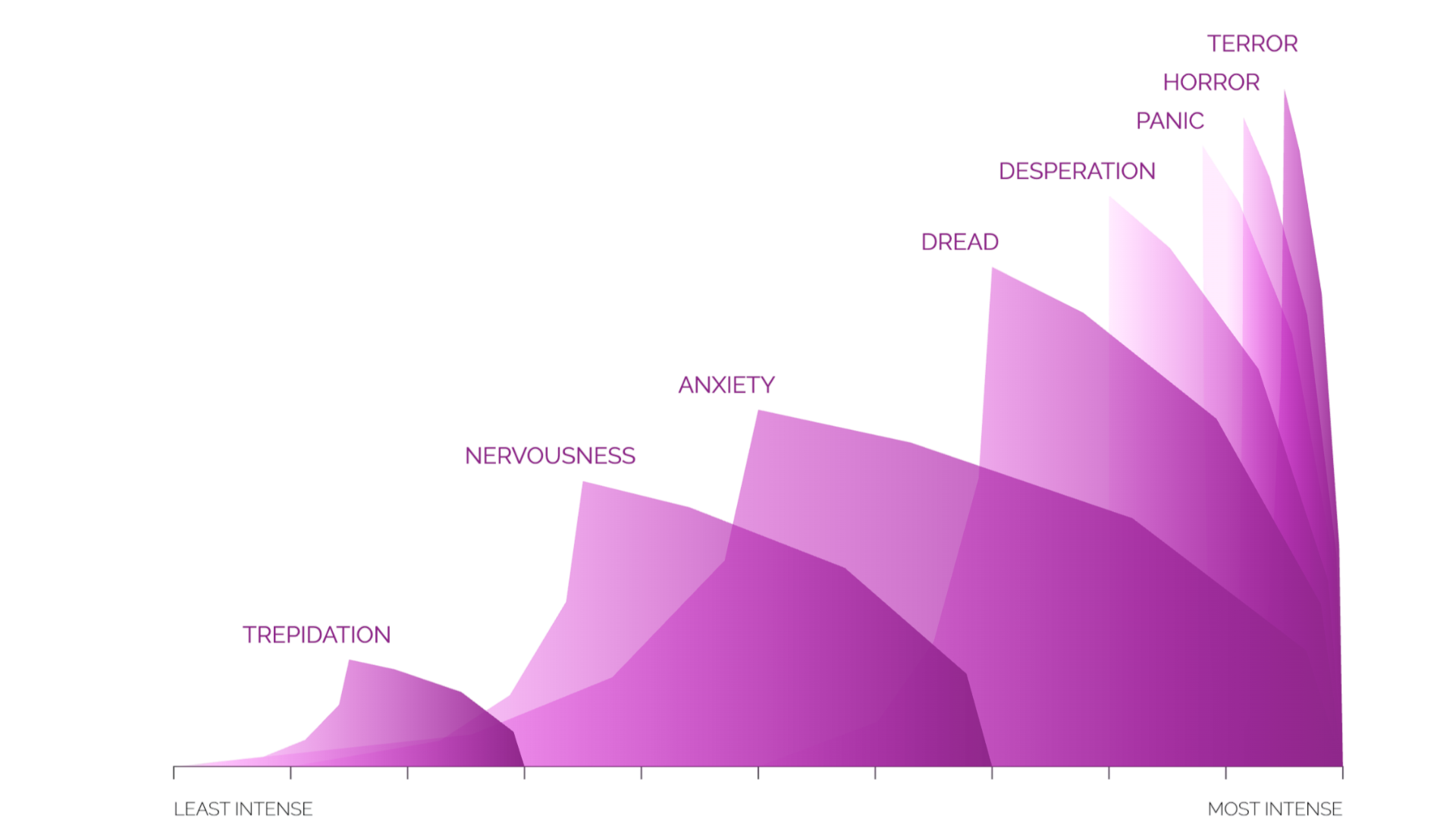
TREPIDATION (Fear)
Anticipation of the possibility of danger.
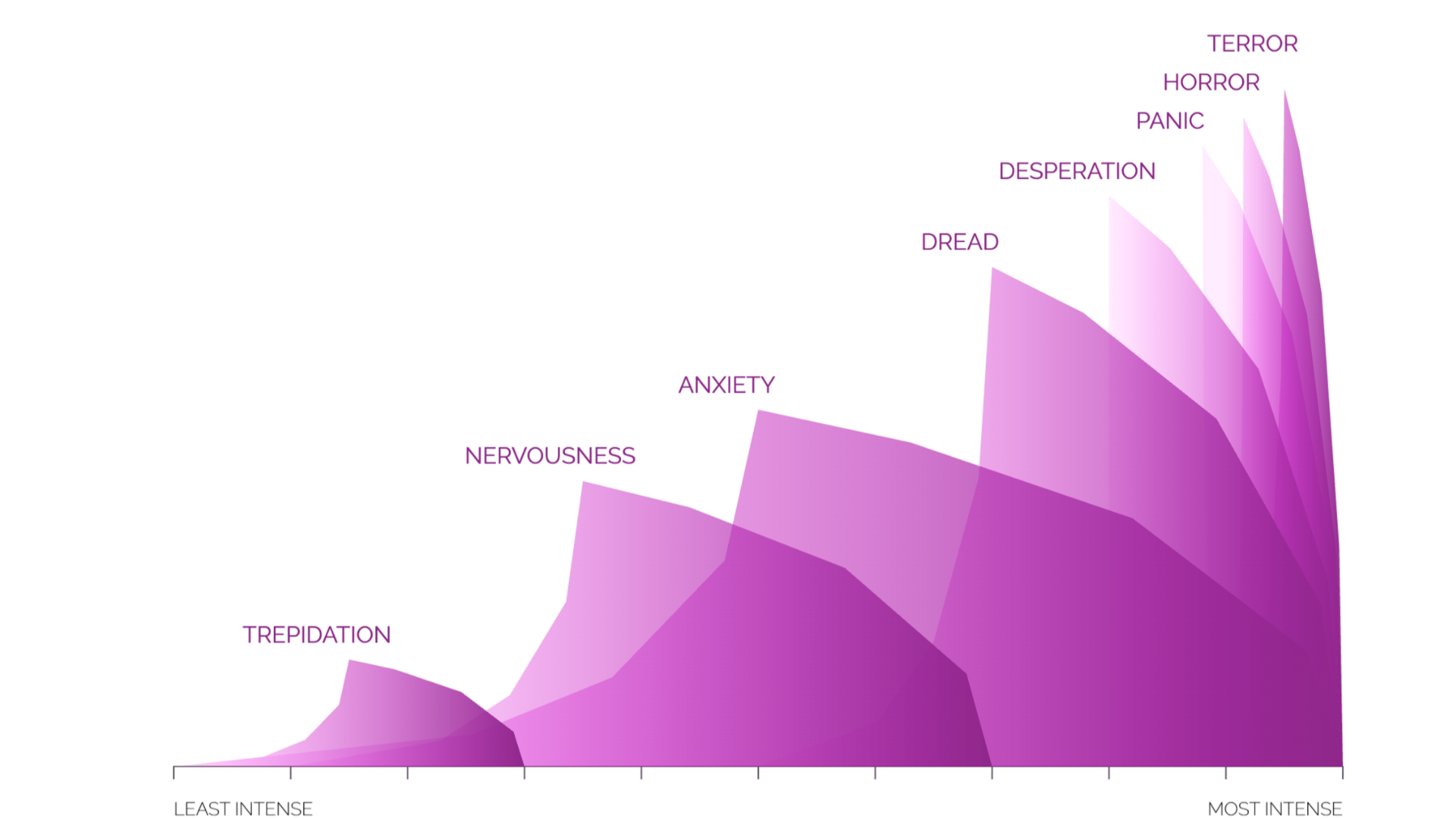
NERVOUSNESS (Fear)
Uncertainty as to whether there is a danger.
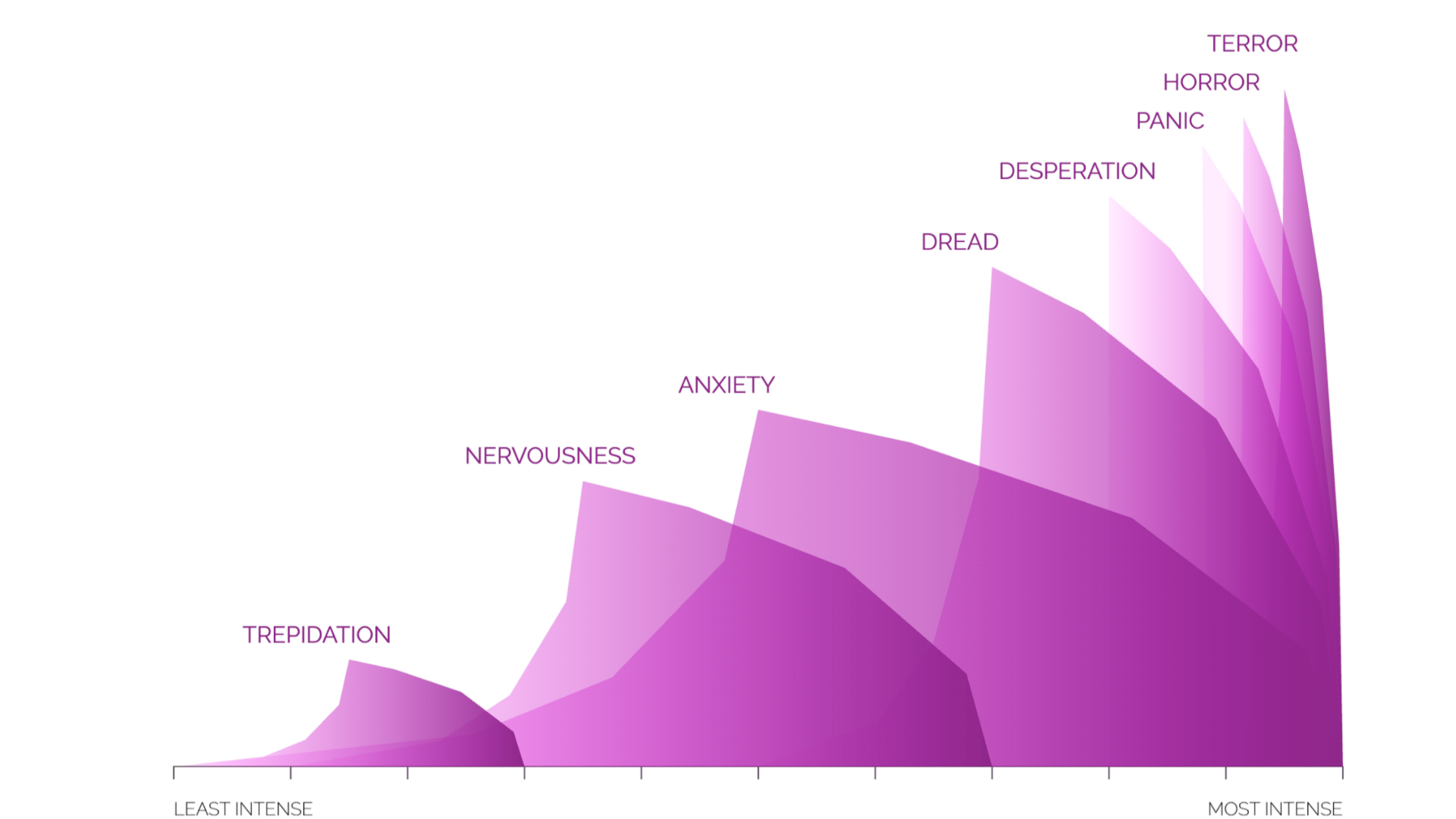
ANXIETY (Fear)
Fear of an anticipated or actual threat and uncertainty about one's ability to cope with it.
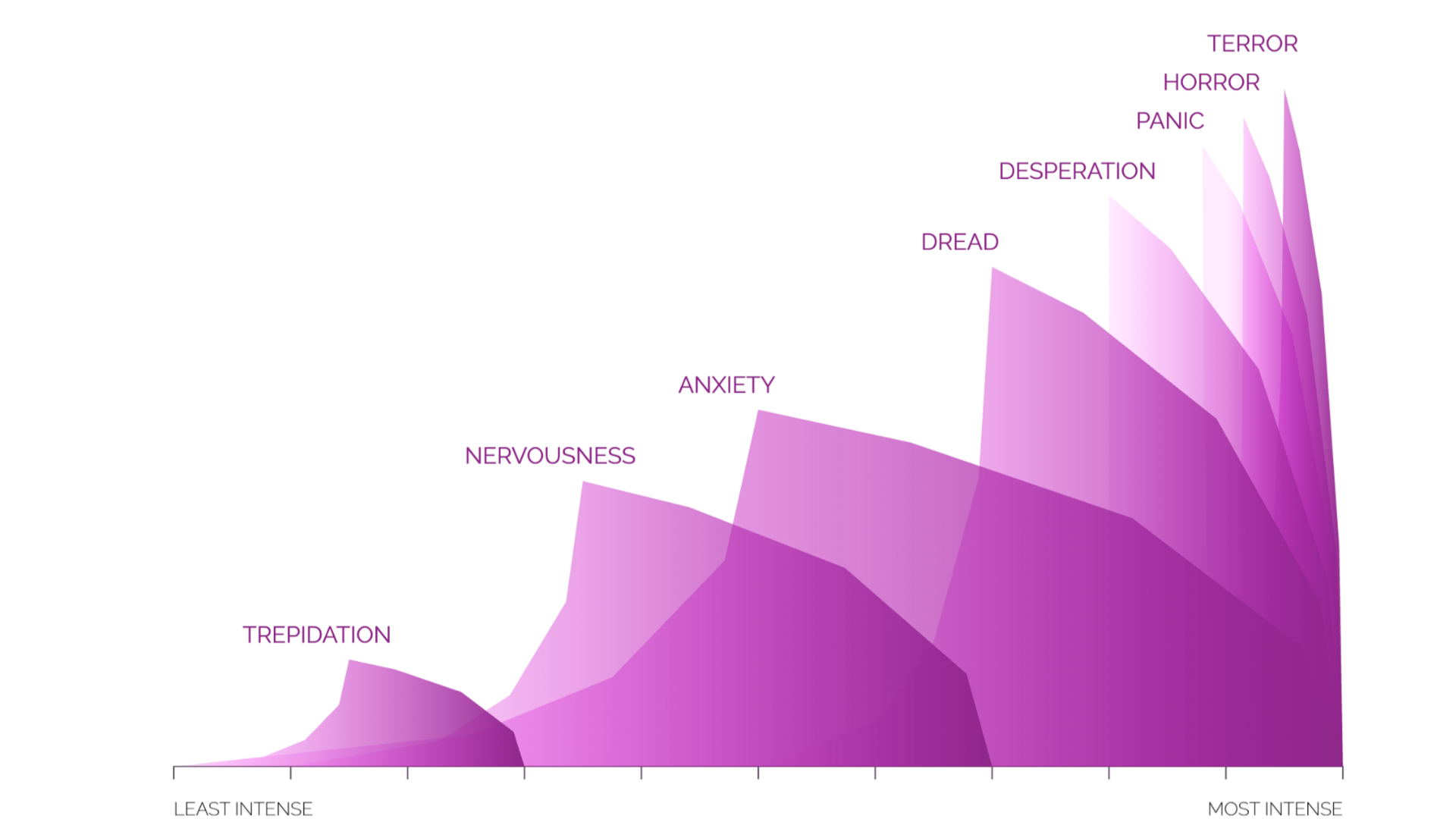
DREAD (Fear)
Anticipation of severe danger.
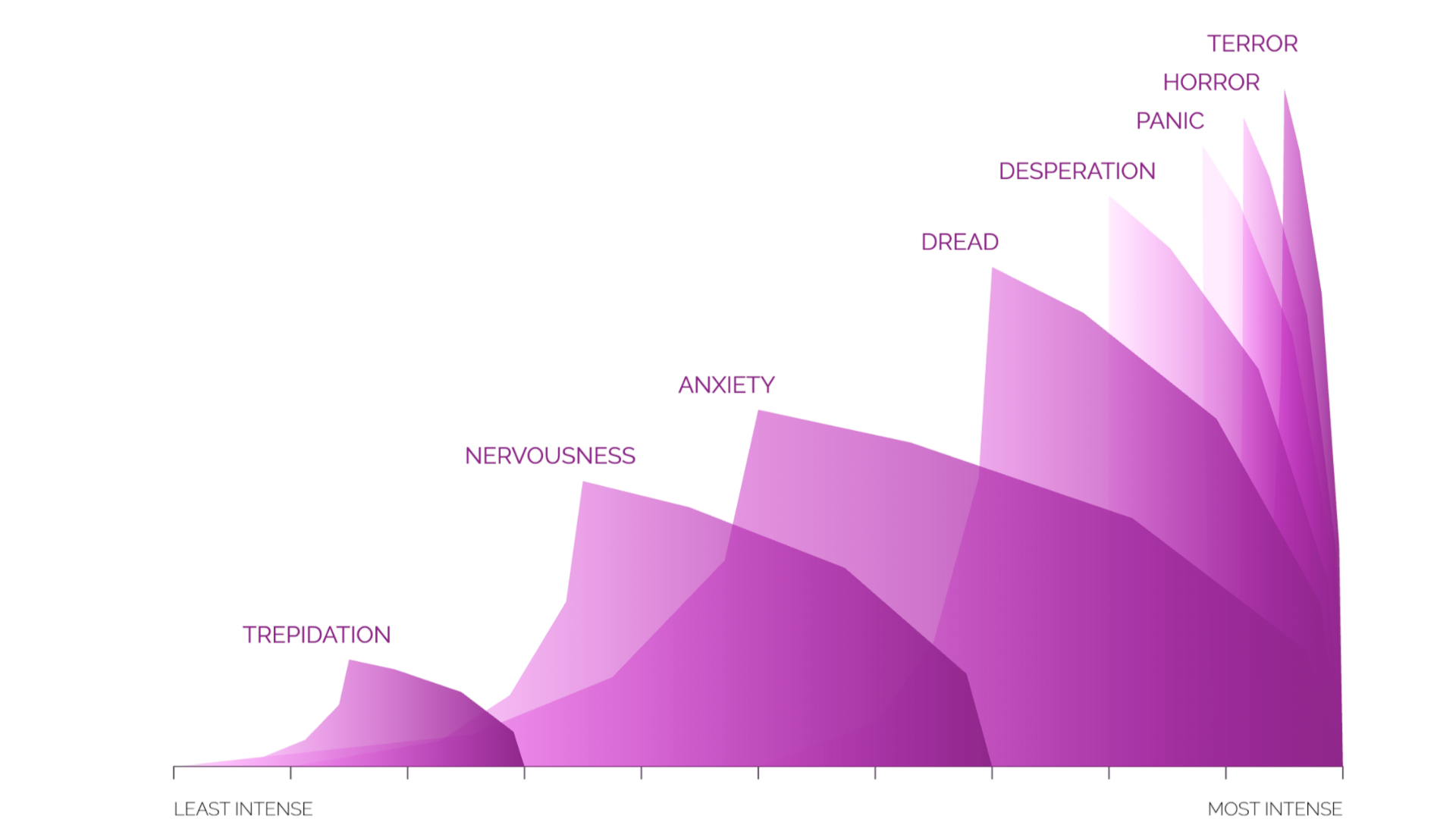
DESPERATION (Fear)
A response to the inability to reduce danger.
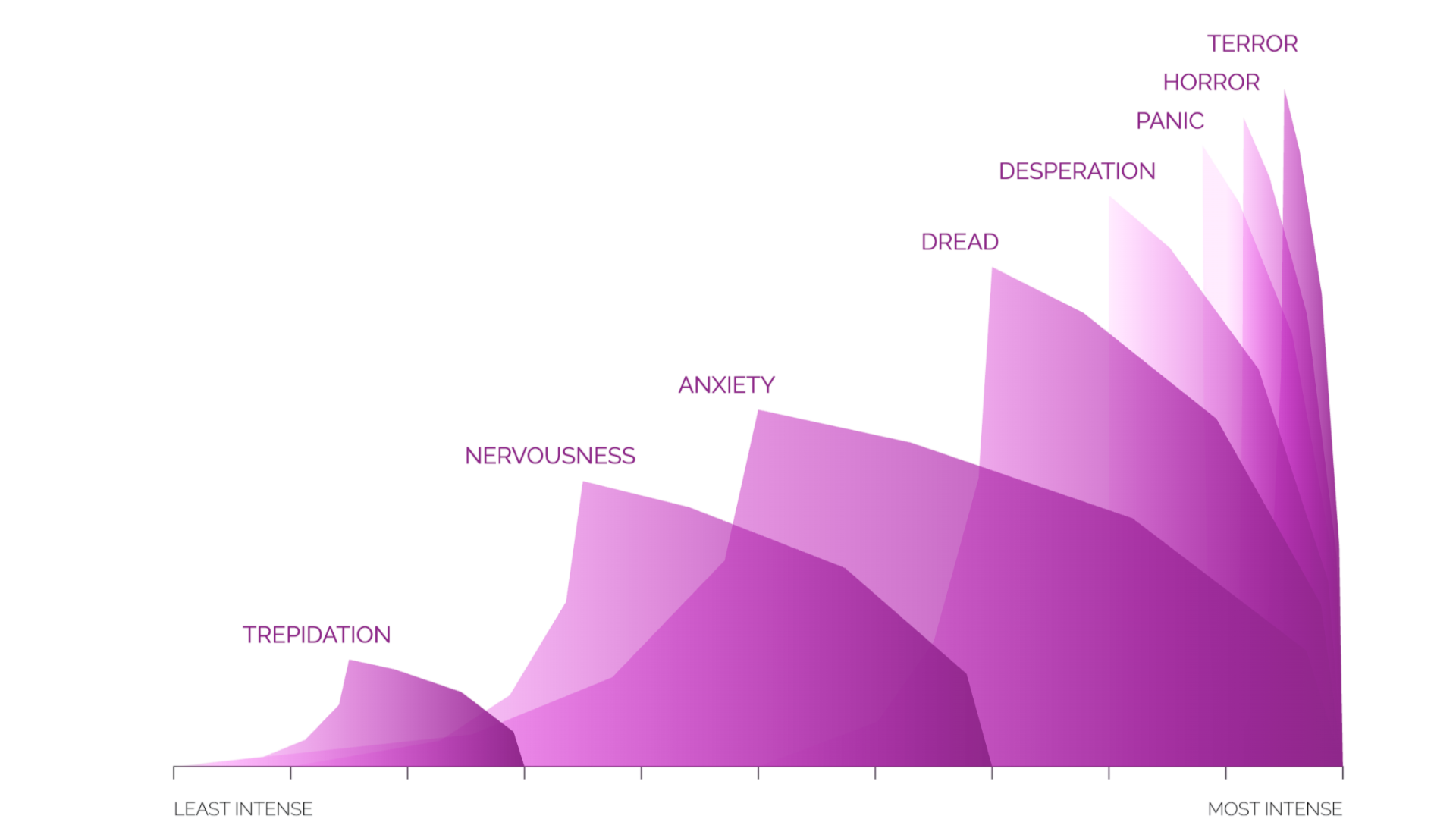
PANIC (Fear)
Sudden uncontrollable fear.
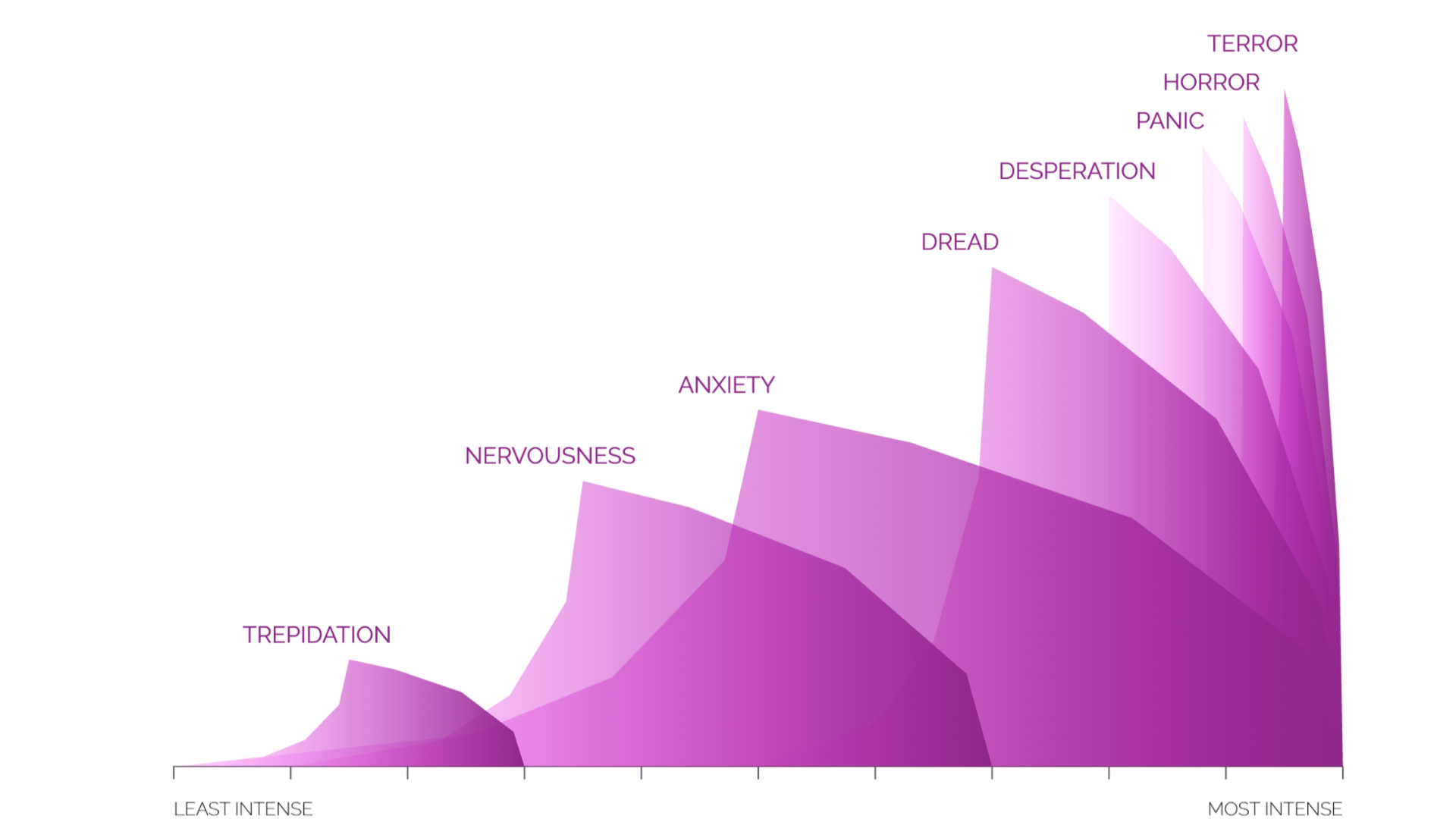
HORROR (Fear)
A mixture of fear, disgust, and shock.
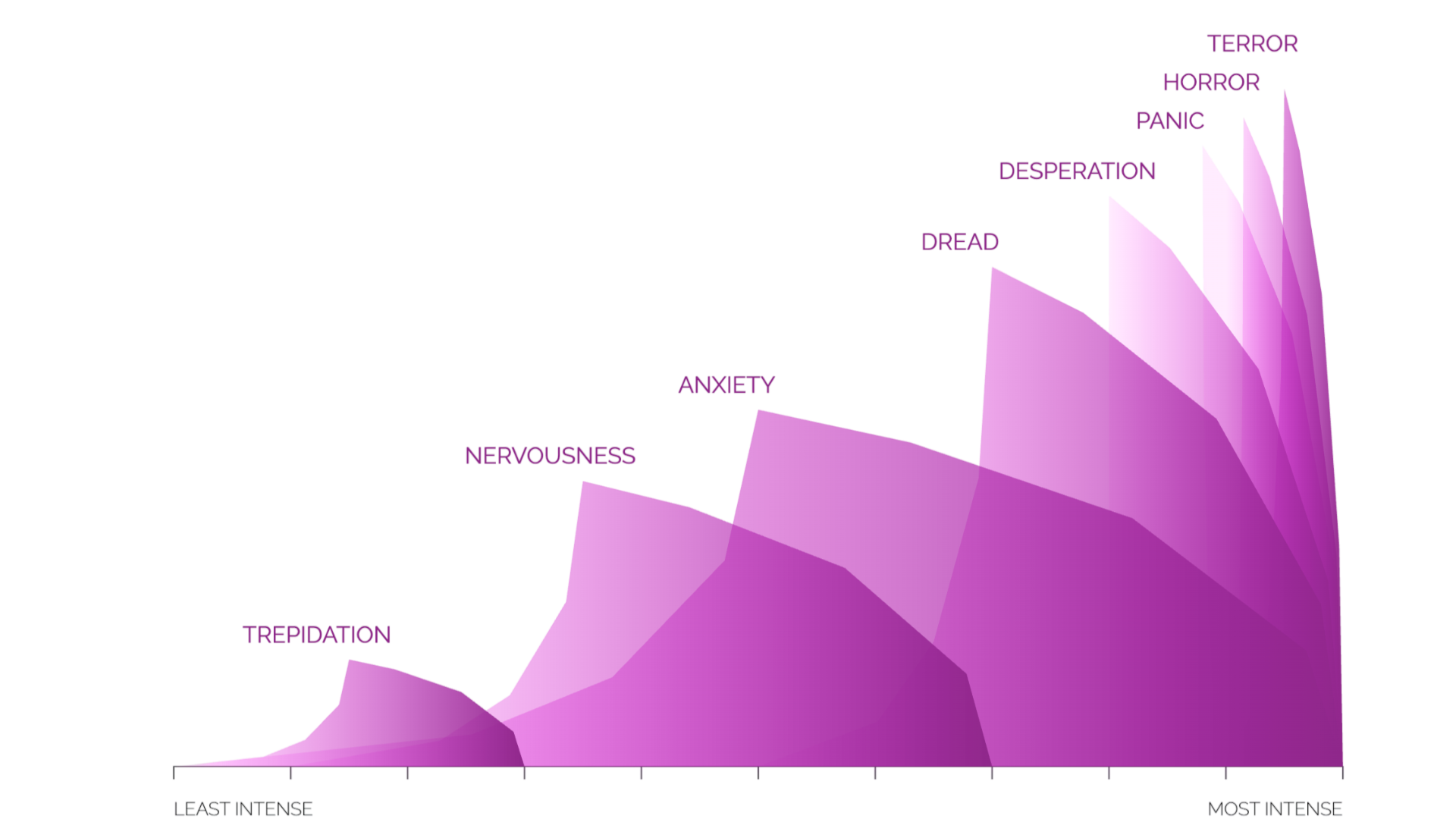
TERROR (Fear)
Intense, overpowering fear.
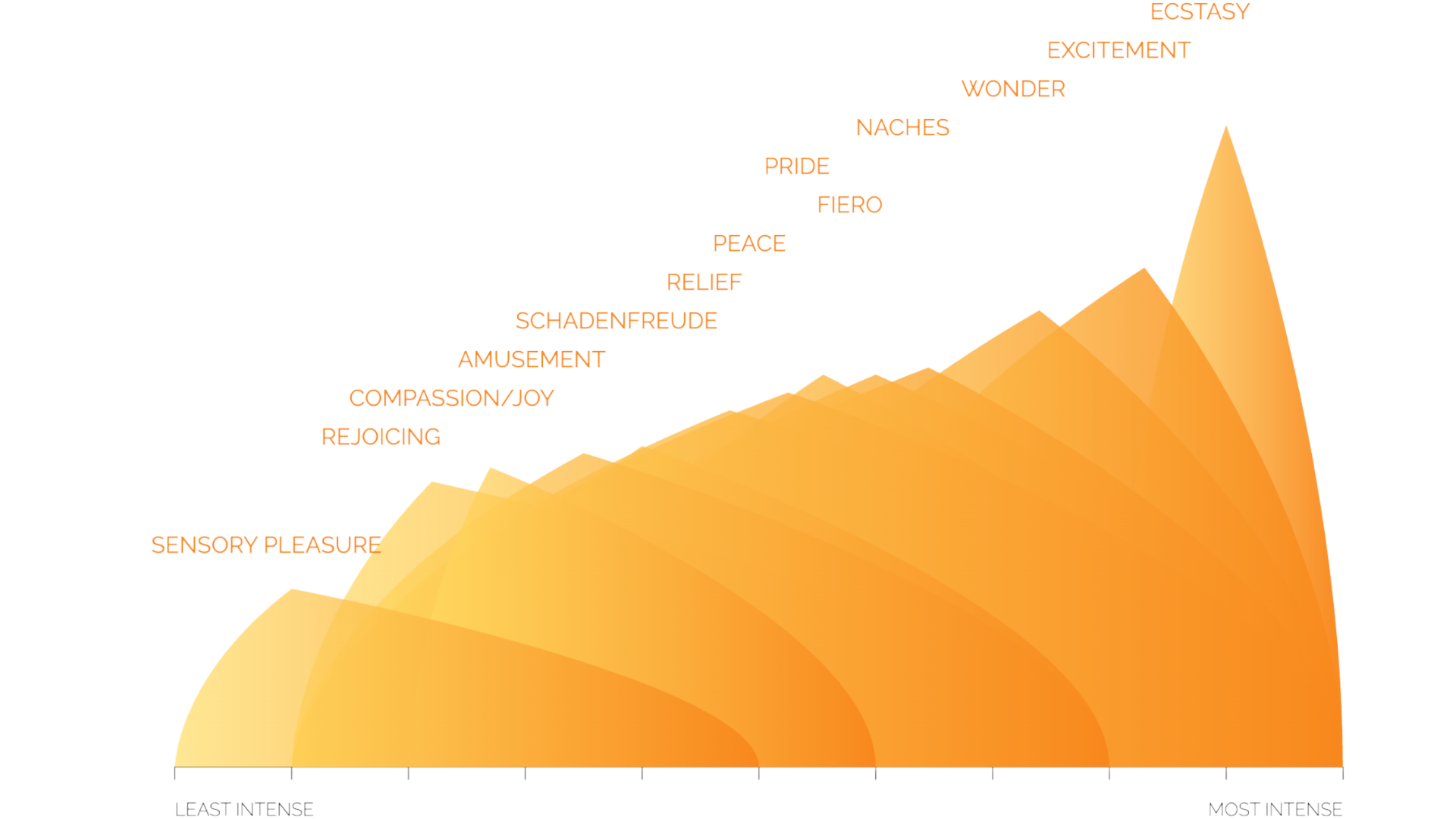
SENSORY PLEASURE (Enjoyment)
Enjoyment derived through one of the five physical senses: sight, sound, touch, taste and smell.
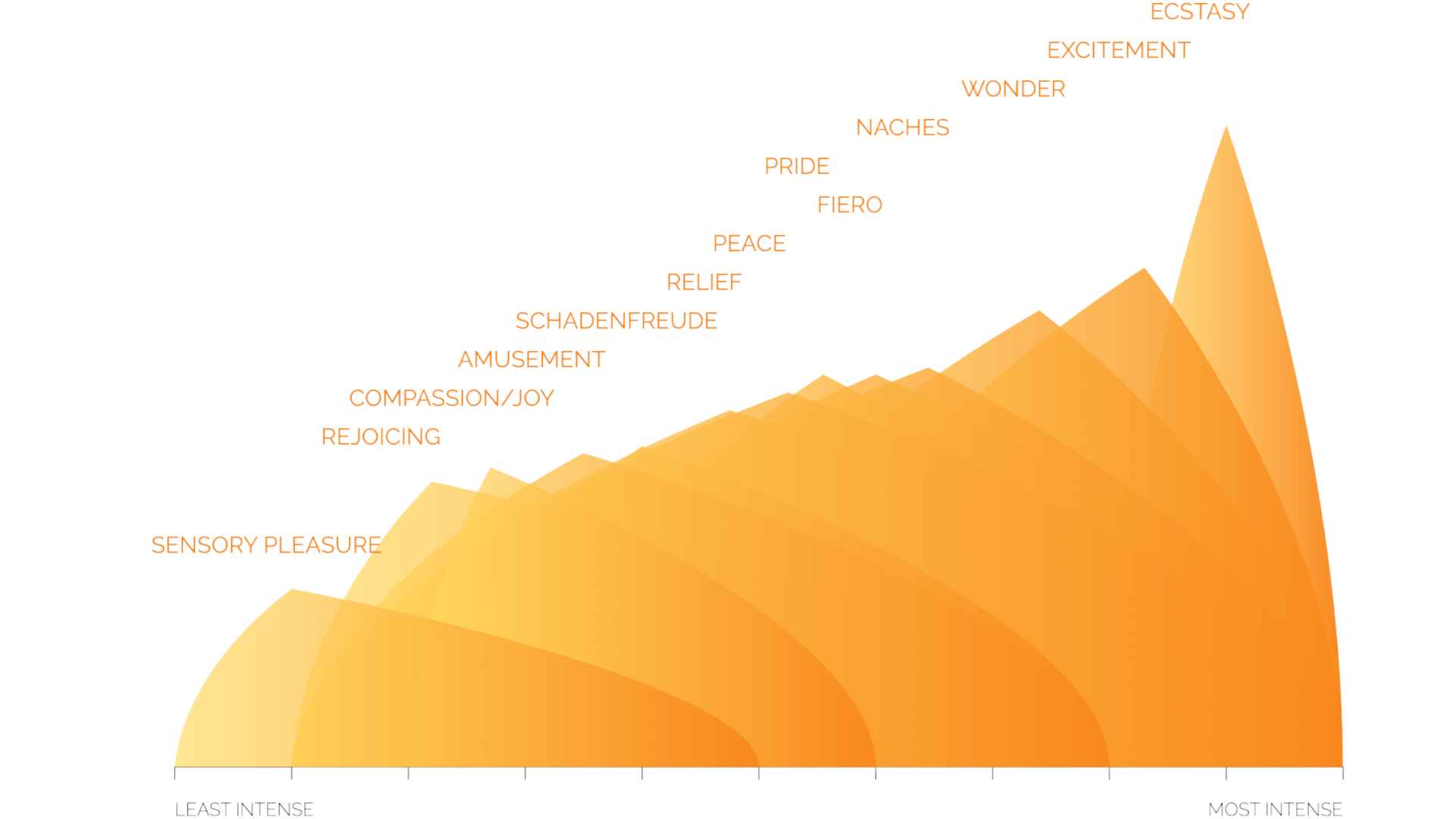
REJOICING (Enjoyment)
A warm, uplifting feeling that people experience when they see acts of human goodness, kindness and compassion. Also called elevation.
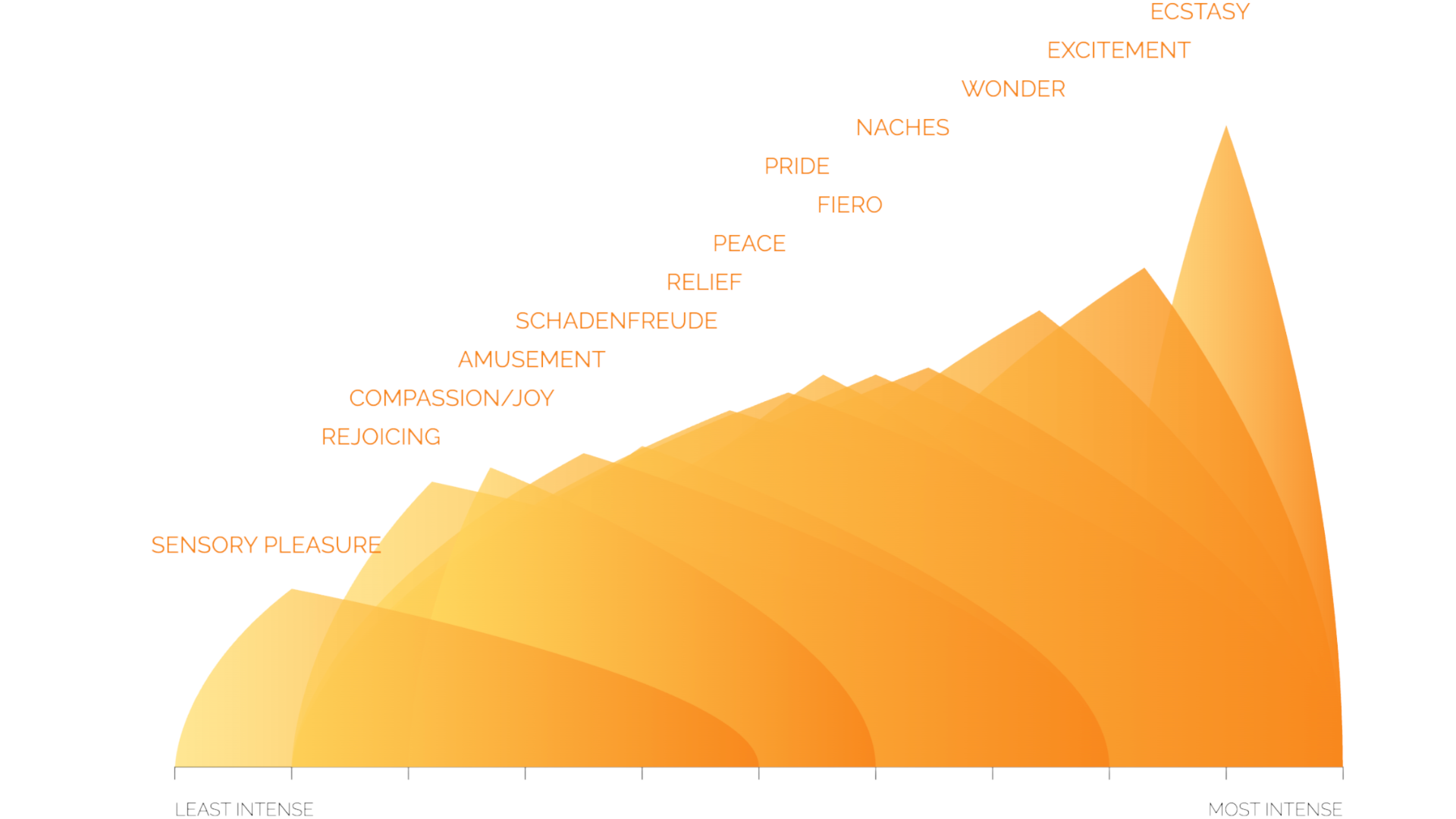
COMPASSION/JOY (Enjoyment)
Enjoyment of helping to relieve another person's suffering.
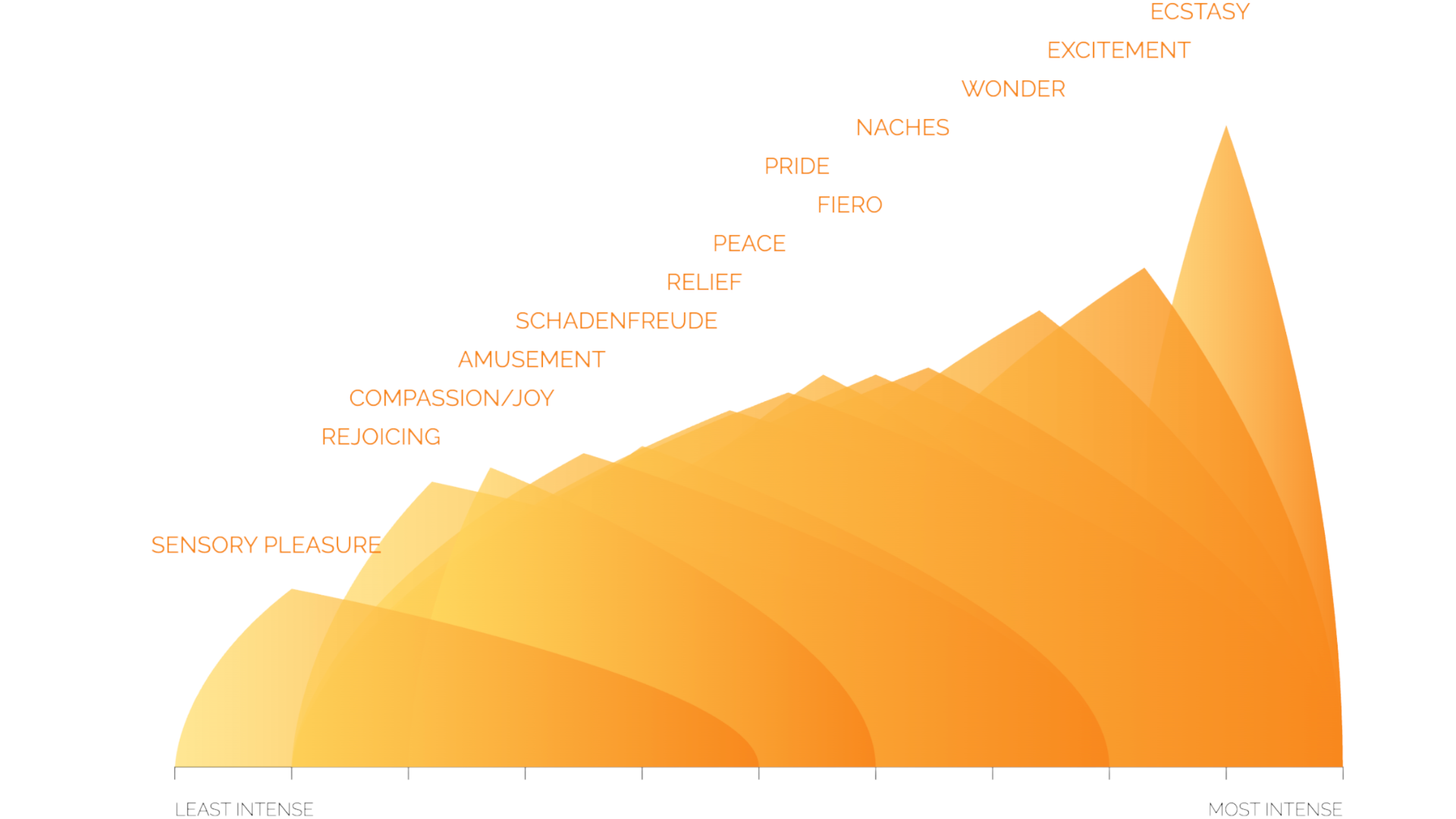
AMUSEMENT (Enjoyment)
Light, playful feelings of enjoyment and good humor.
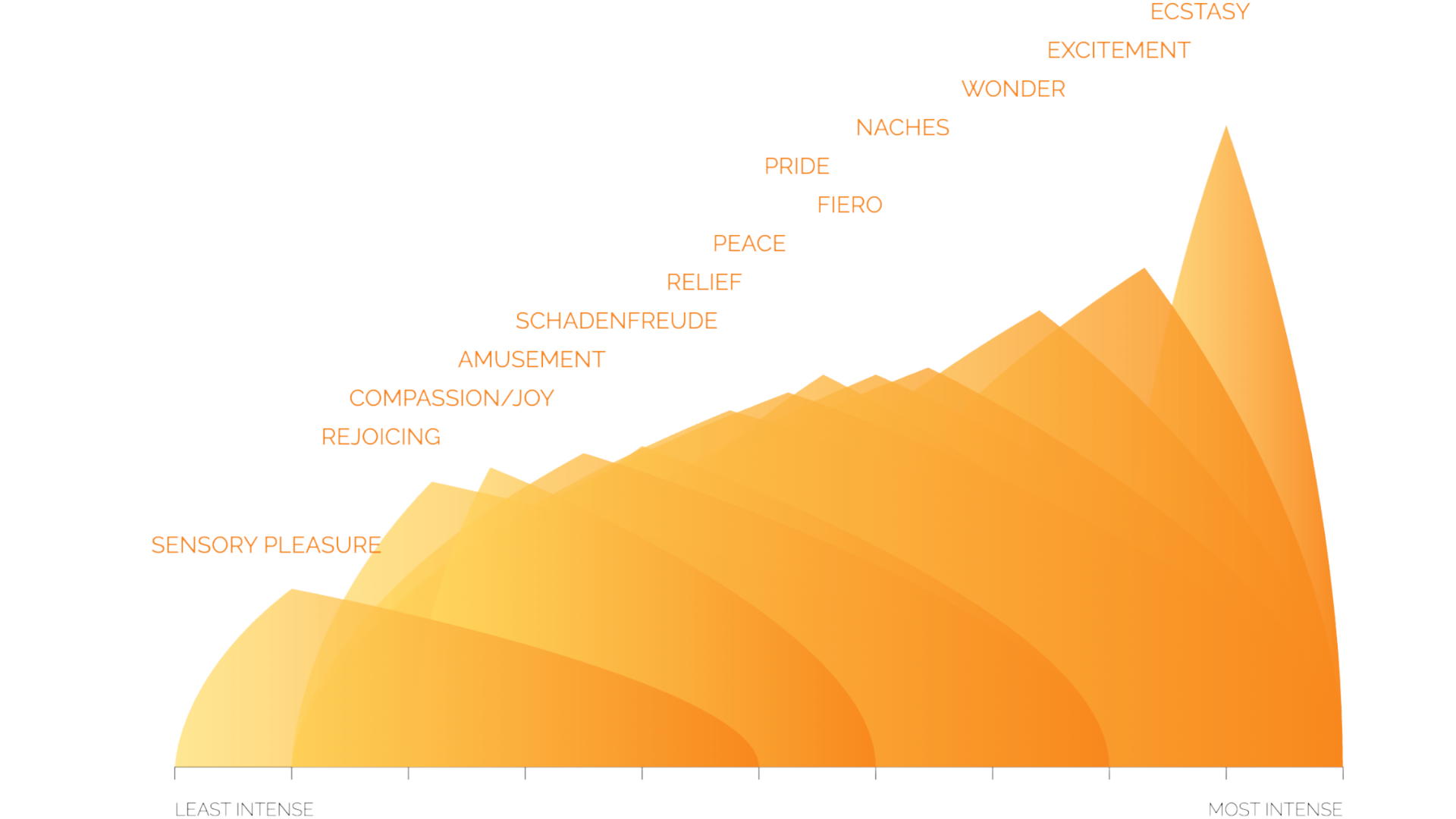
SCHADENFREUDE (Enjoyment)
Enjoyment of the misfortunes of another person, usually a rival.
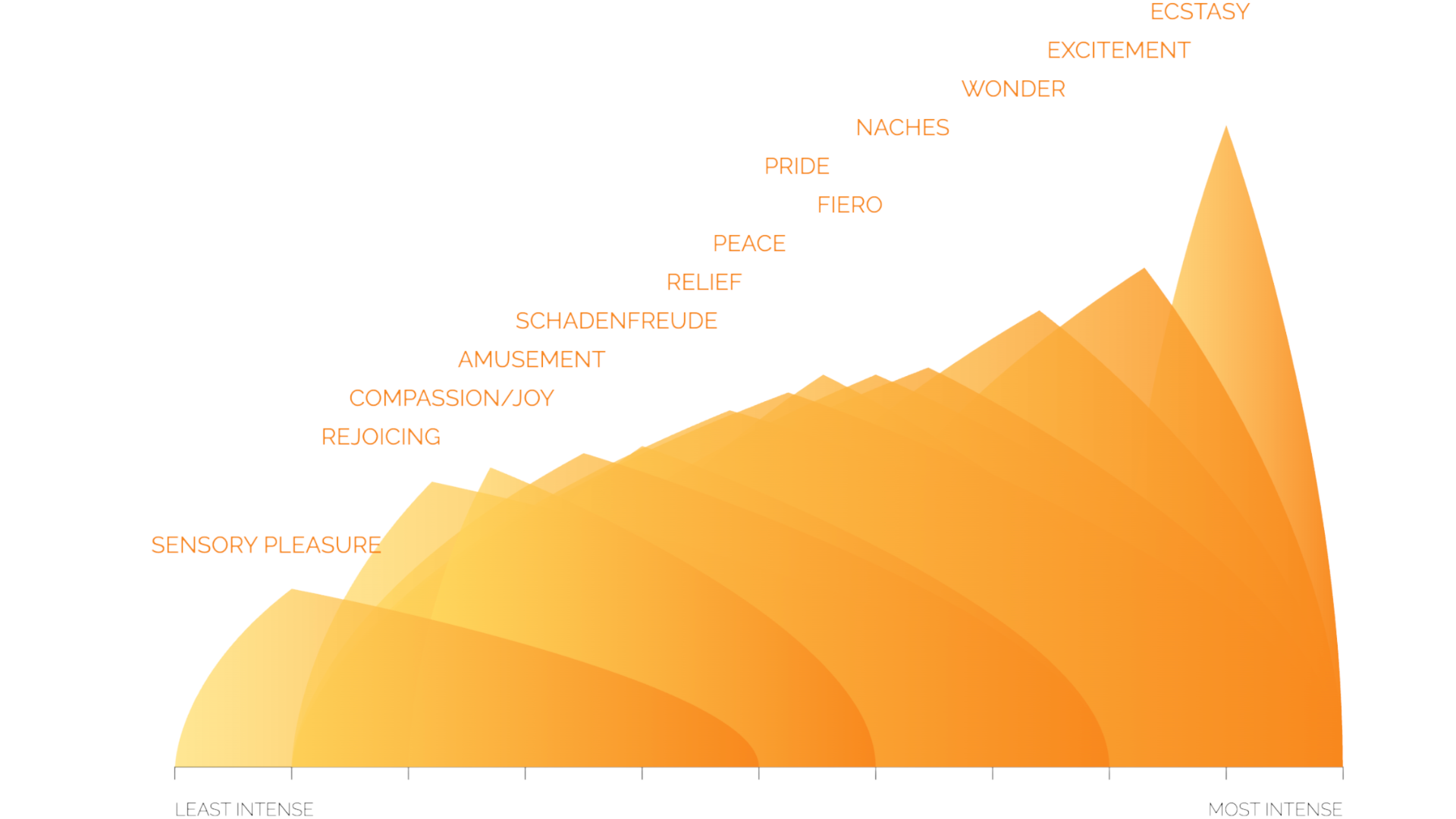
RELIEF (Enjoyment)
When something expected to be unpleasant, especially the threat of harm, is avoided or comes to an end.
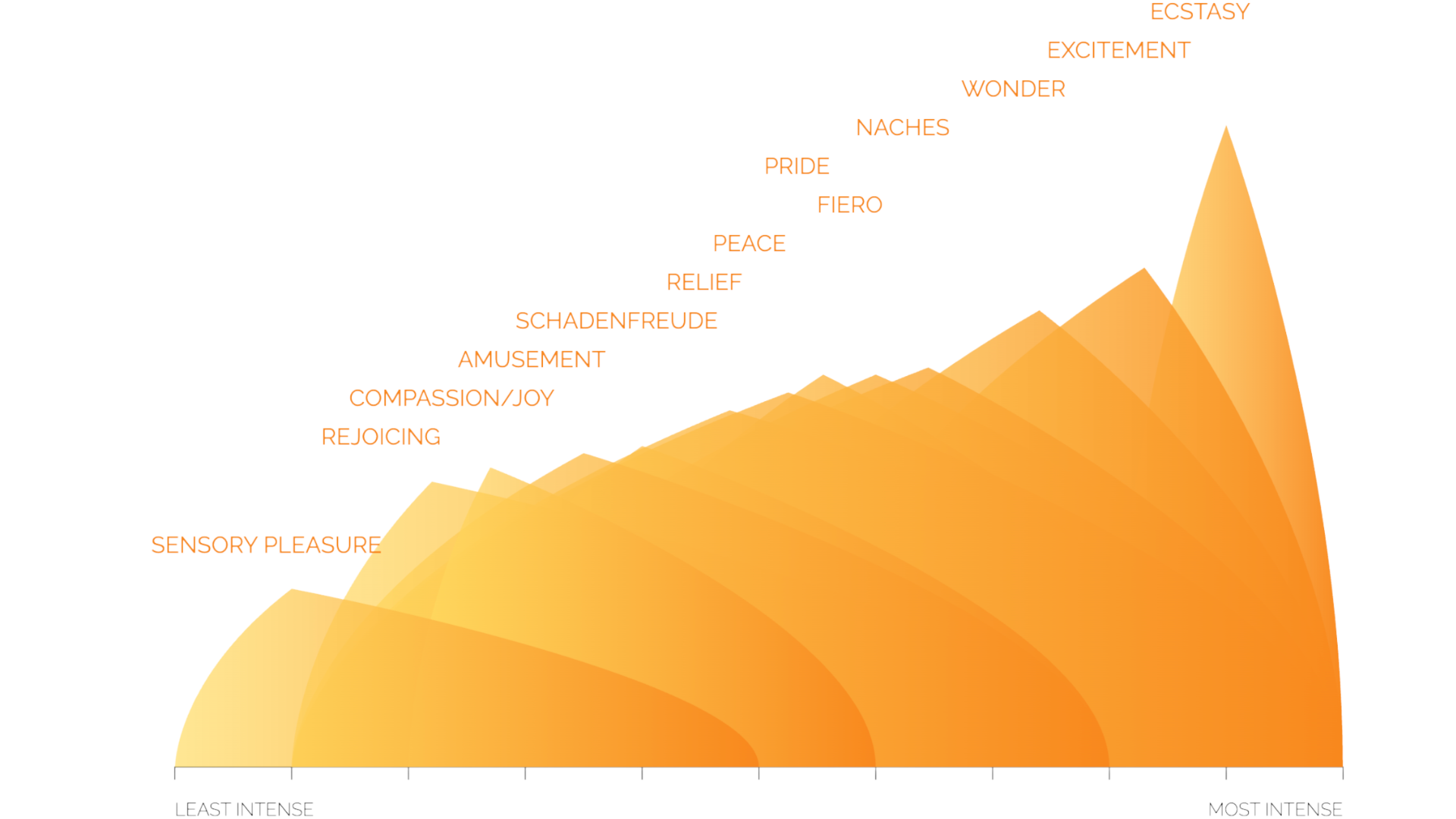
PEACE (Enjoyment)
An experience of ease and contentment.
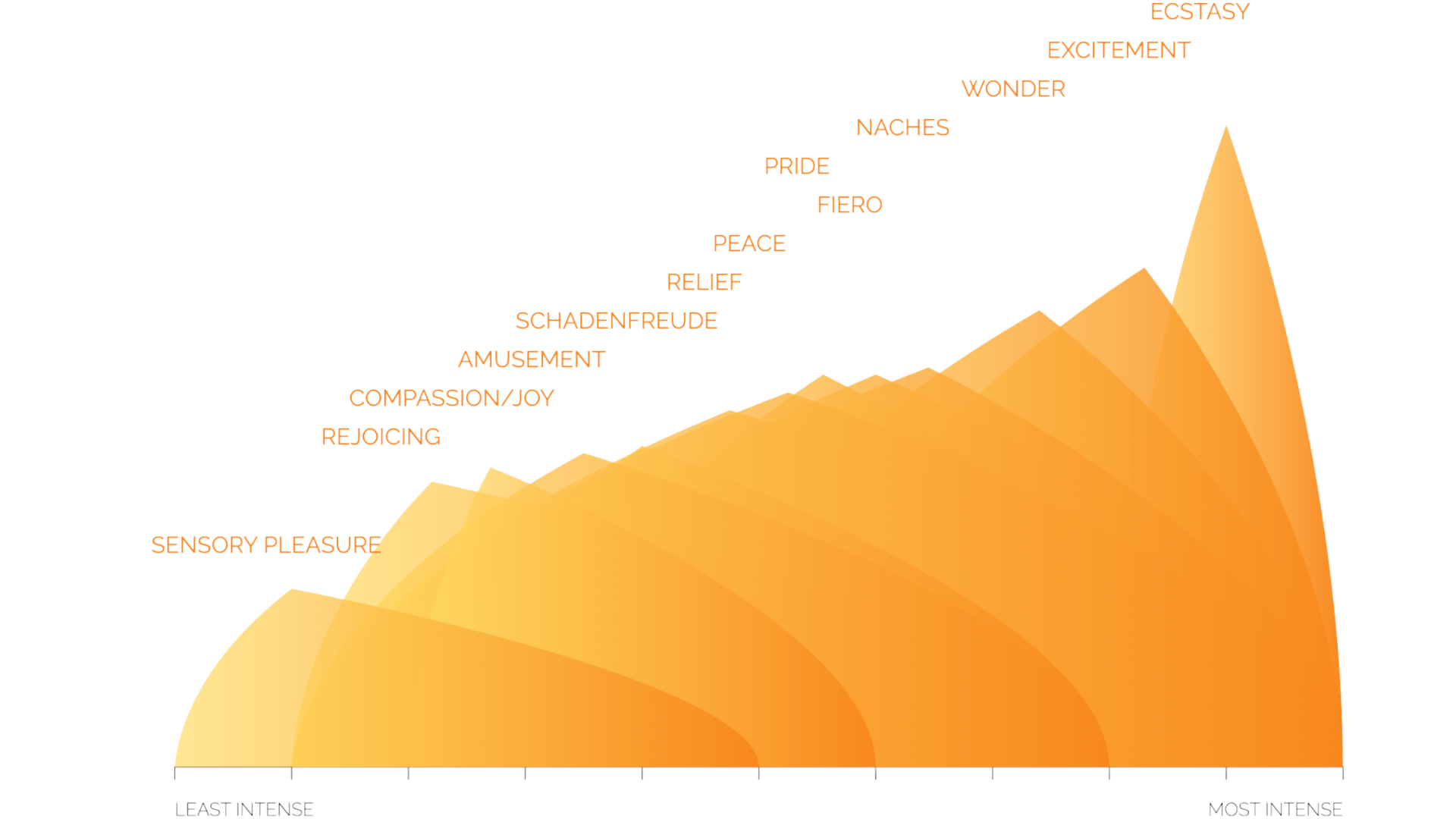
PRIDE (Enjoyment)
Deep pleasure and satisfaction derived from one's own achievements or the achievements of an associate.
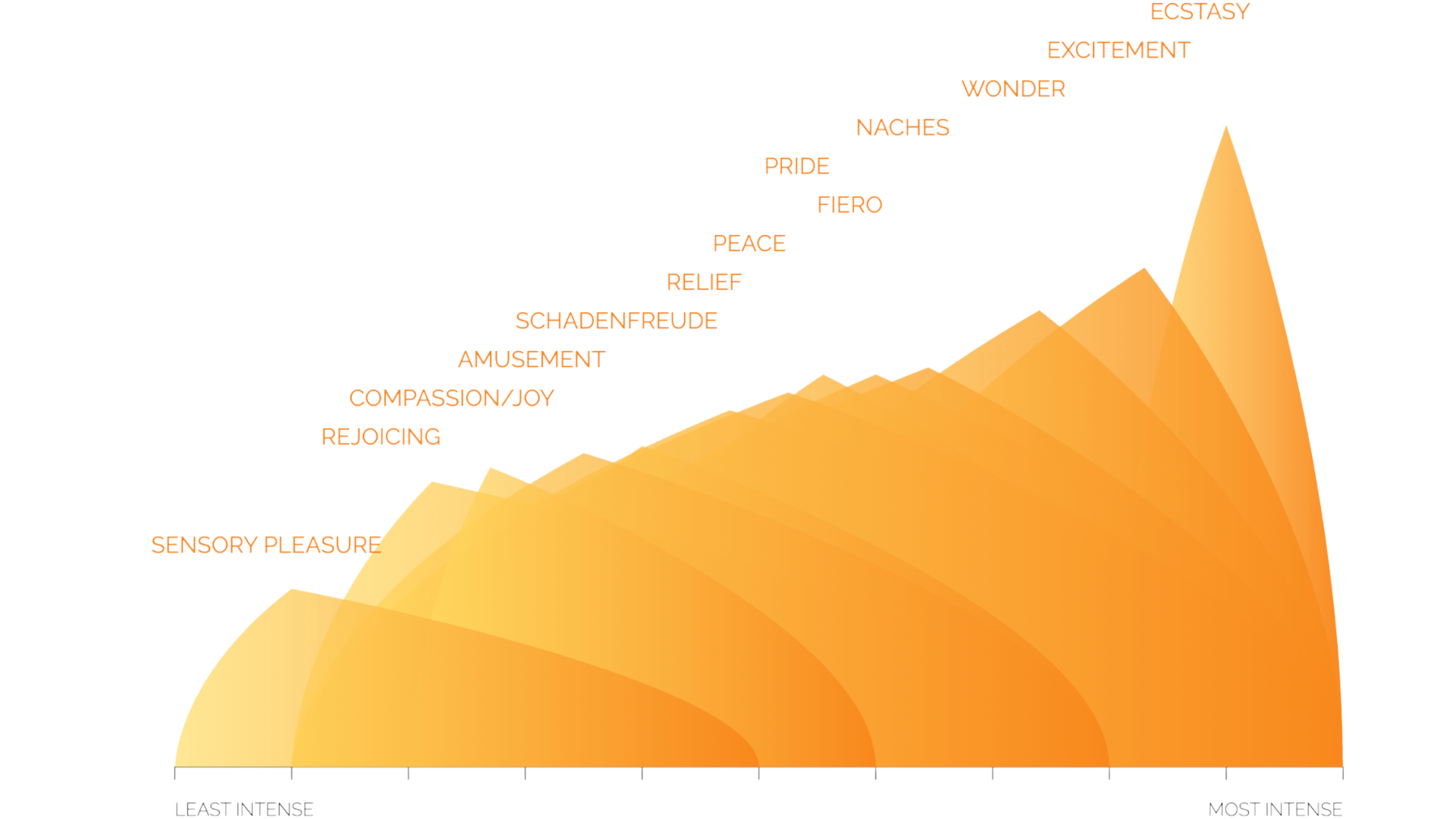
FIERO (Enjoyment)
Enjoyment of meeting a difficult challenge (an Italian word).
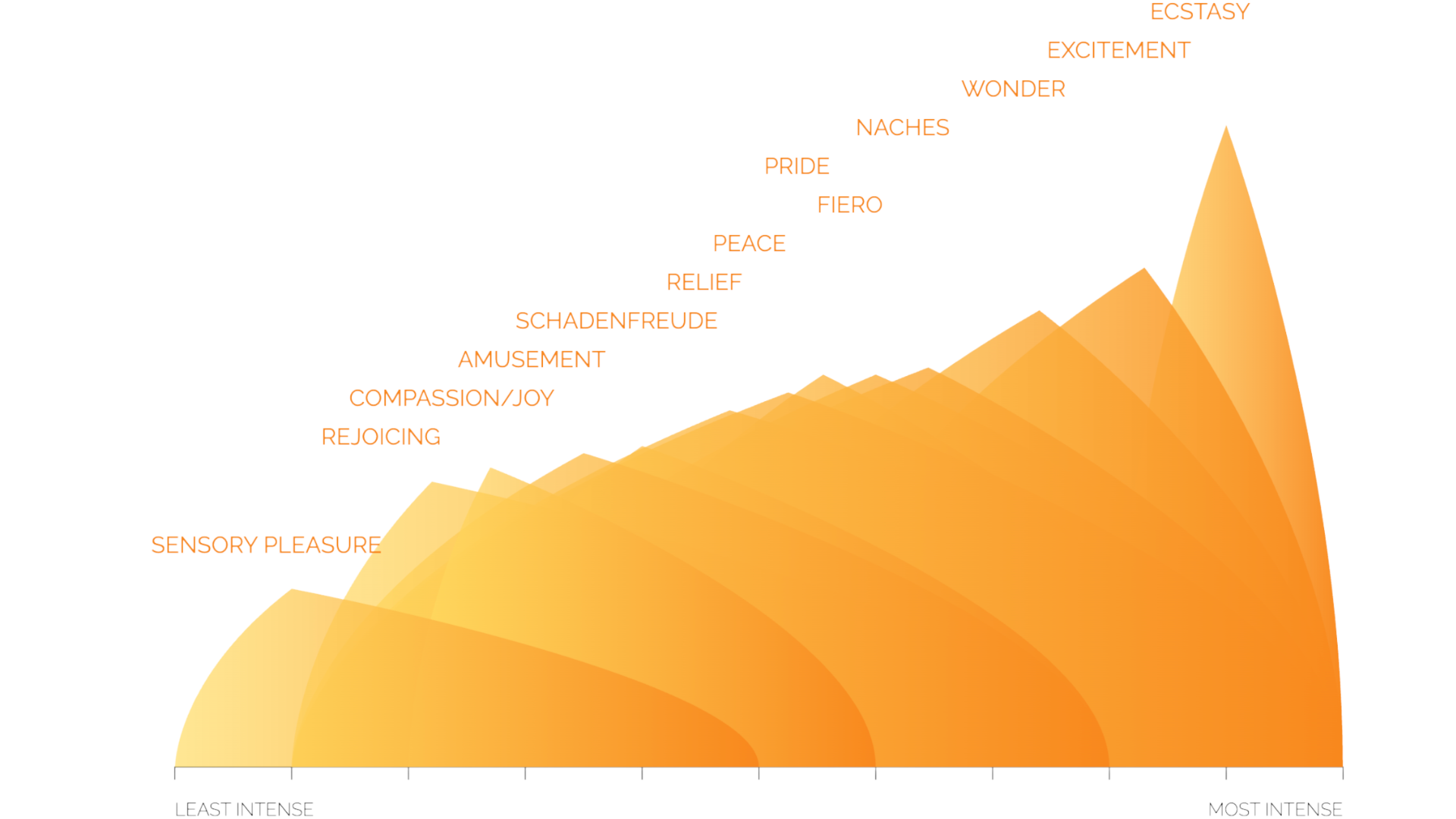
NACHES (Enjoyment)
Joyful pride in the accomplishments of one's children or mentees (a Yiddish word).
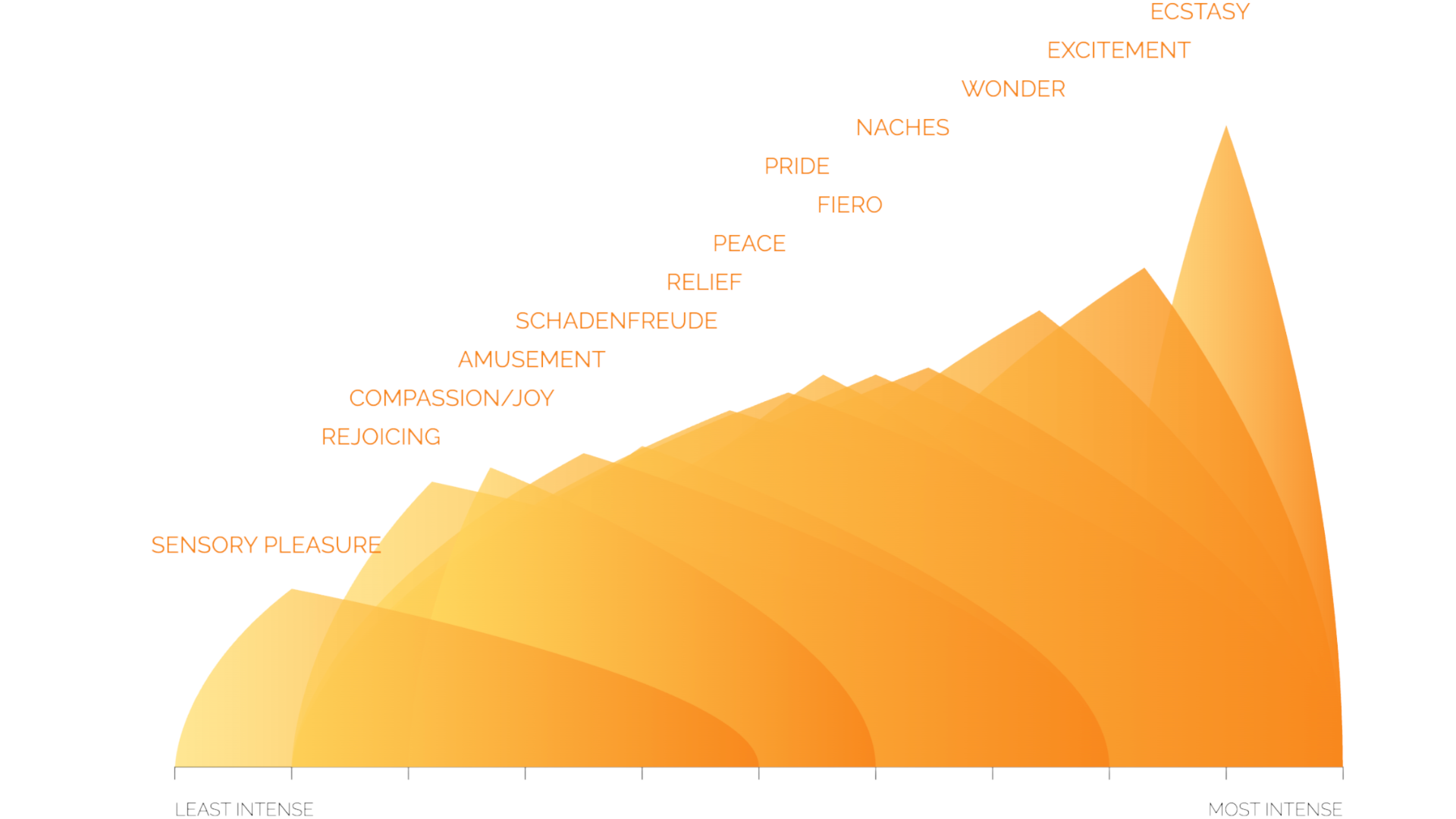
WONDER (Enjoyment)
An experience of something that is very surprising, beautiful, amazing or hard to believe.
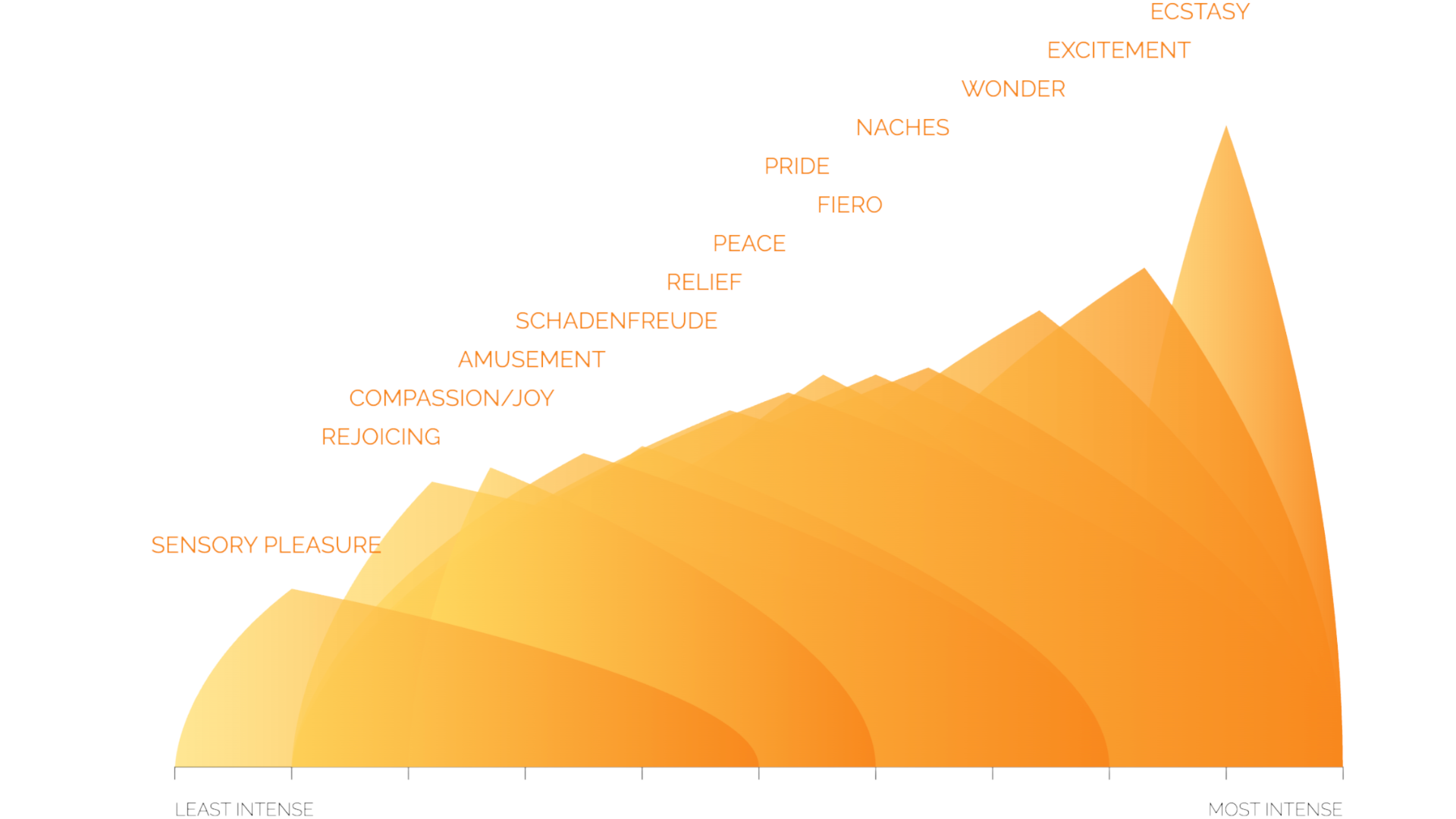
EXCITEMENT (Enjoyment)
A powerful enthusiasm.
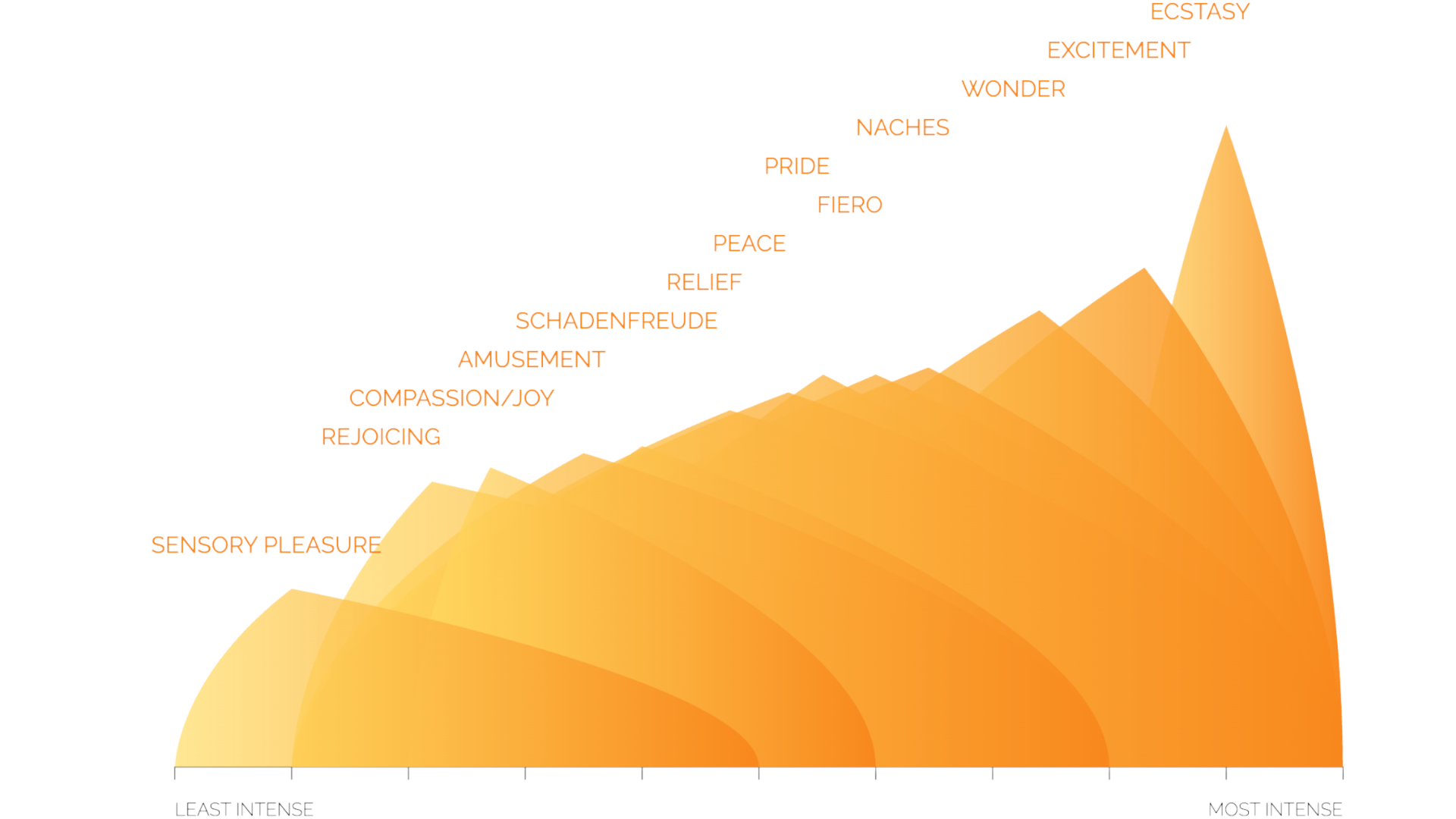
ECSTASY (Enjoyment)
Rapturous delight. A state of very great happiness, nearly overwhelming.